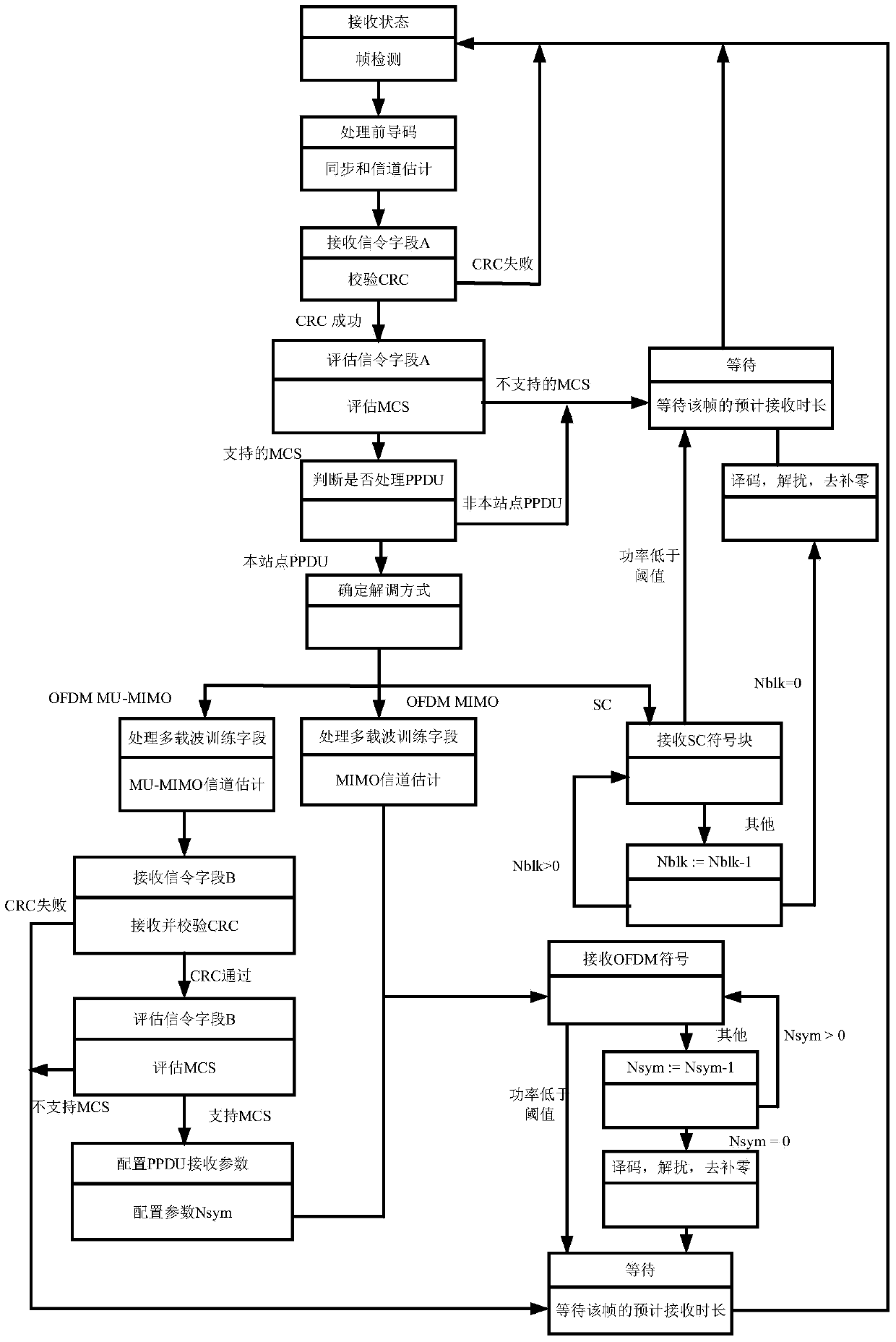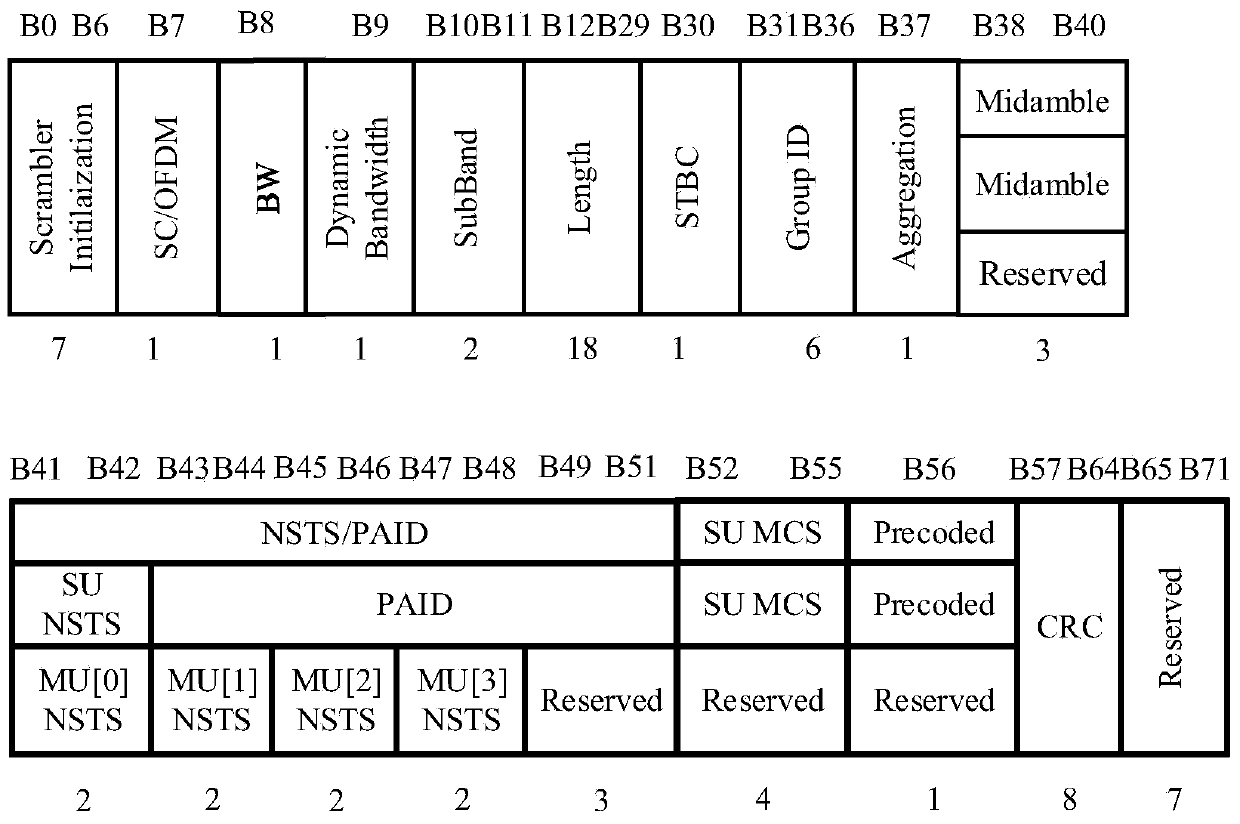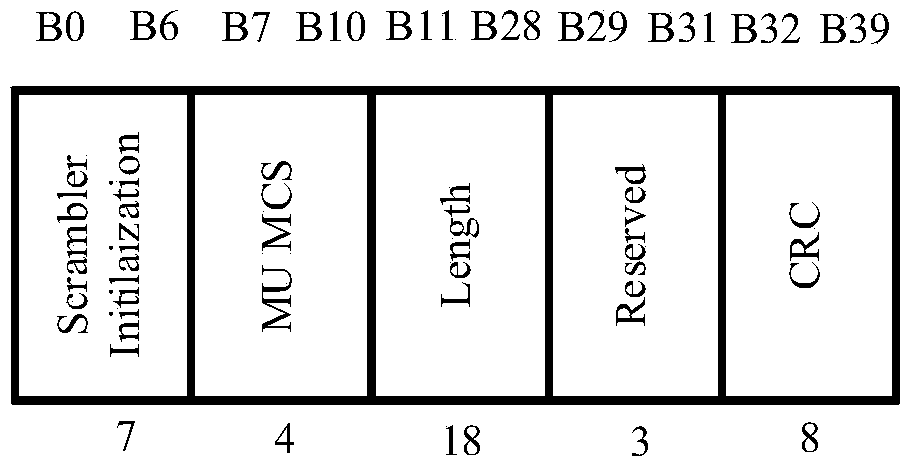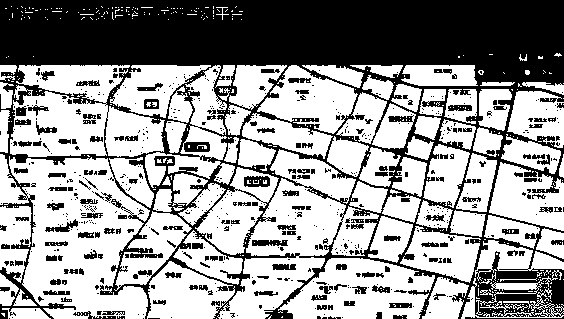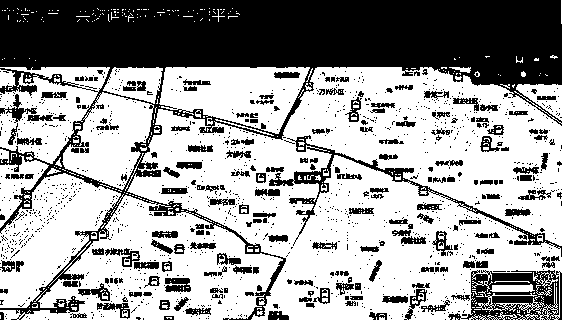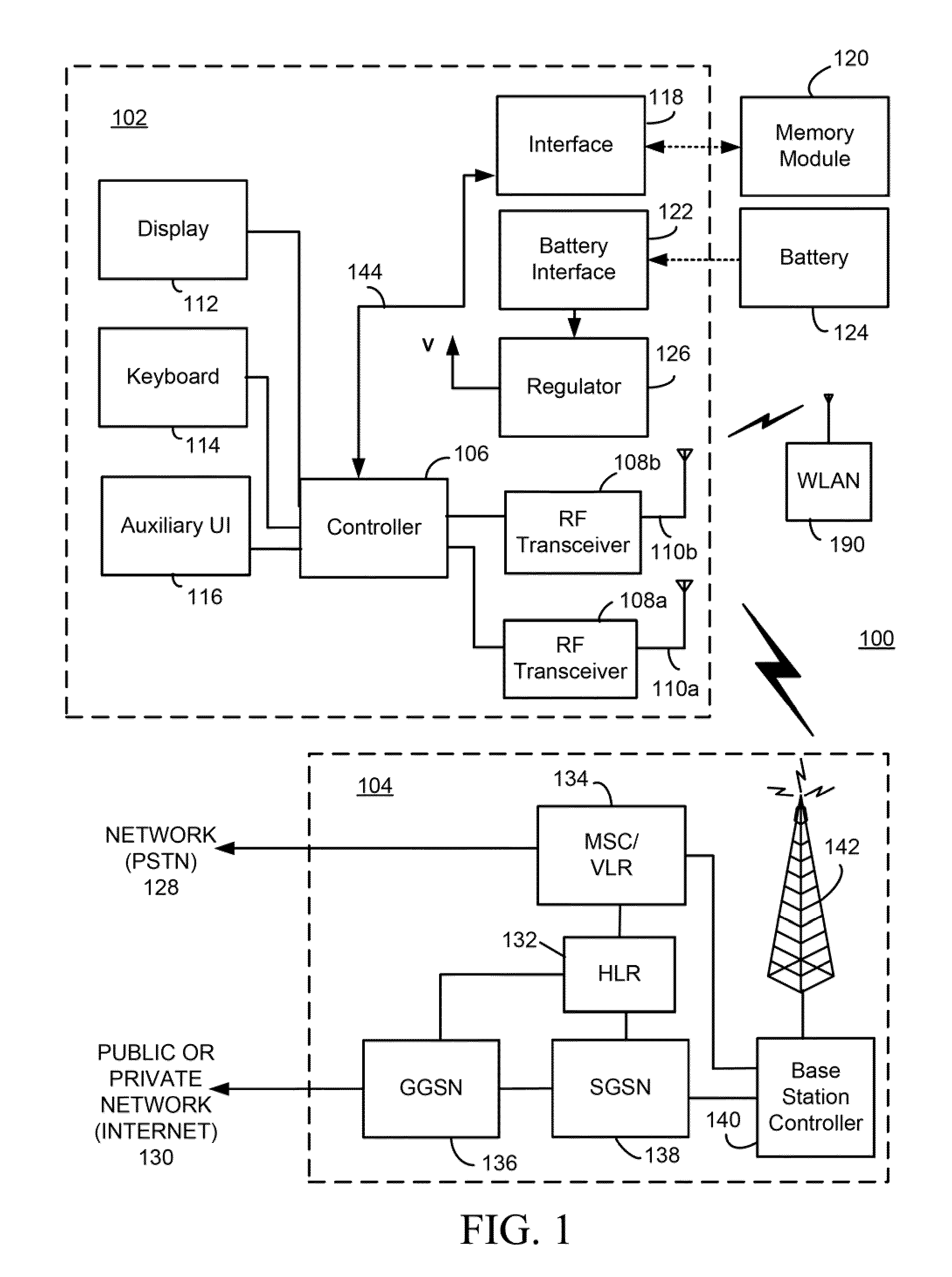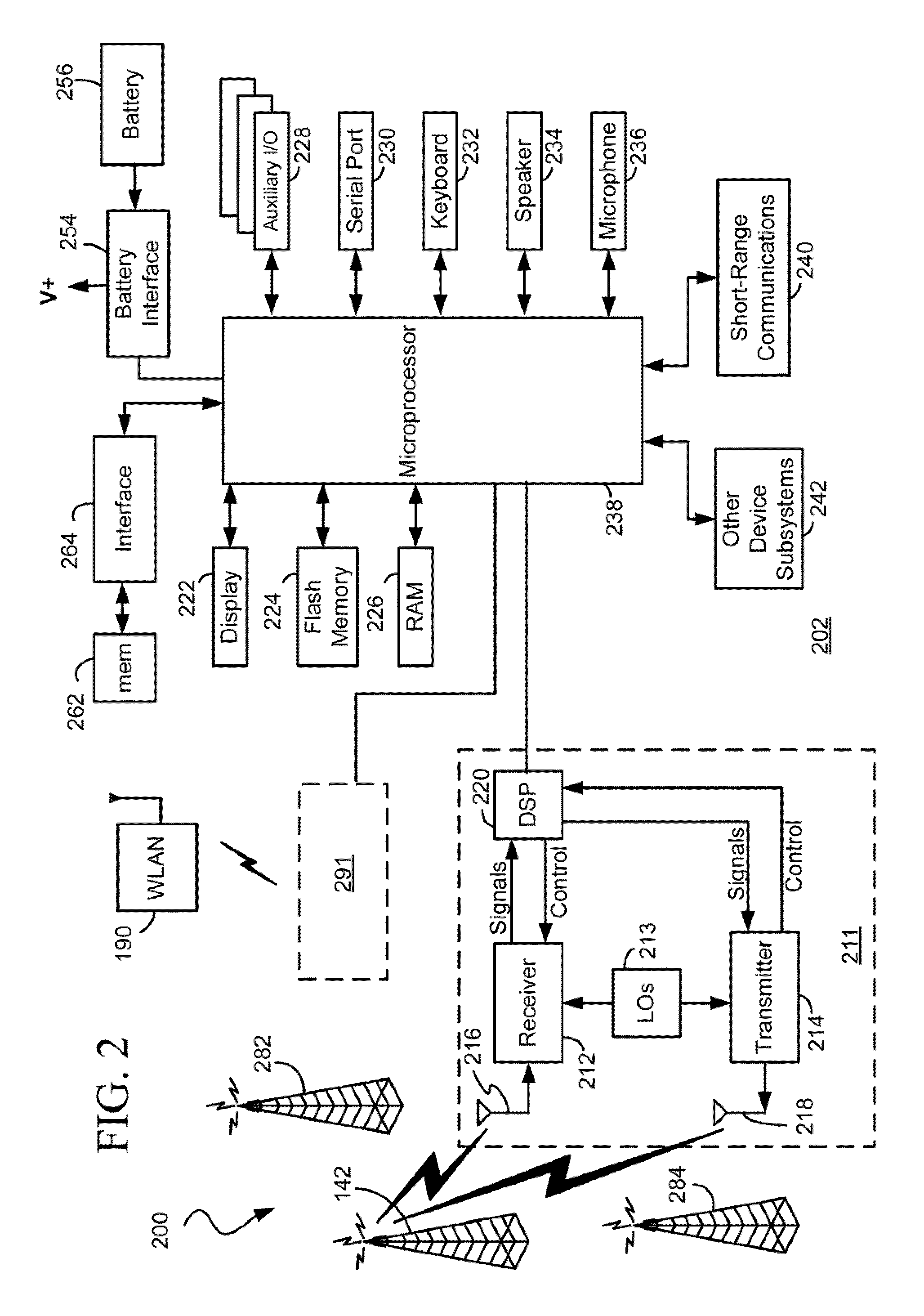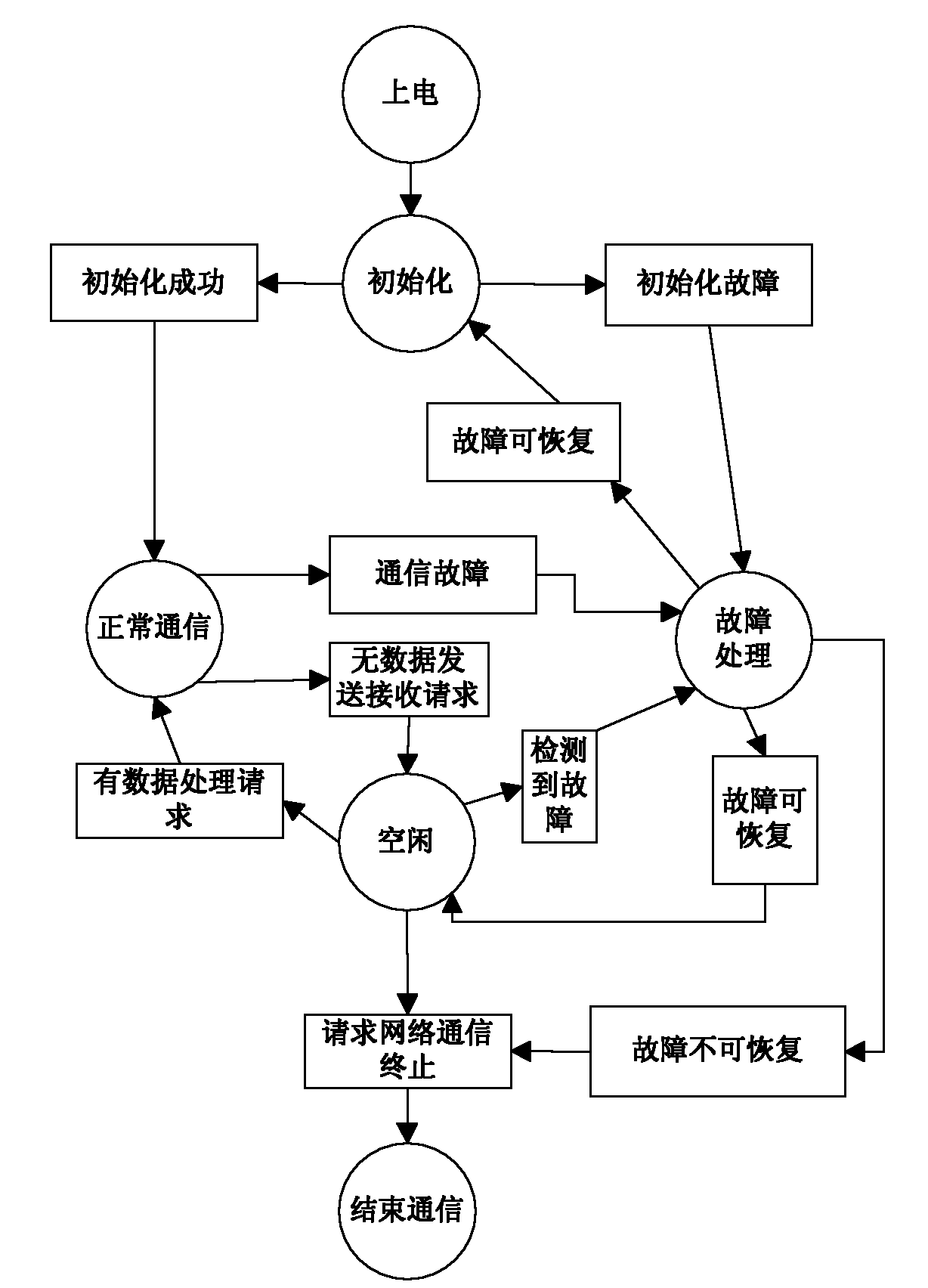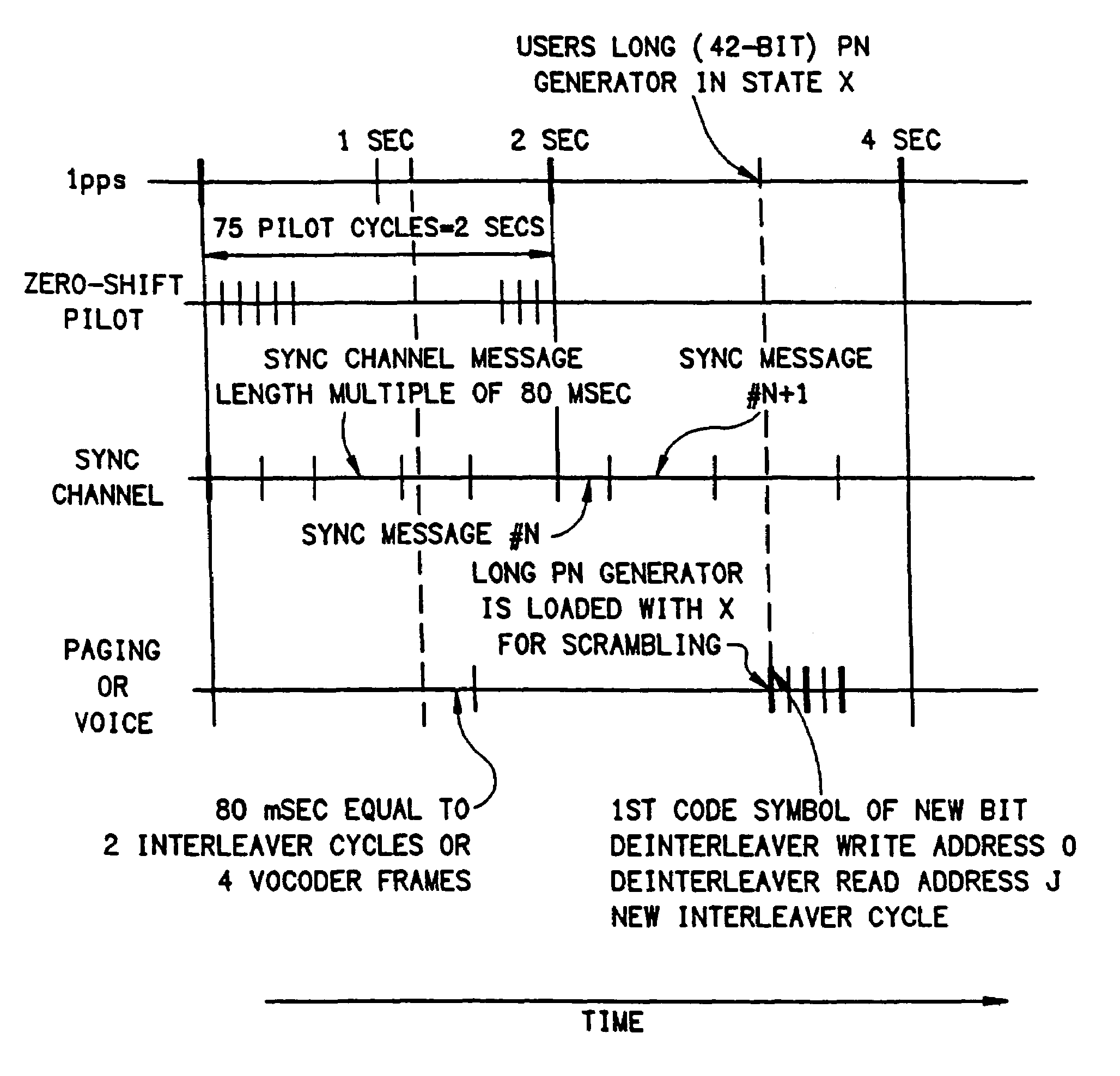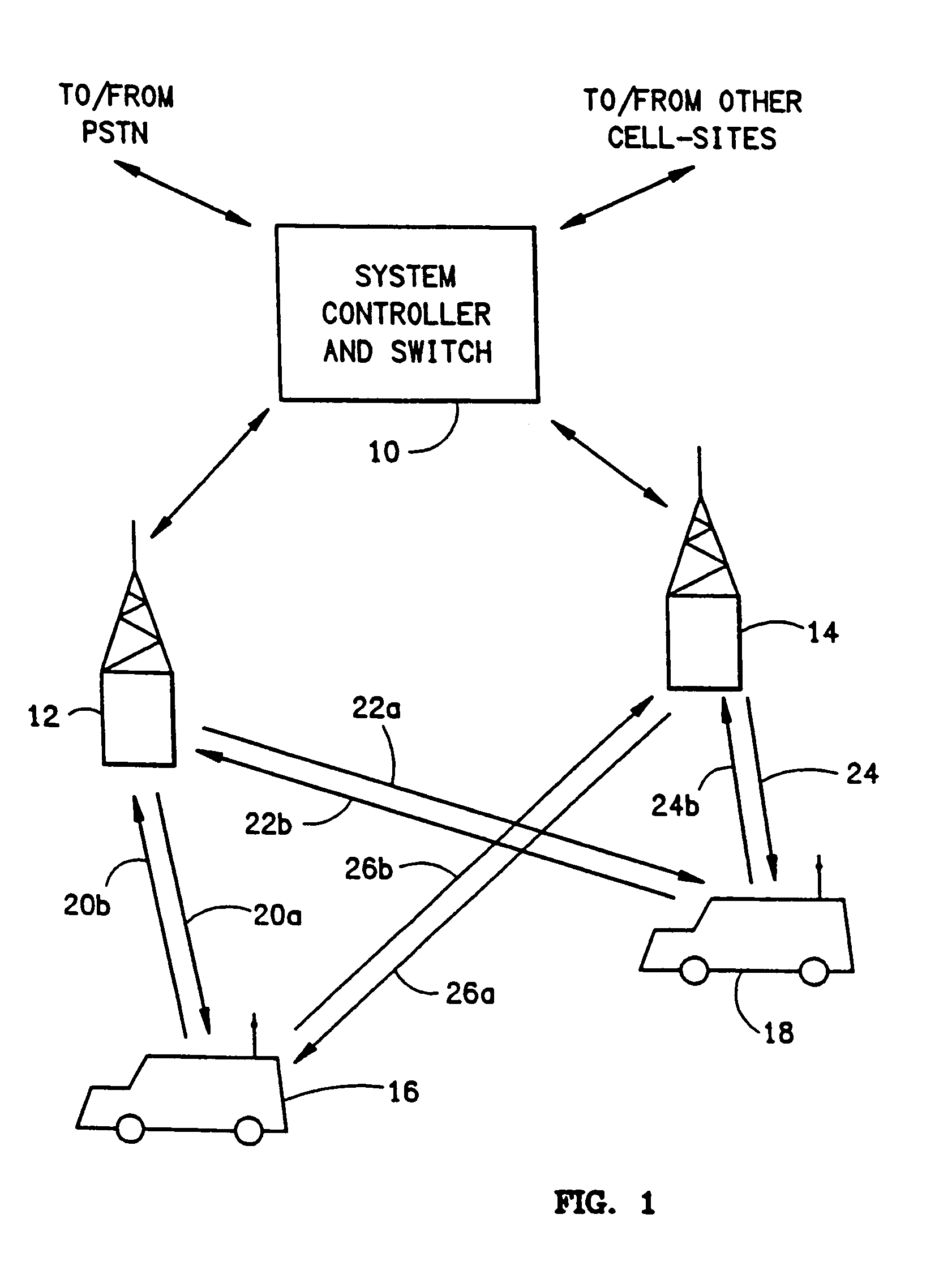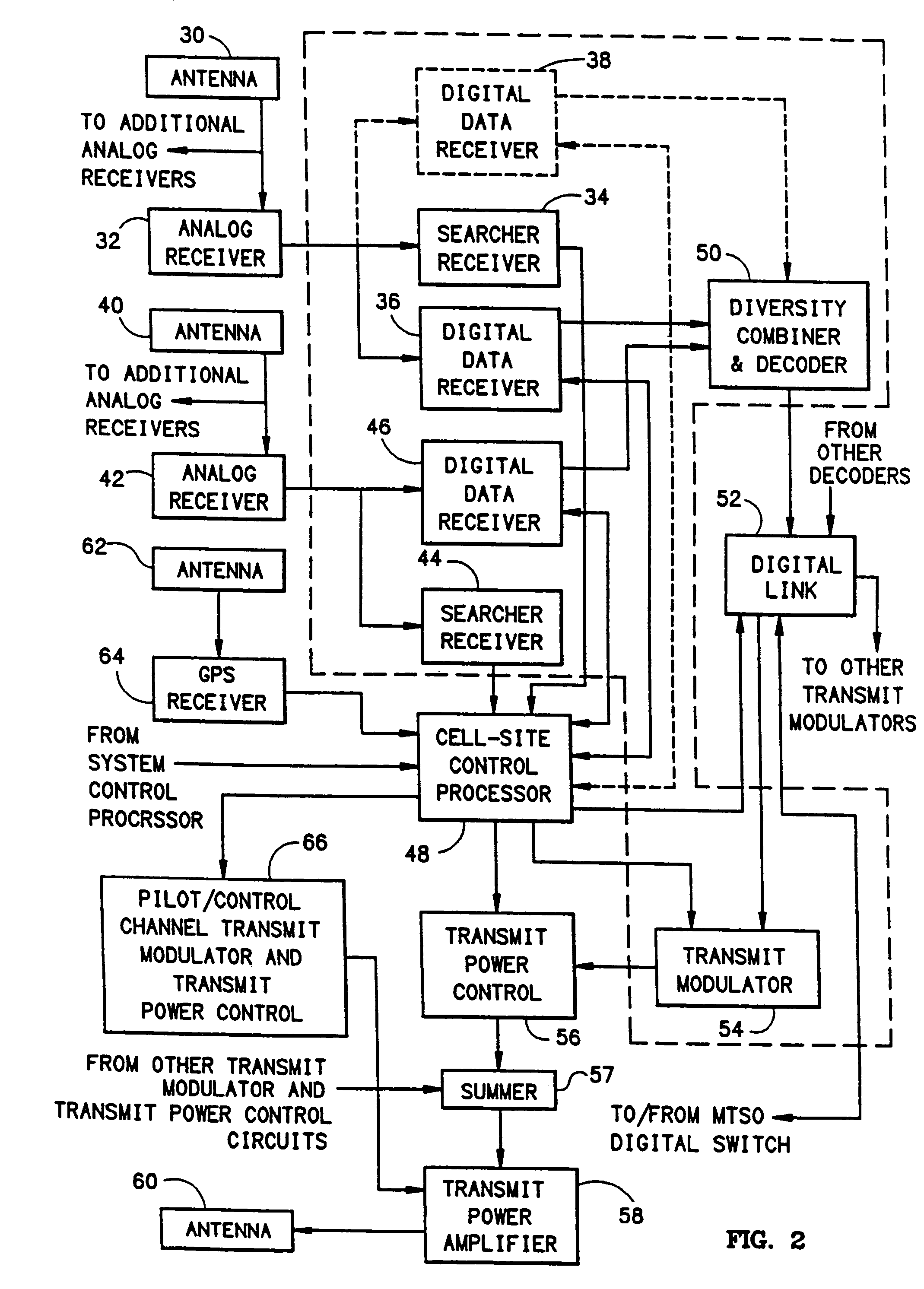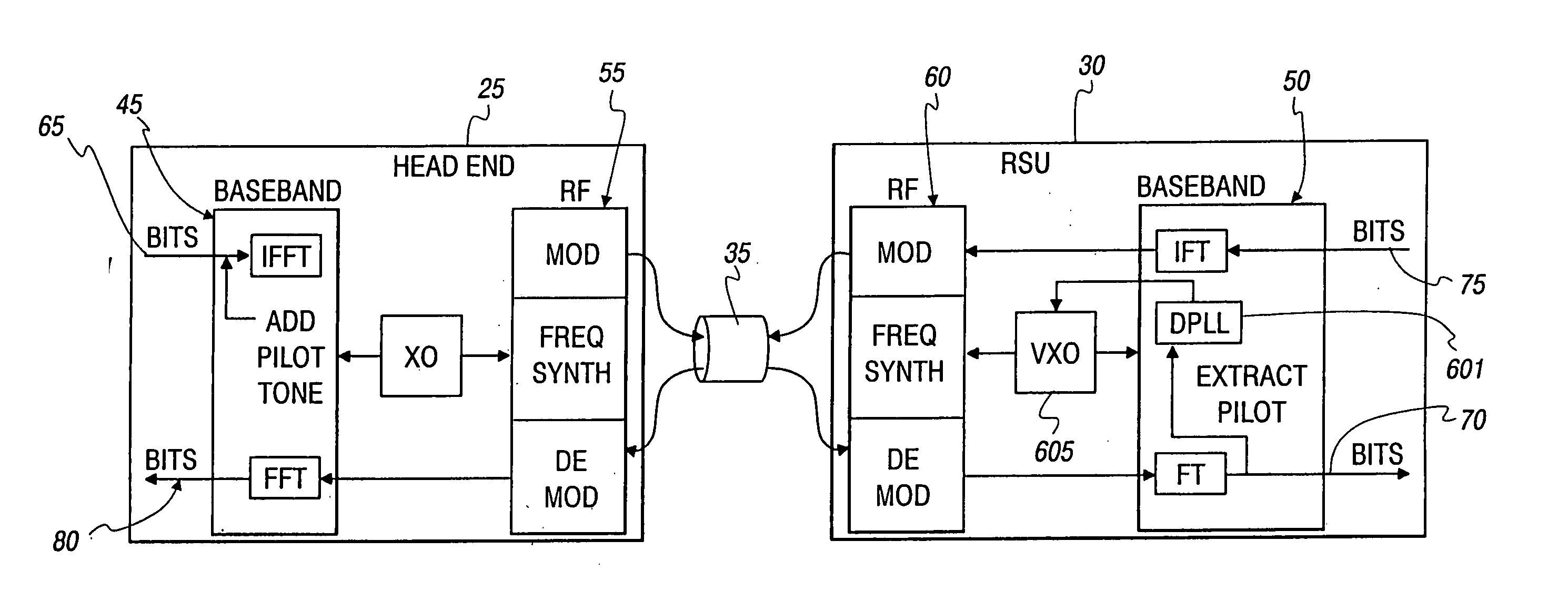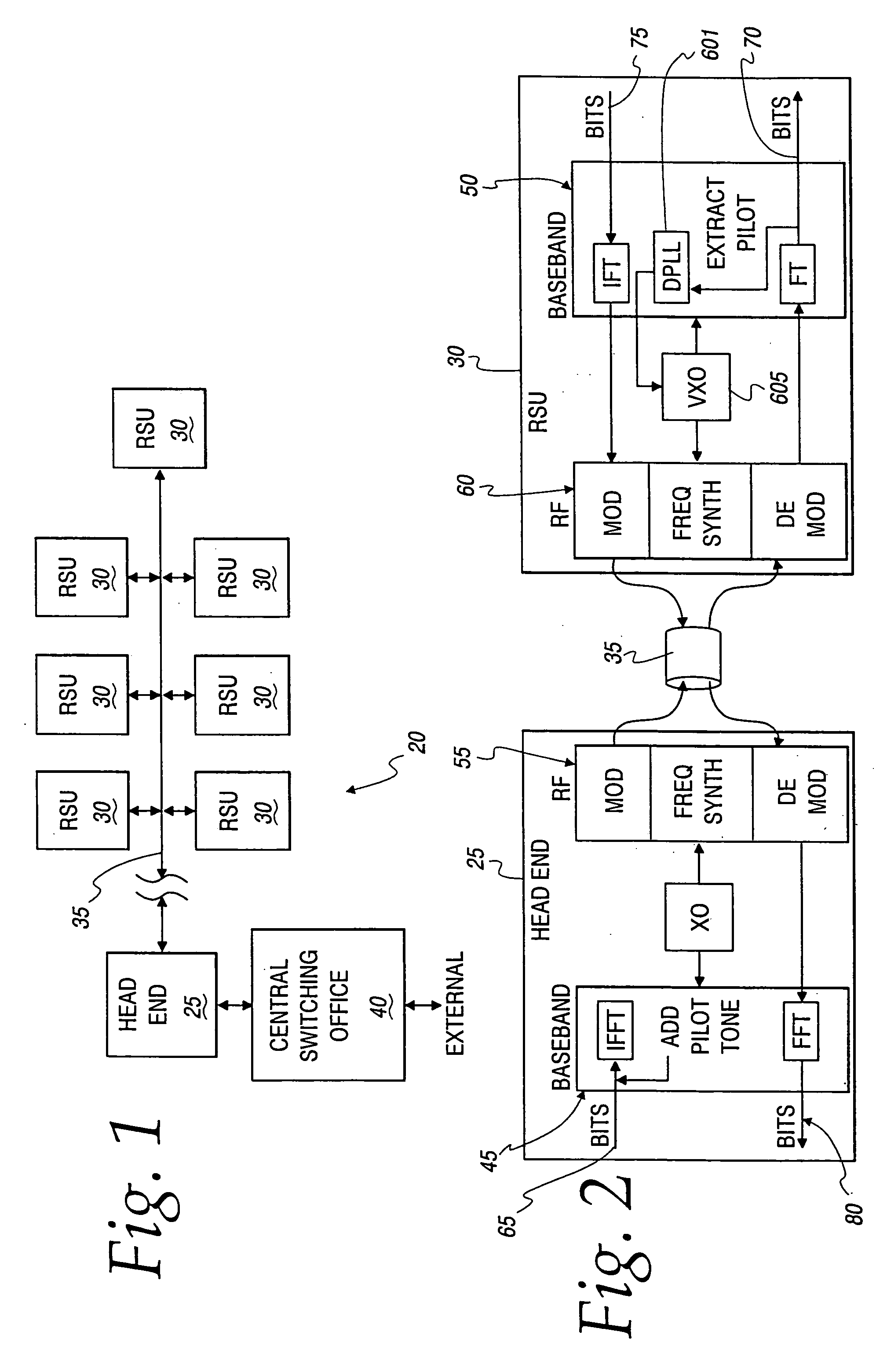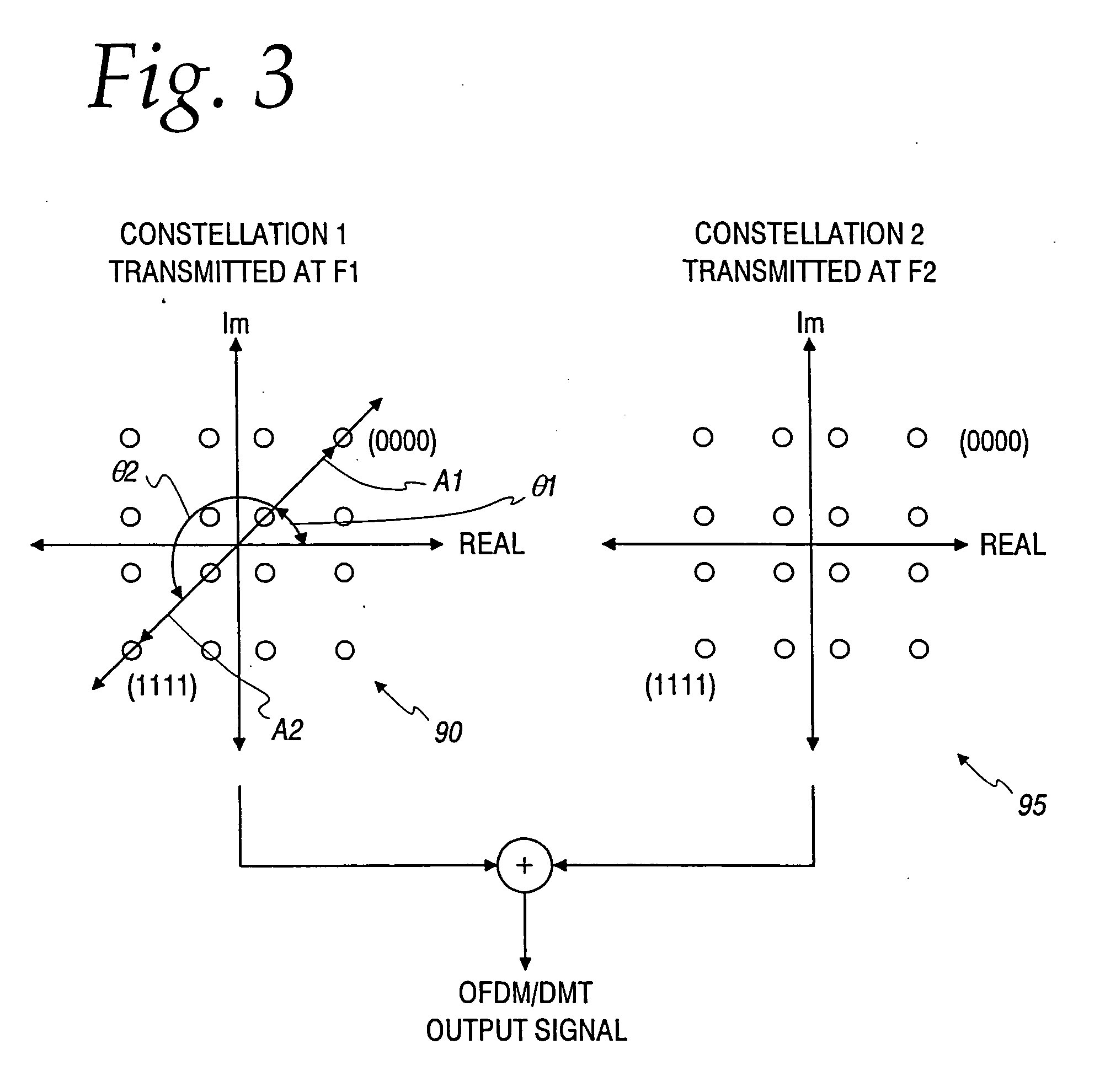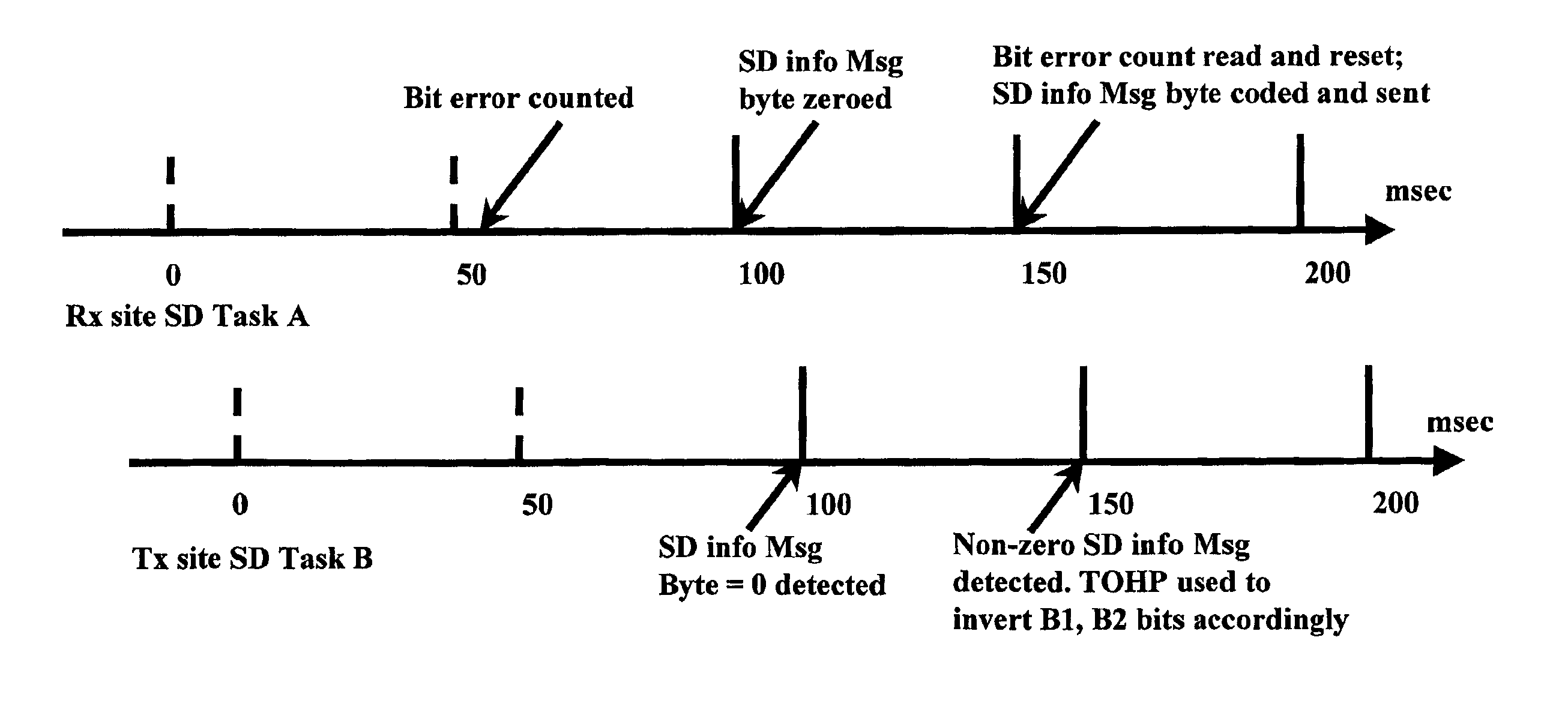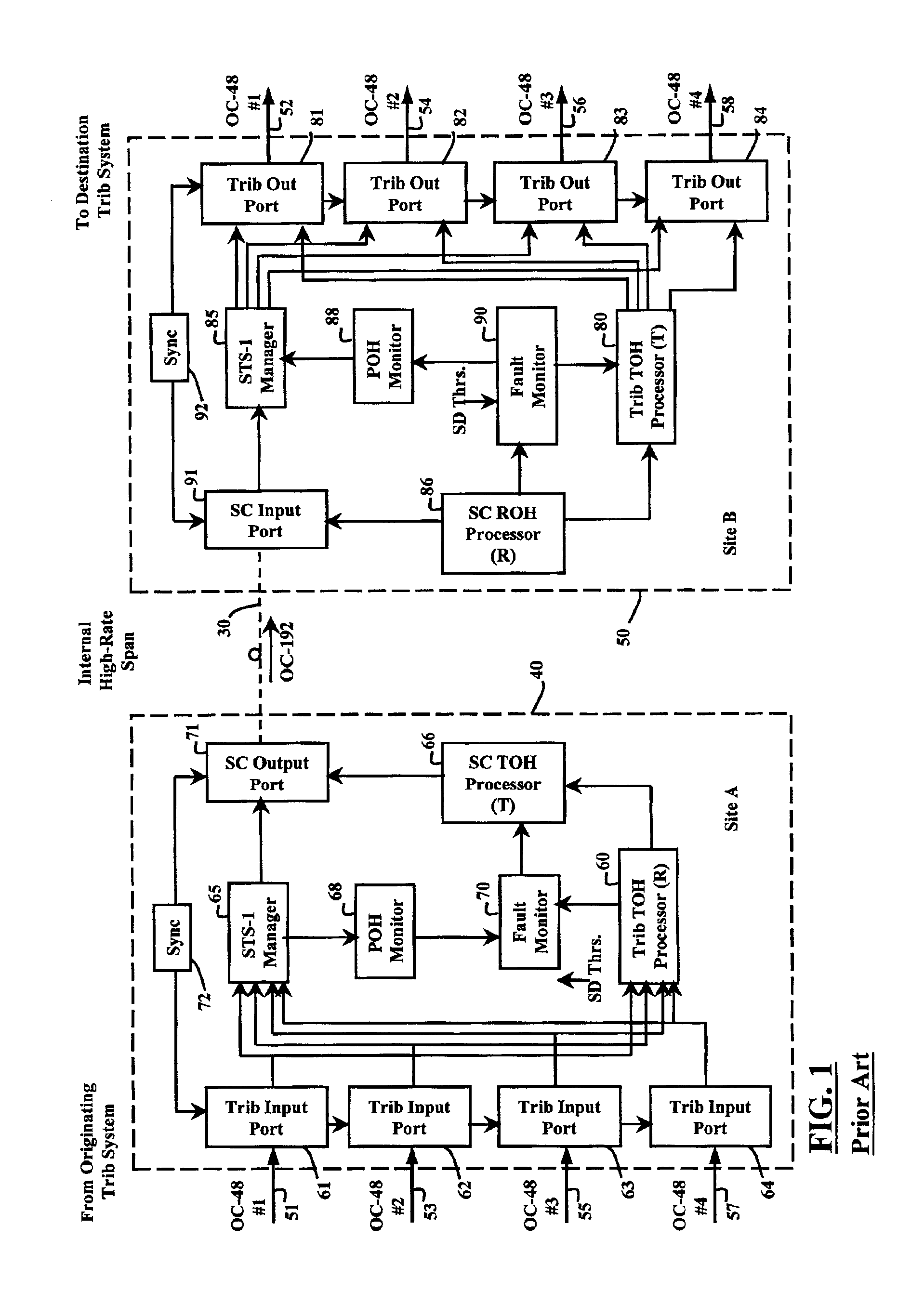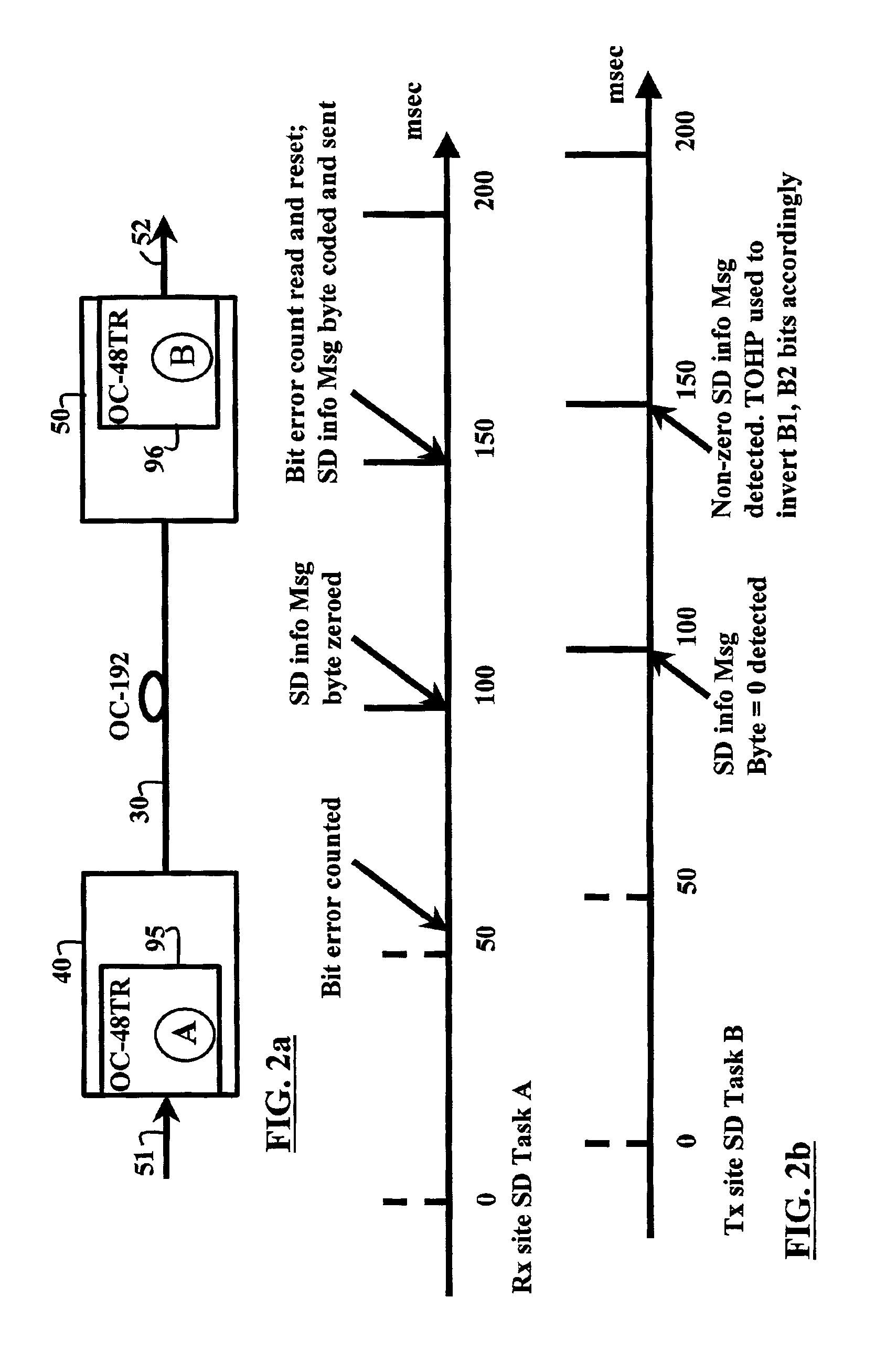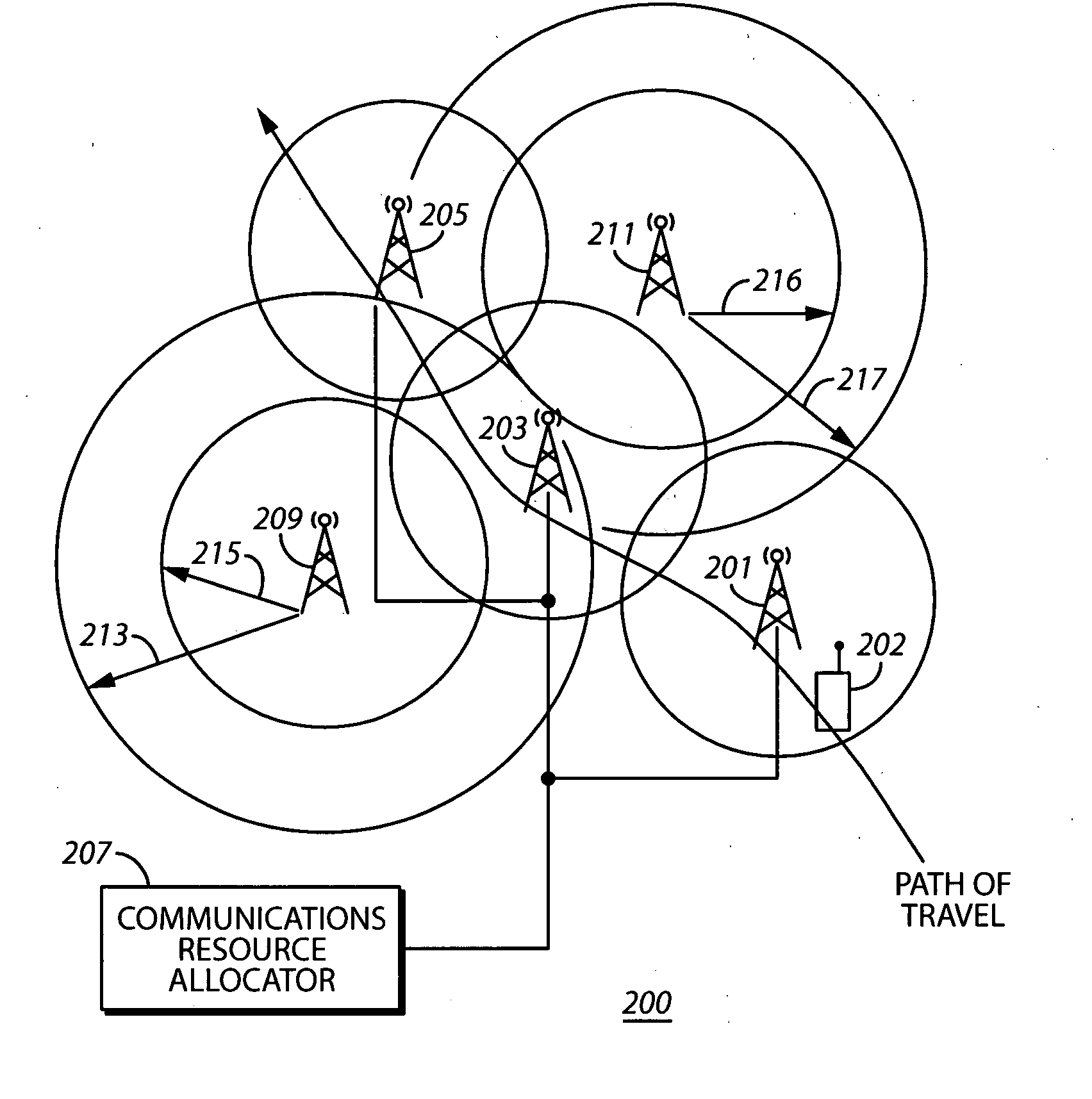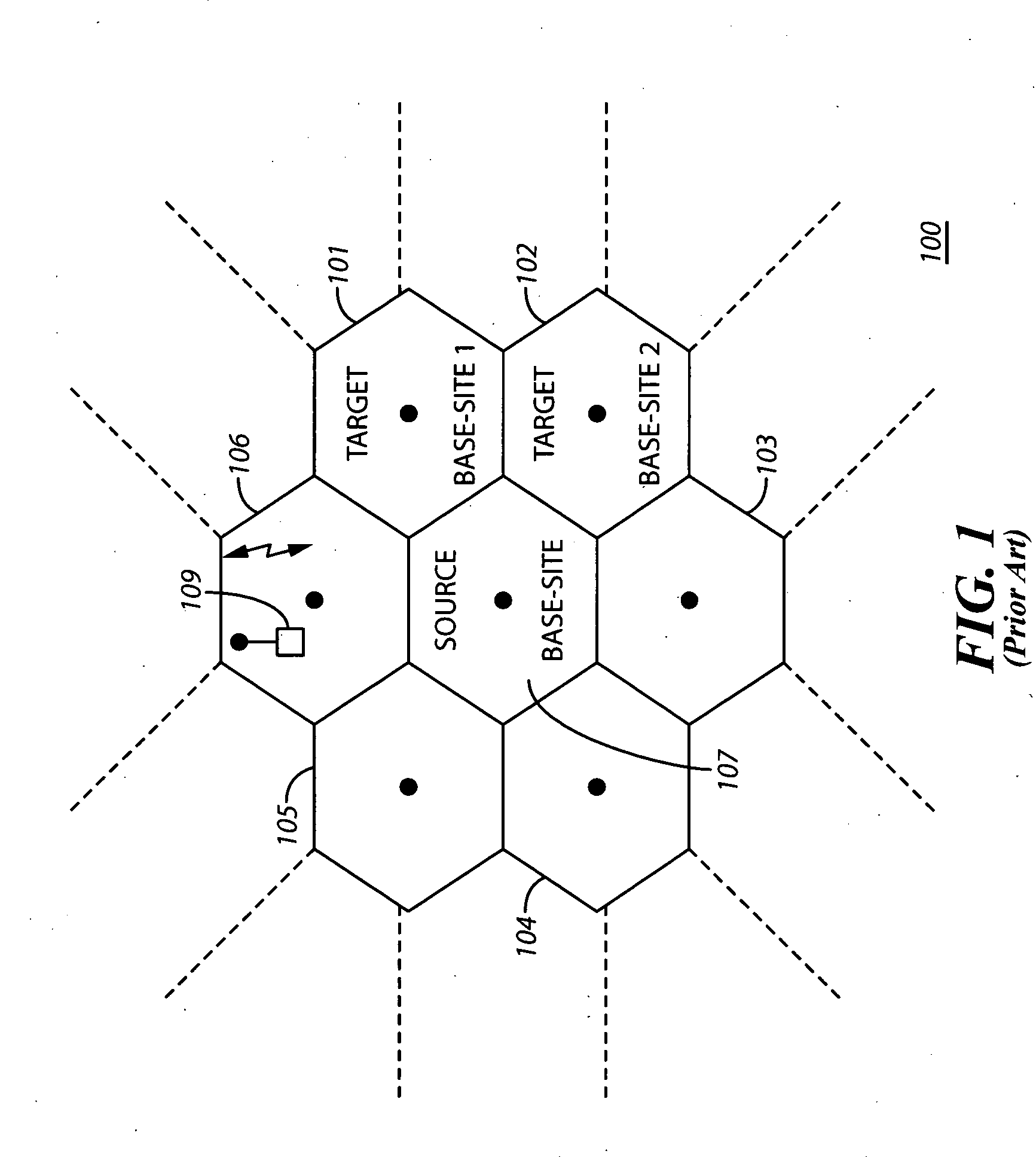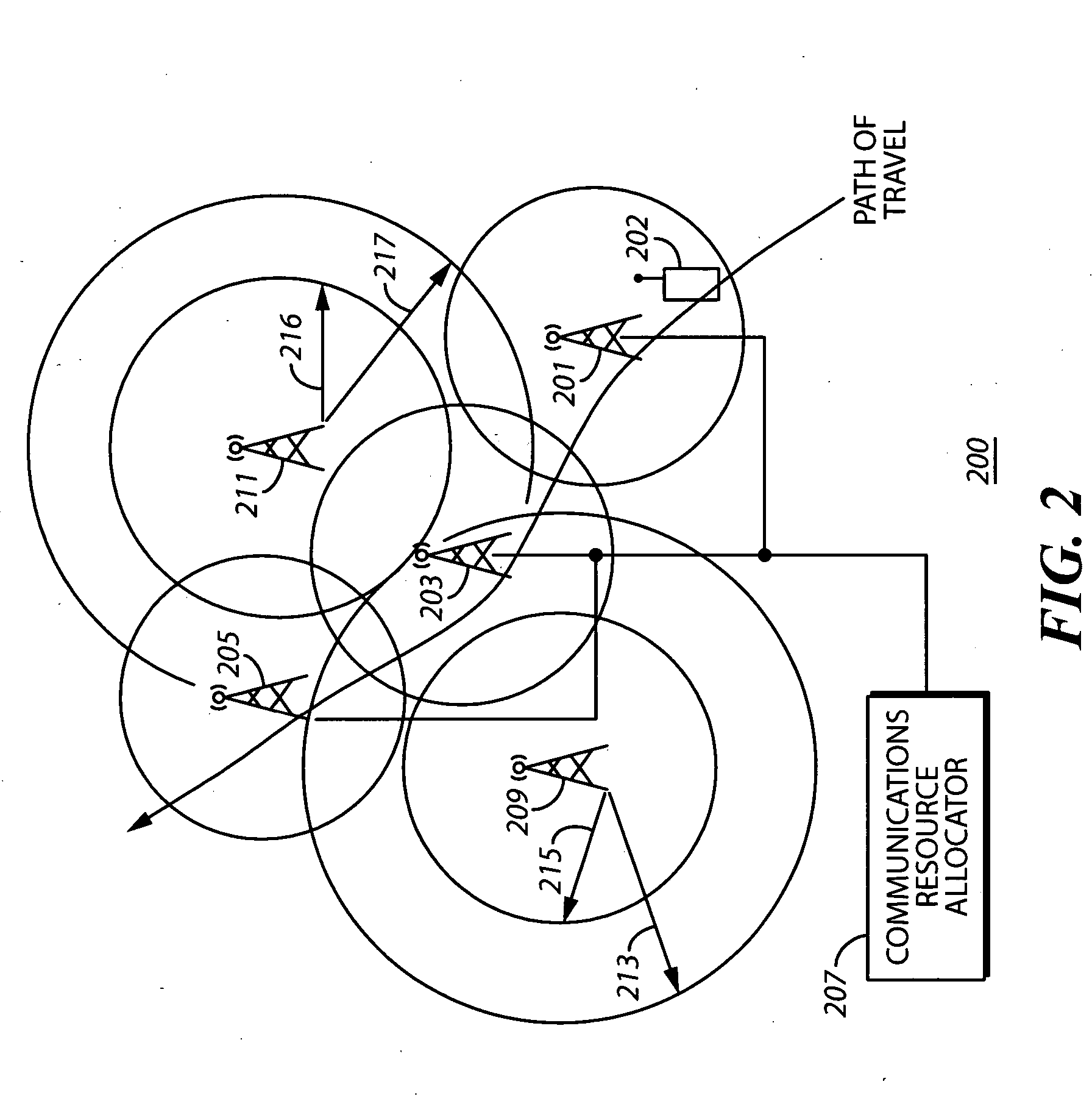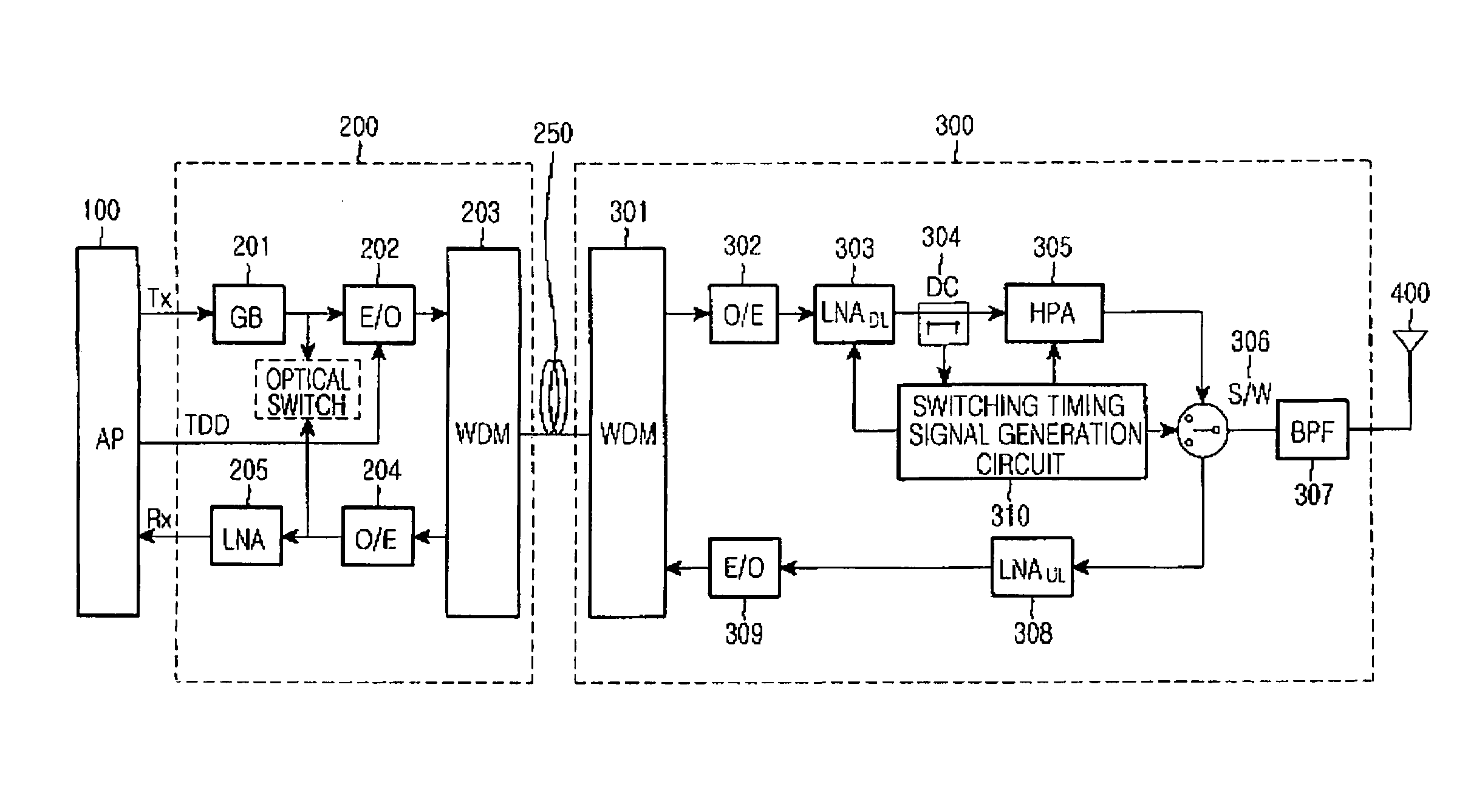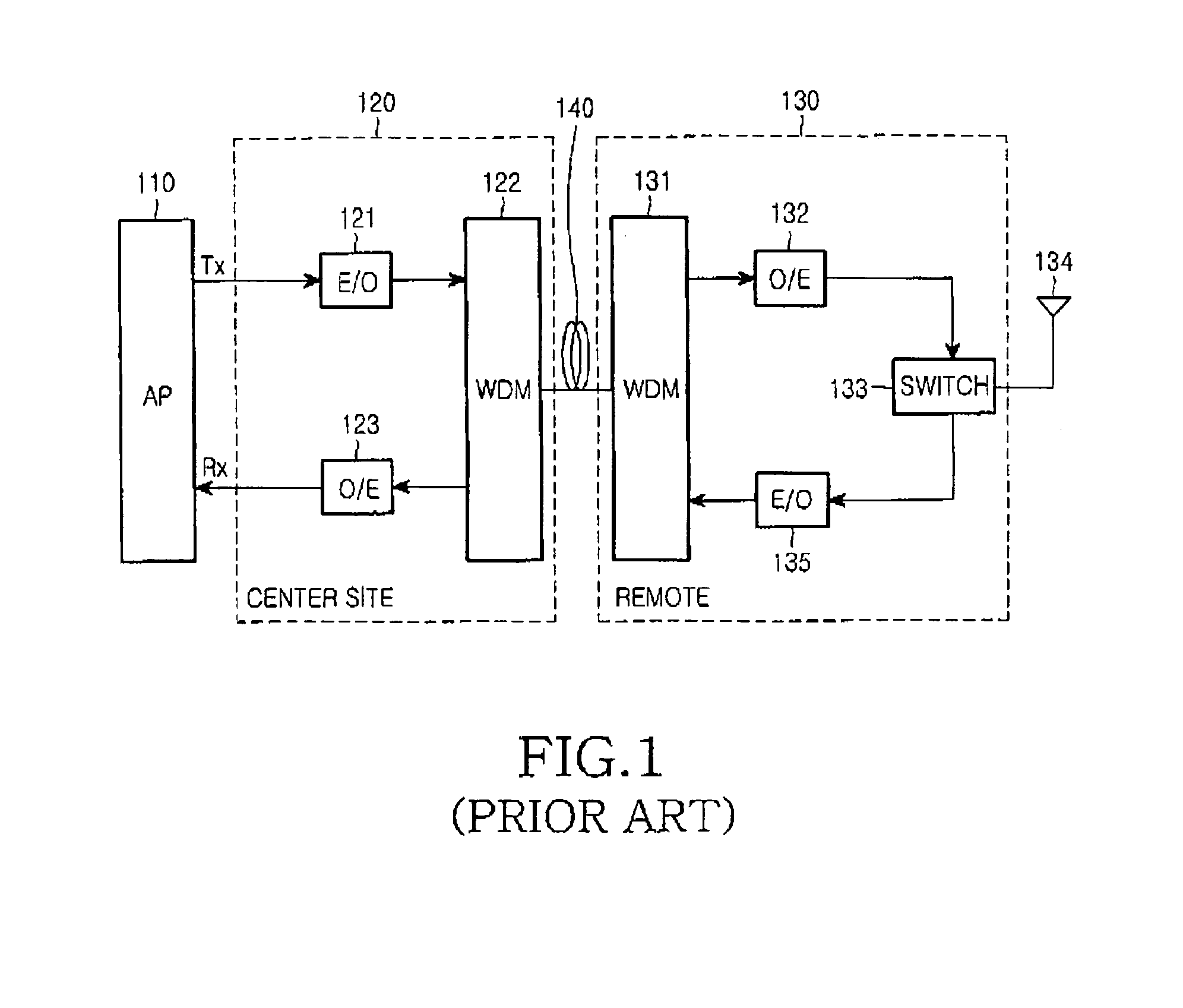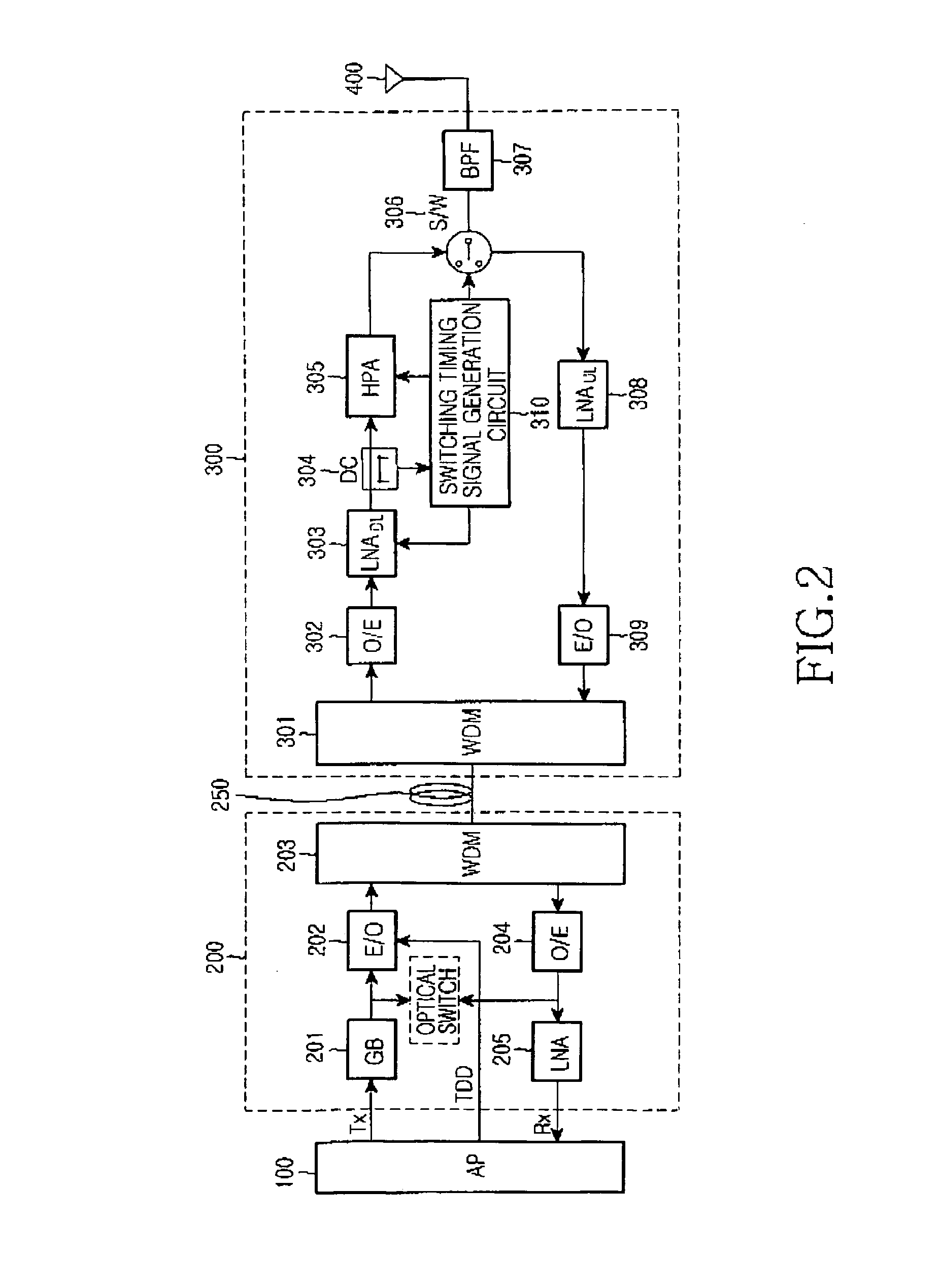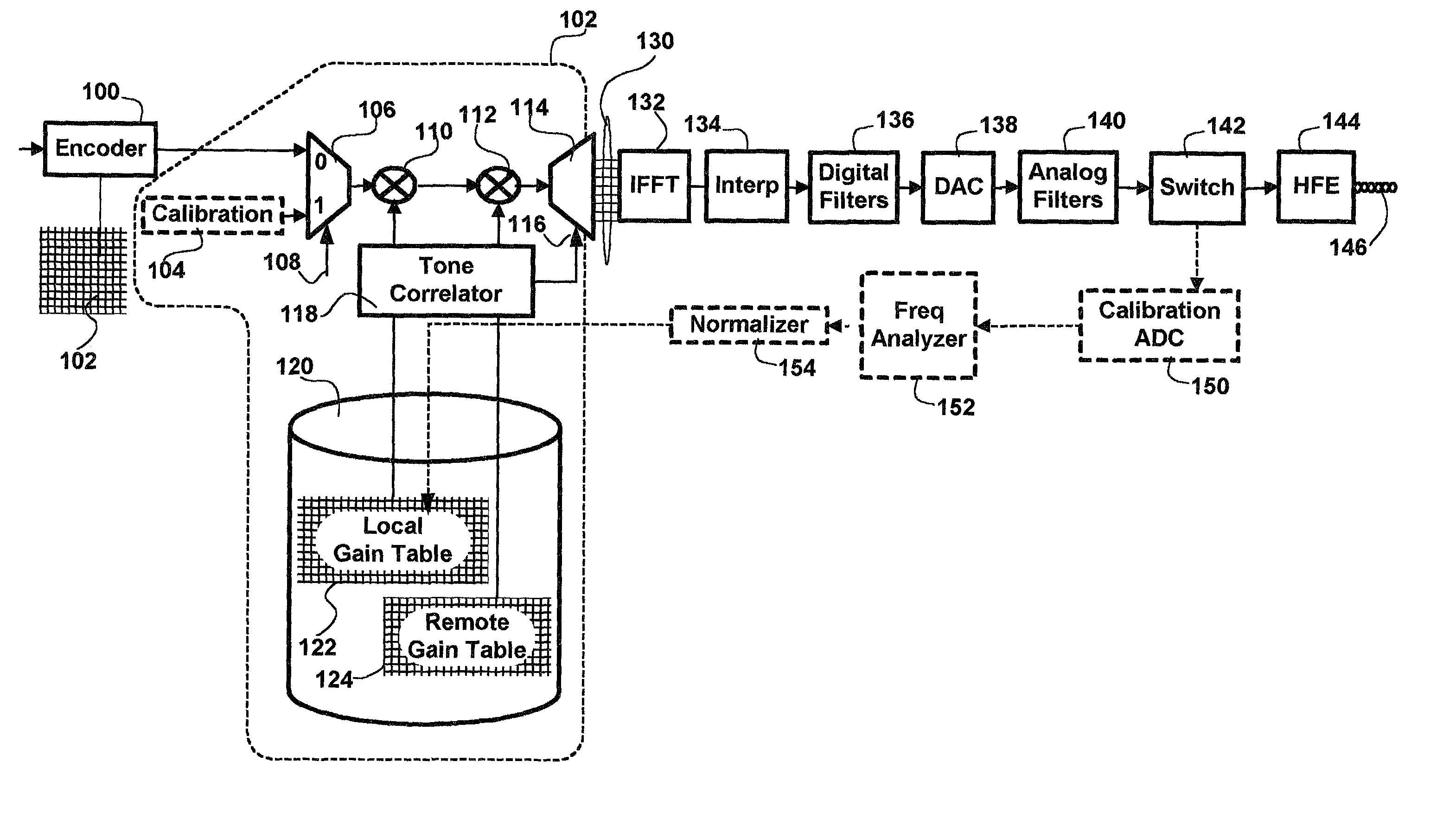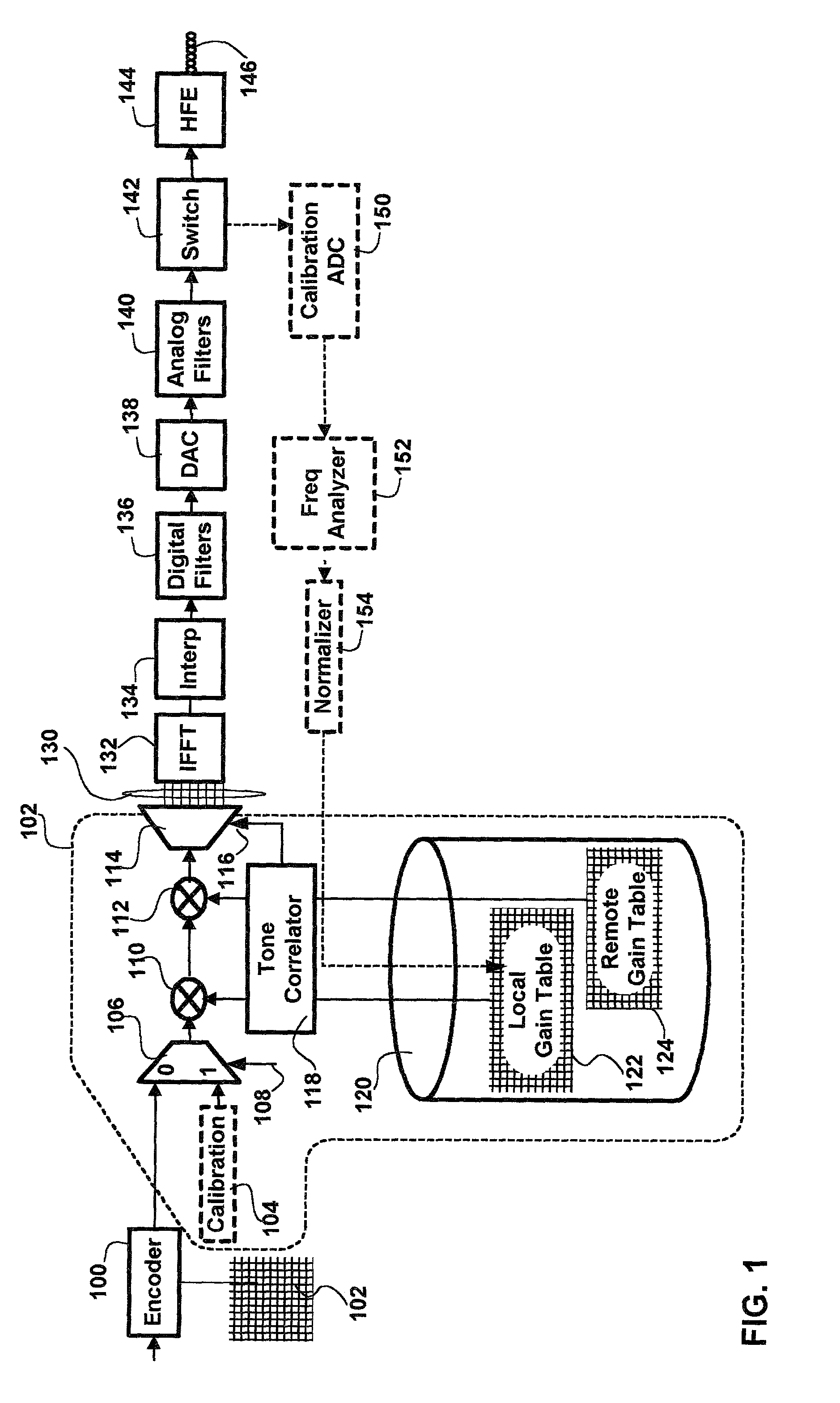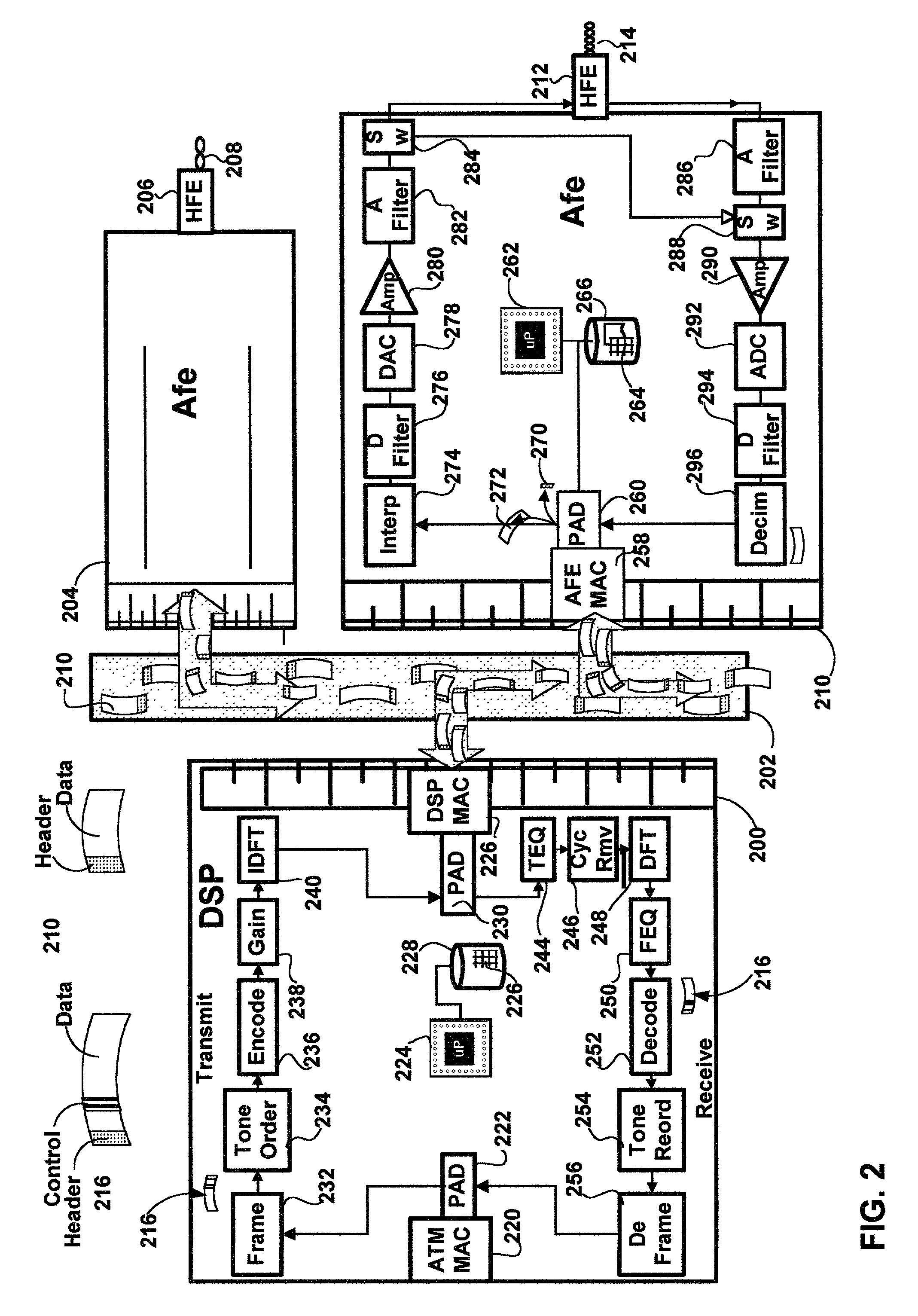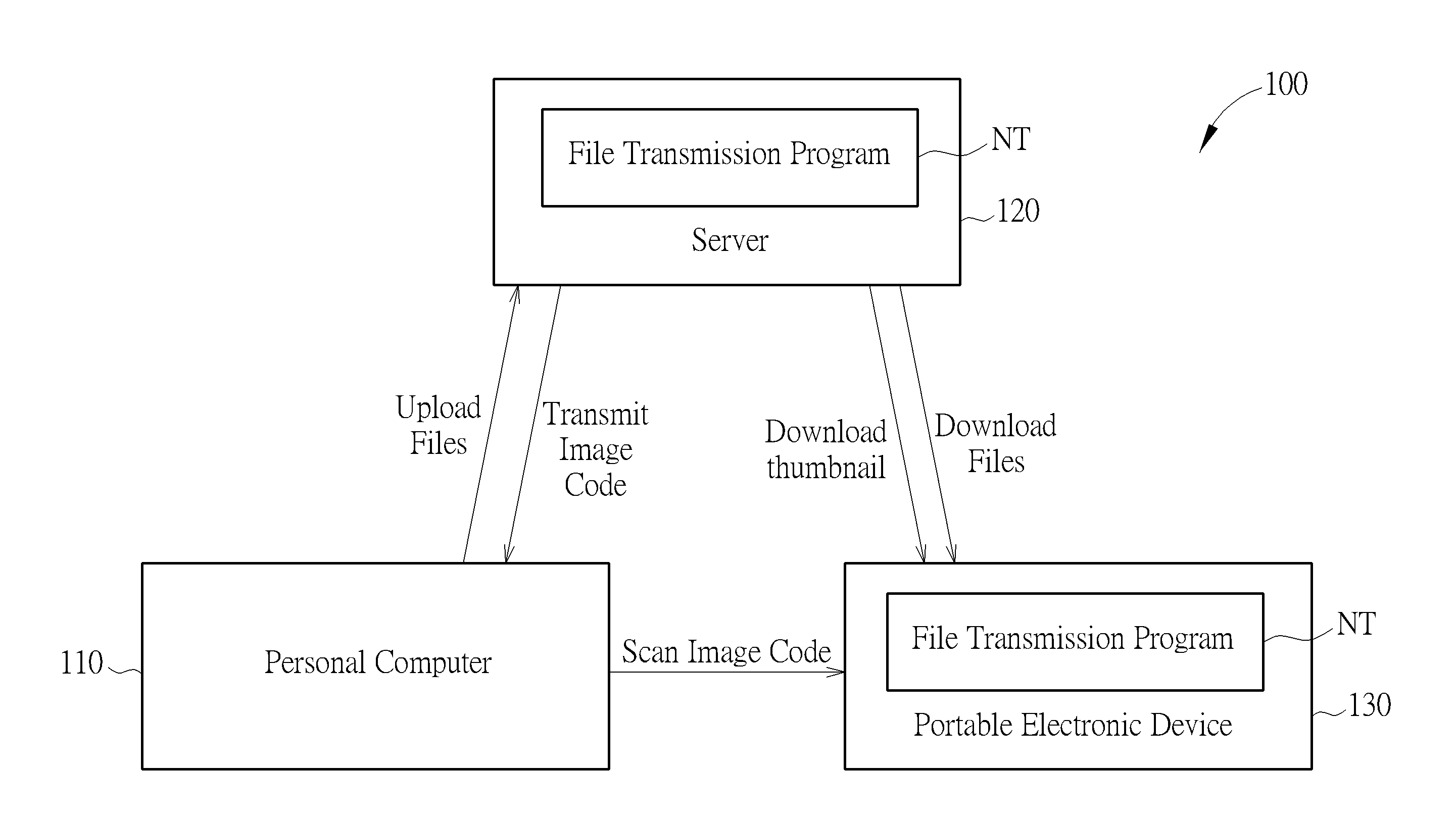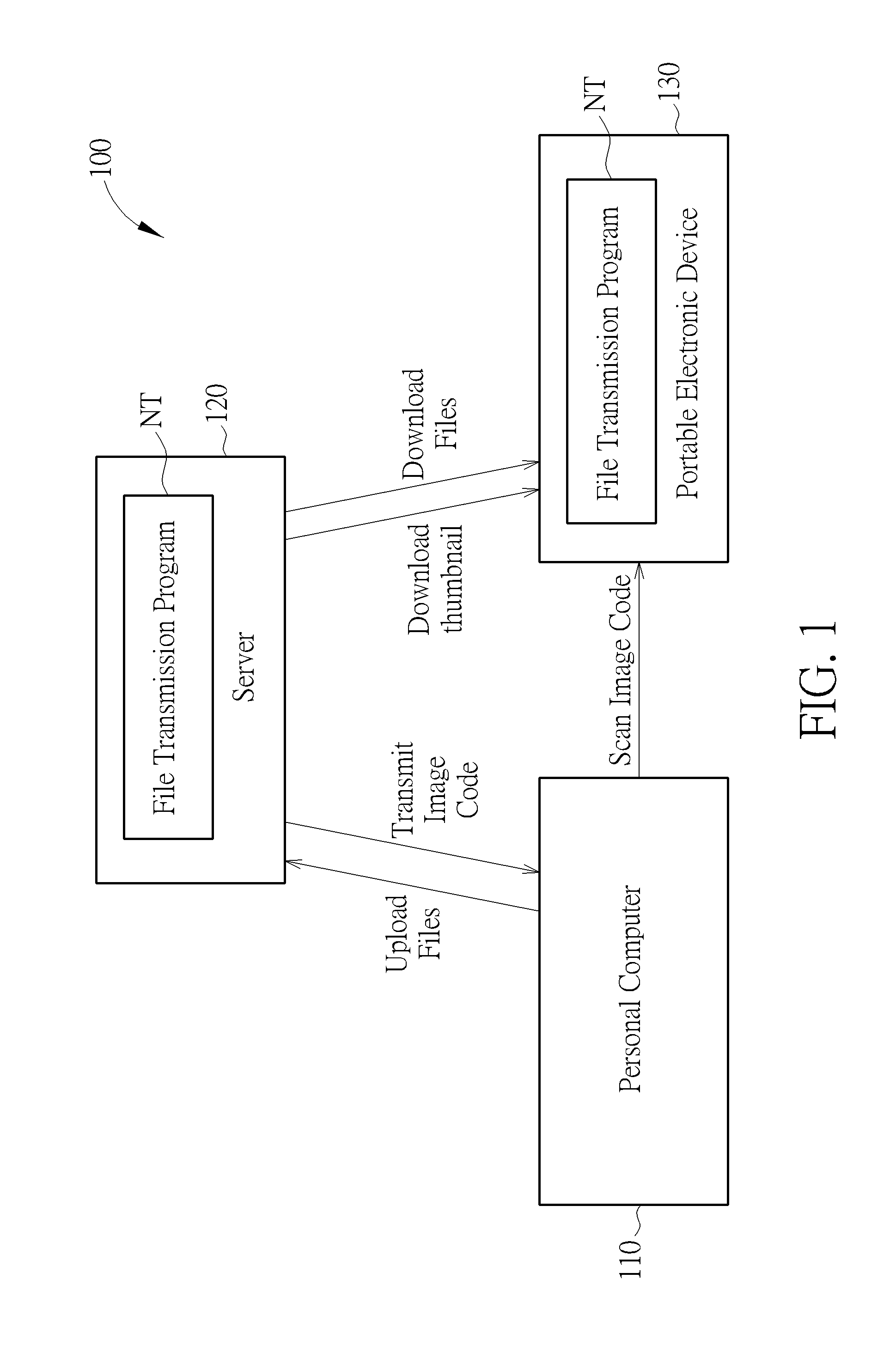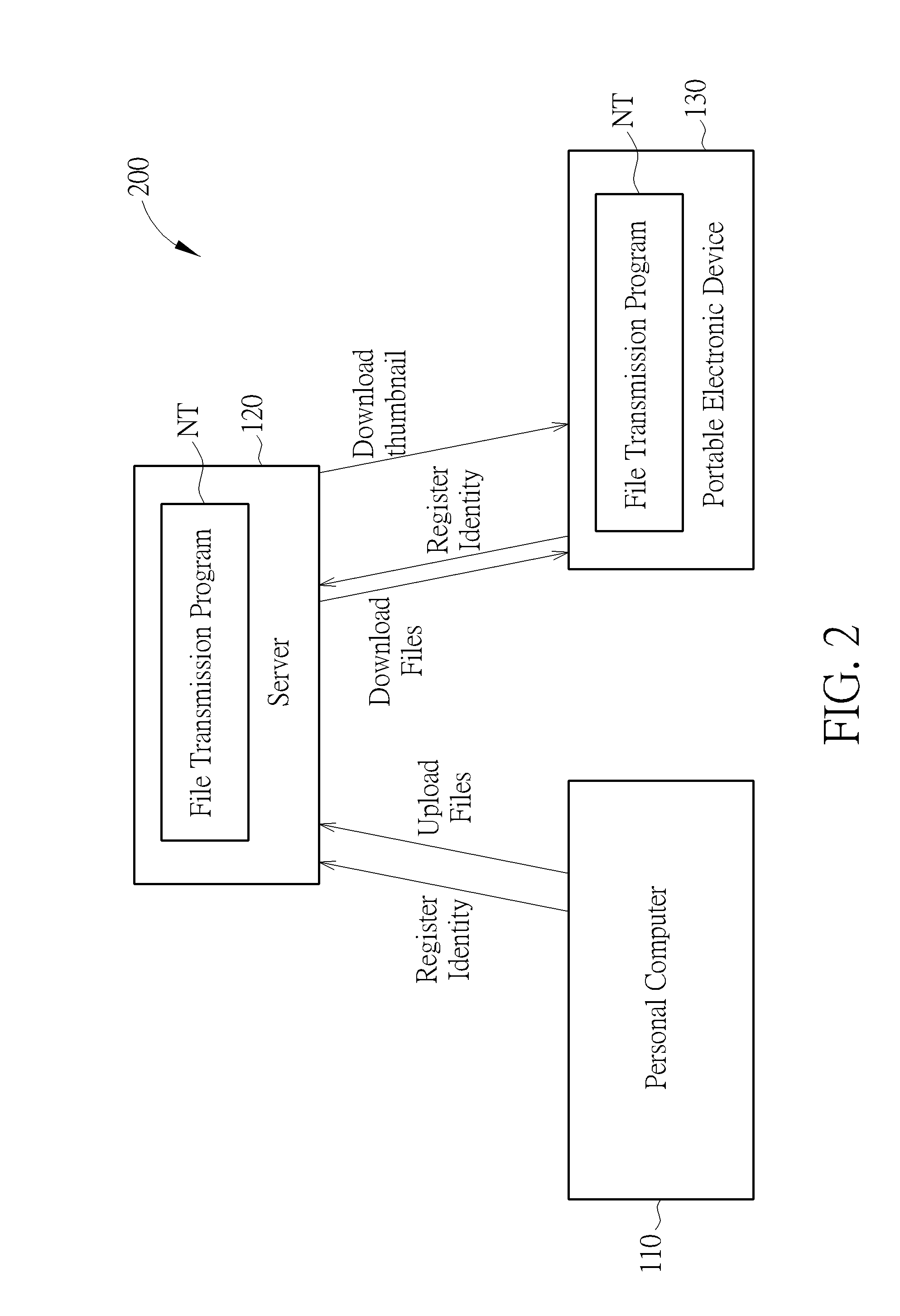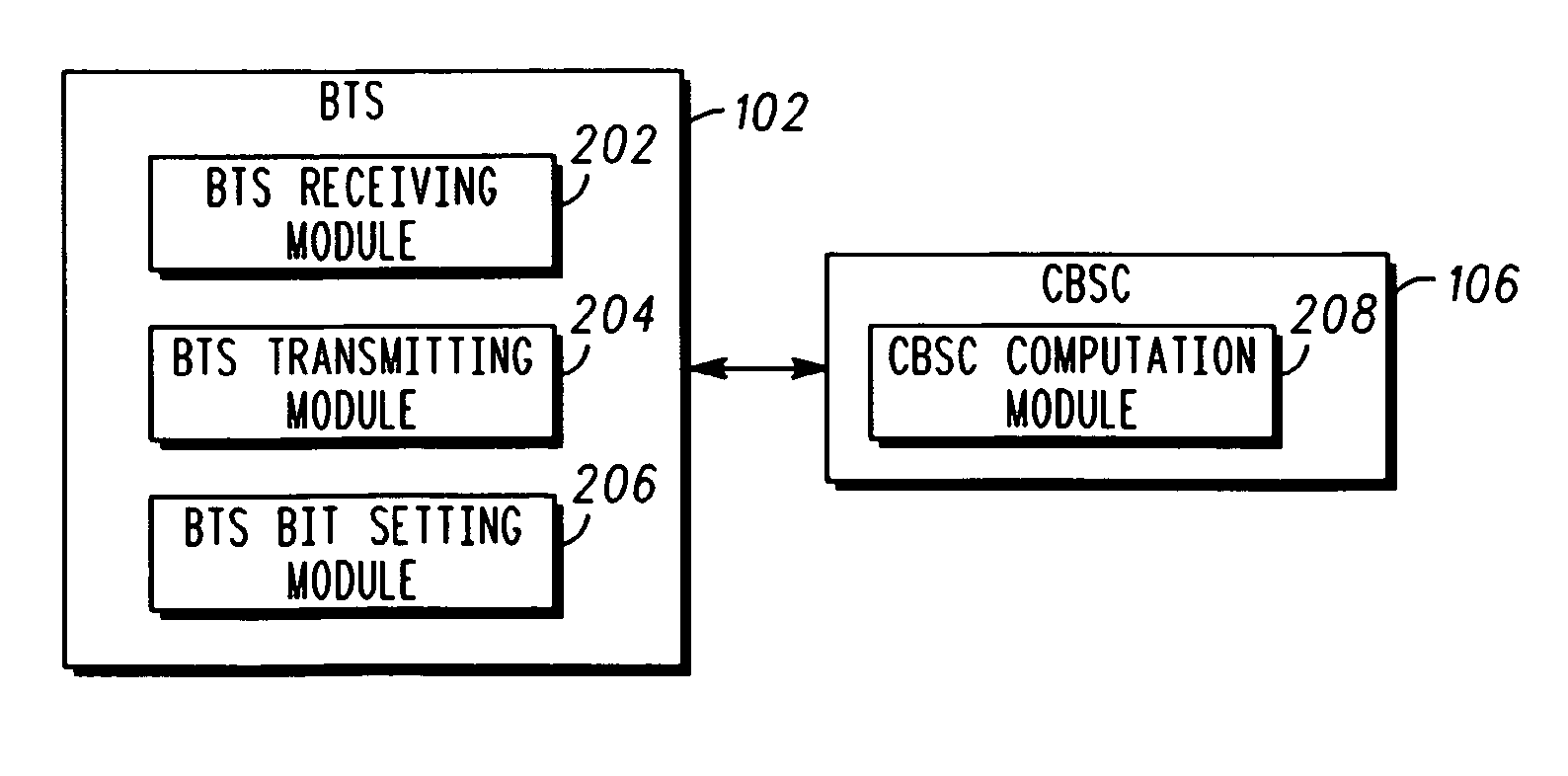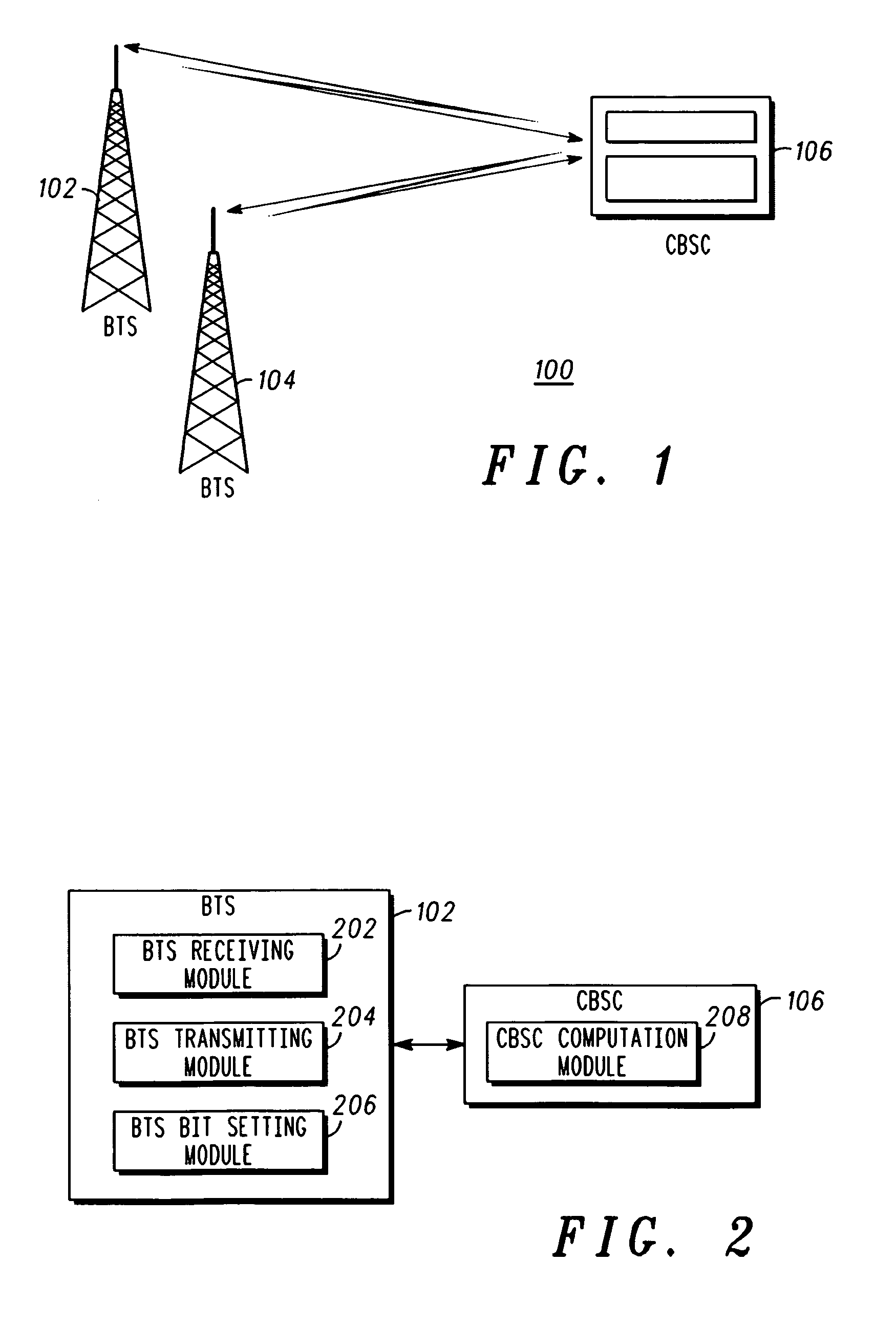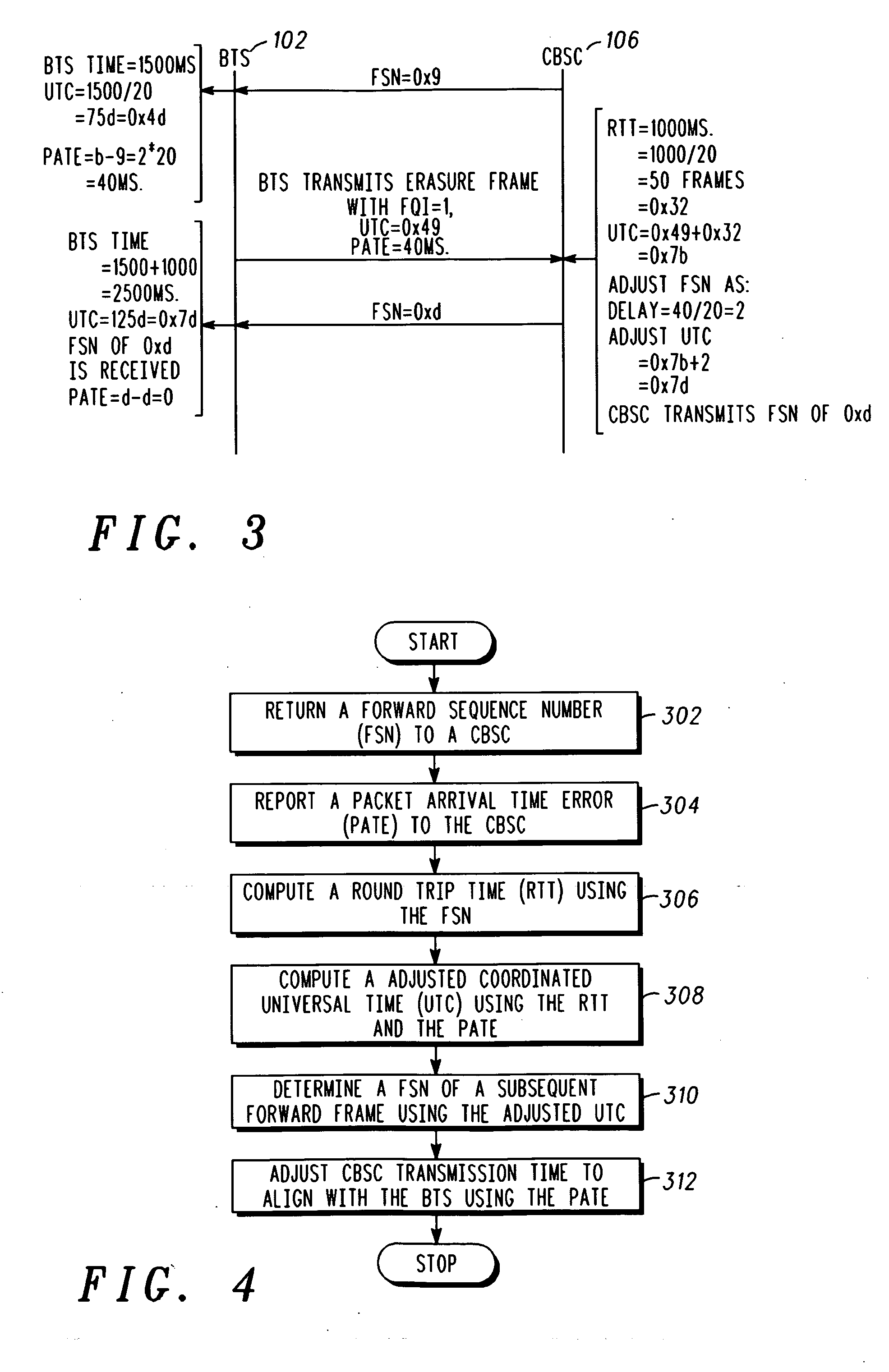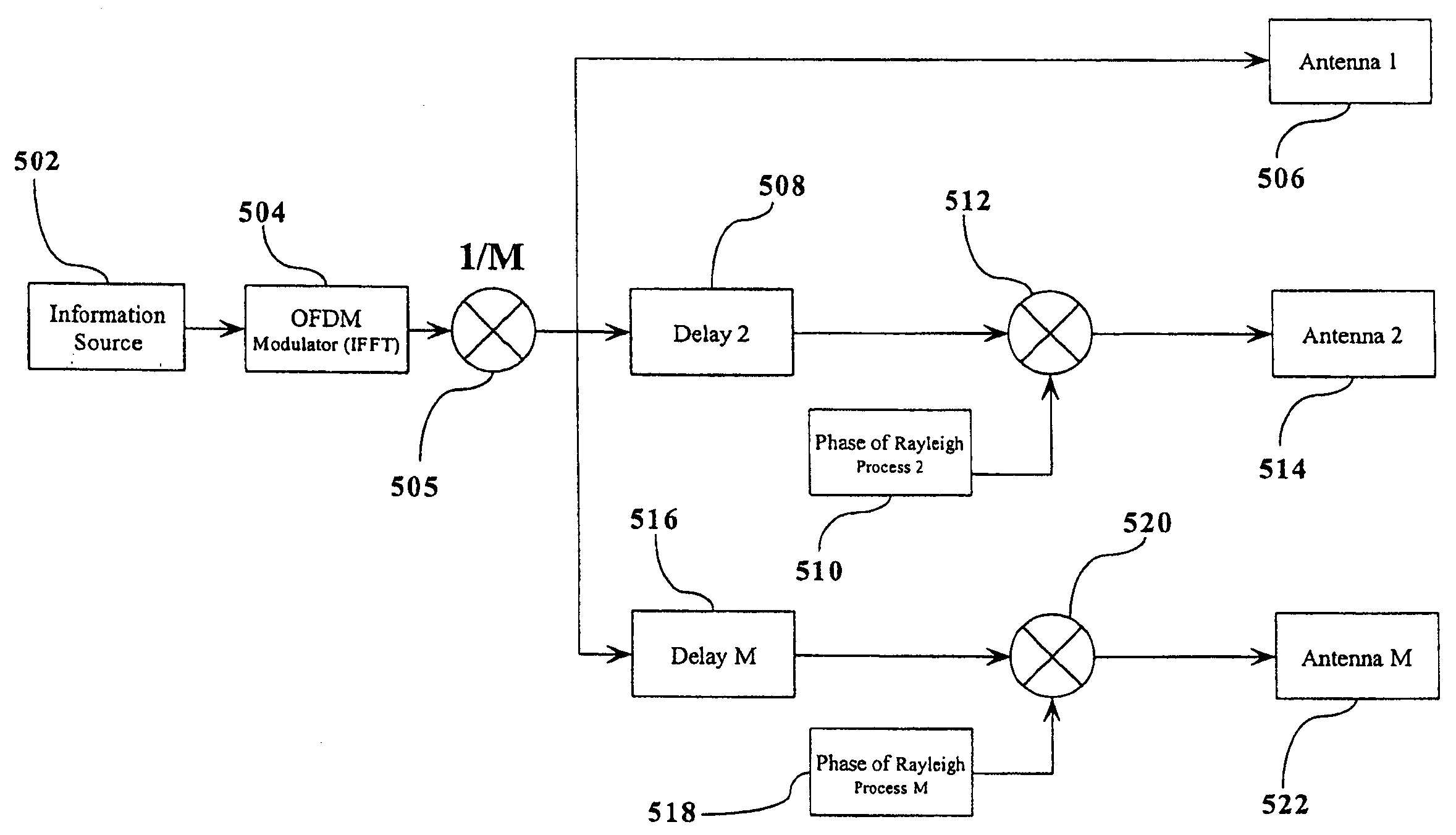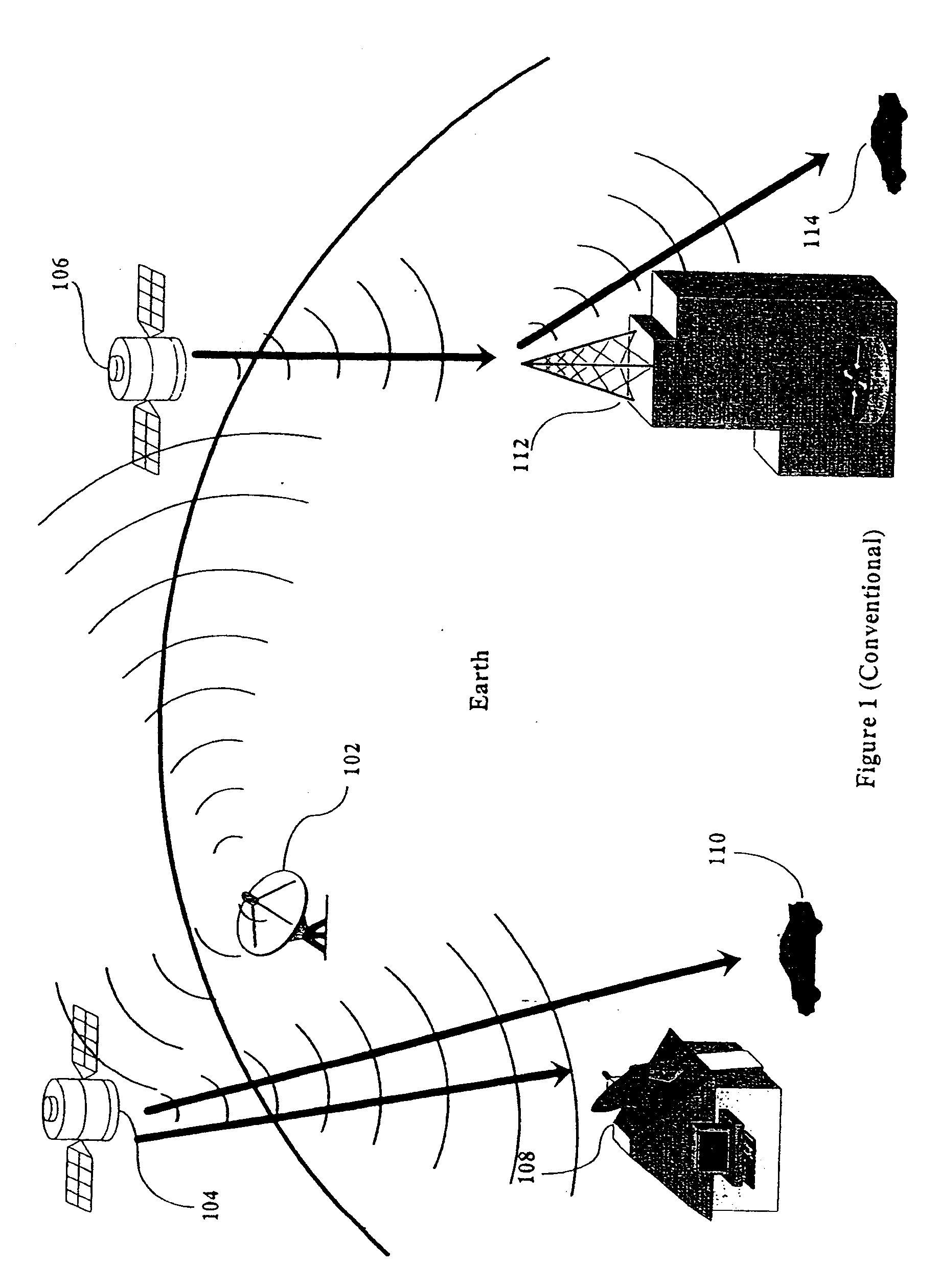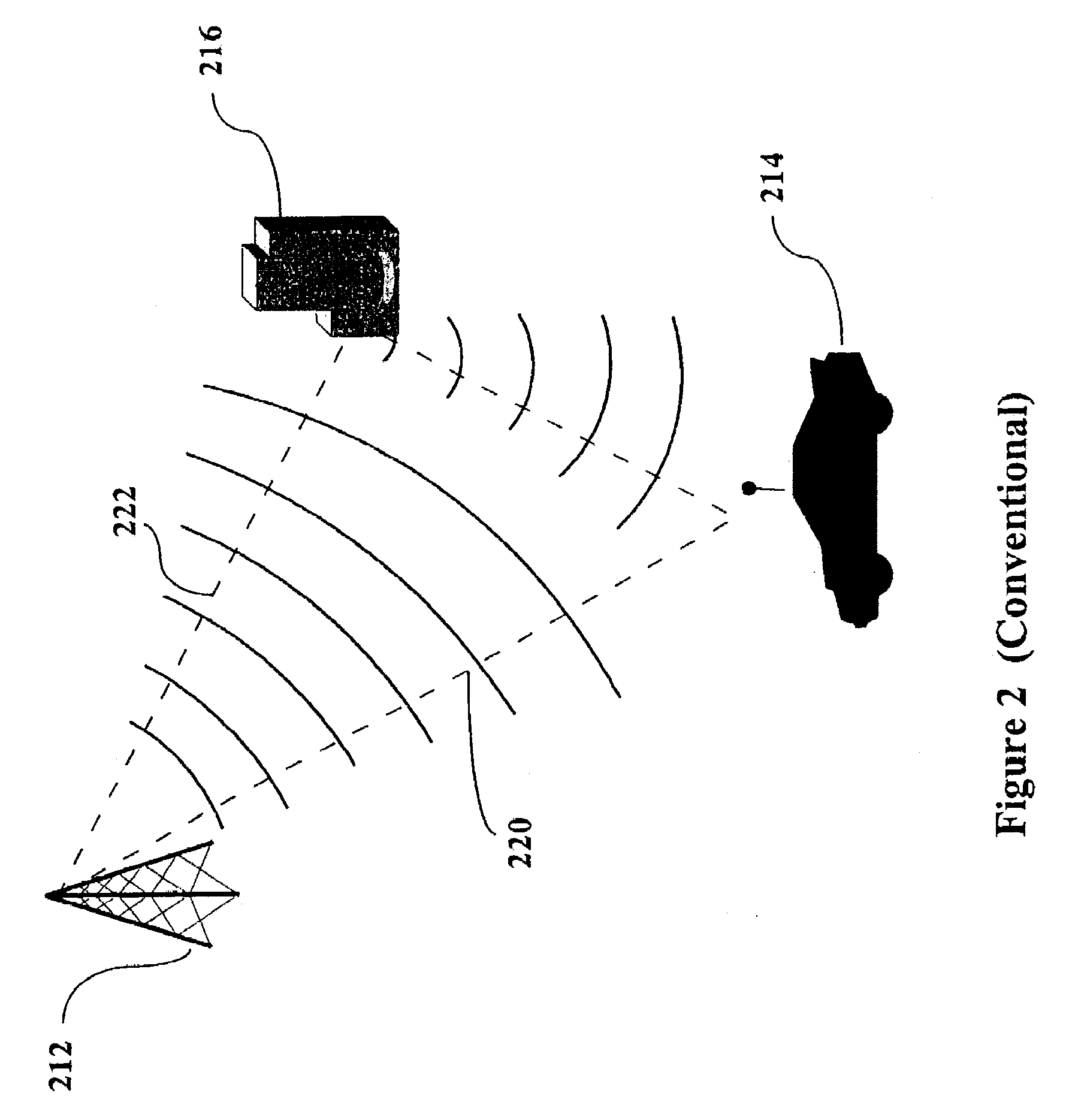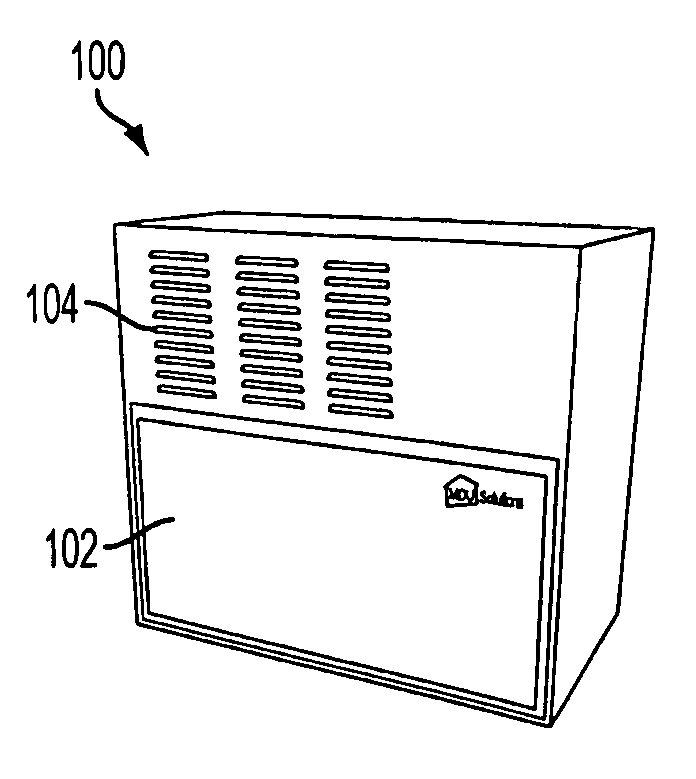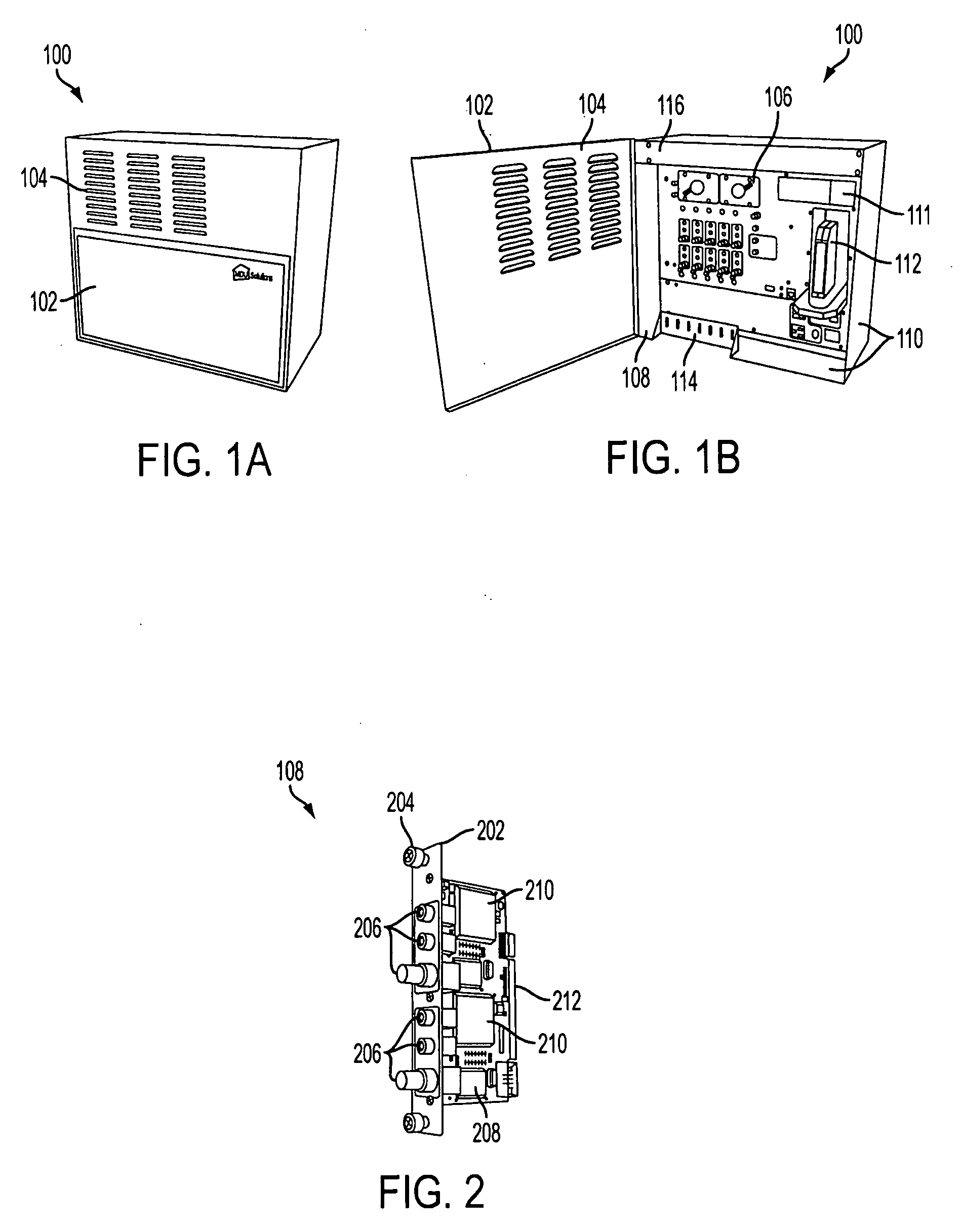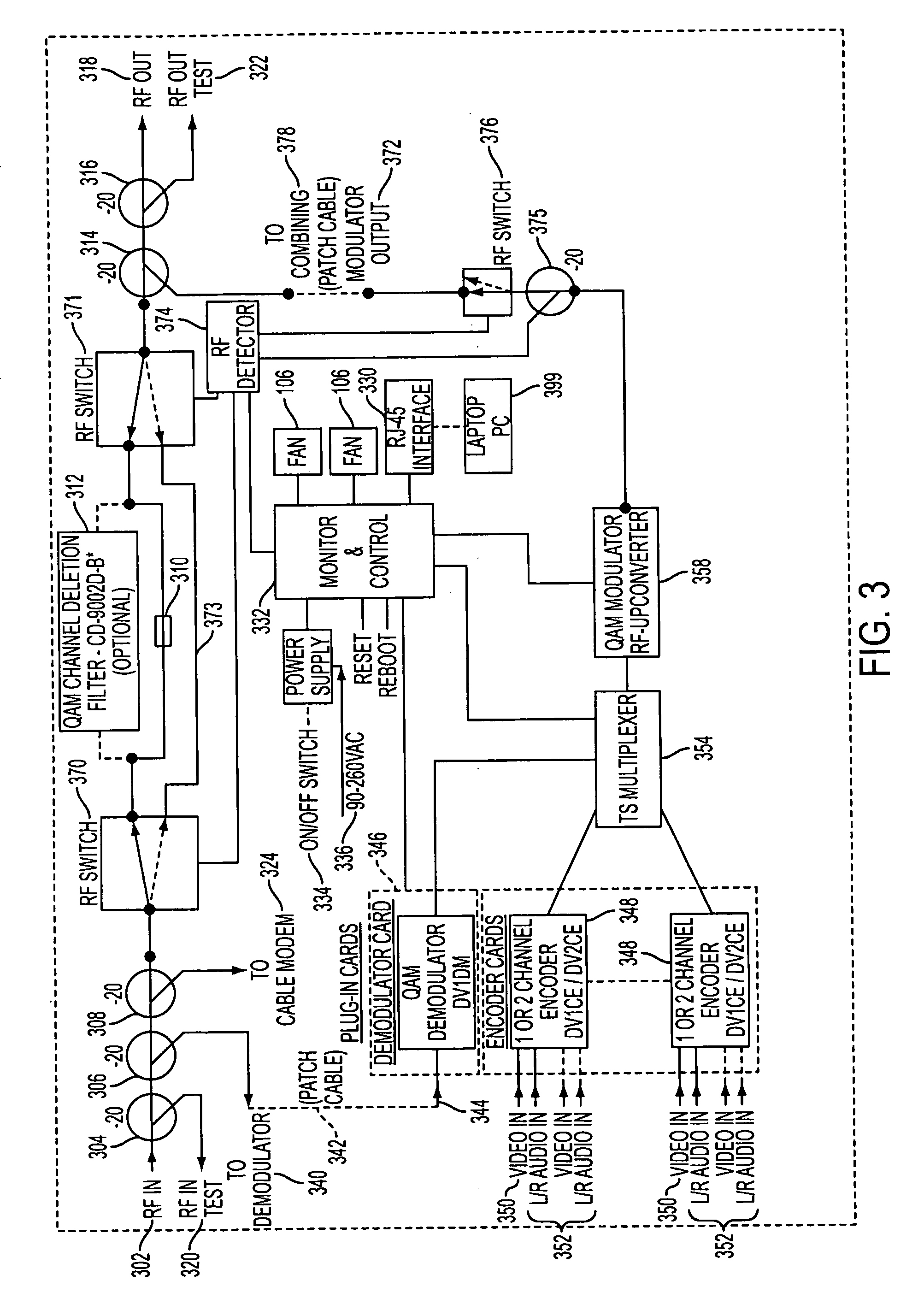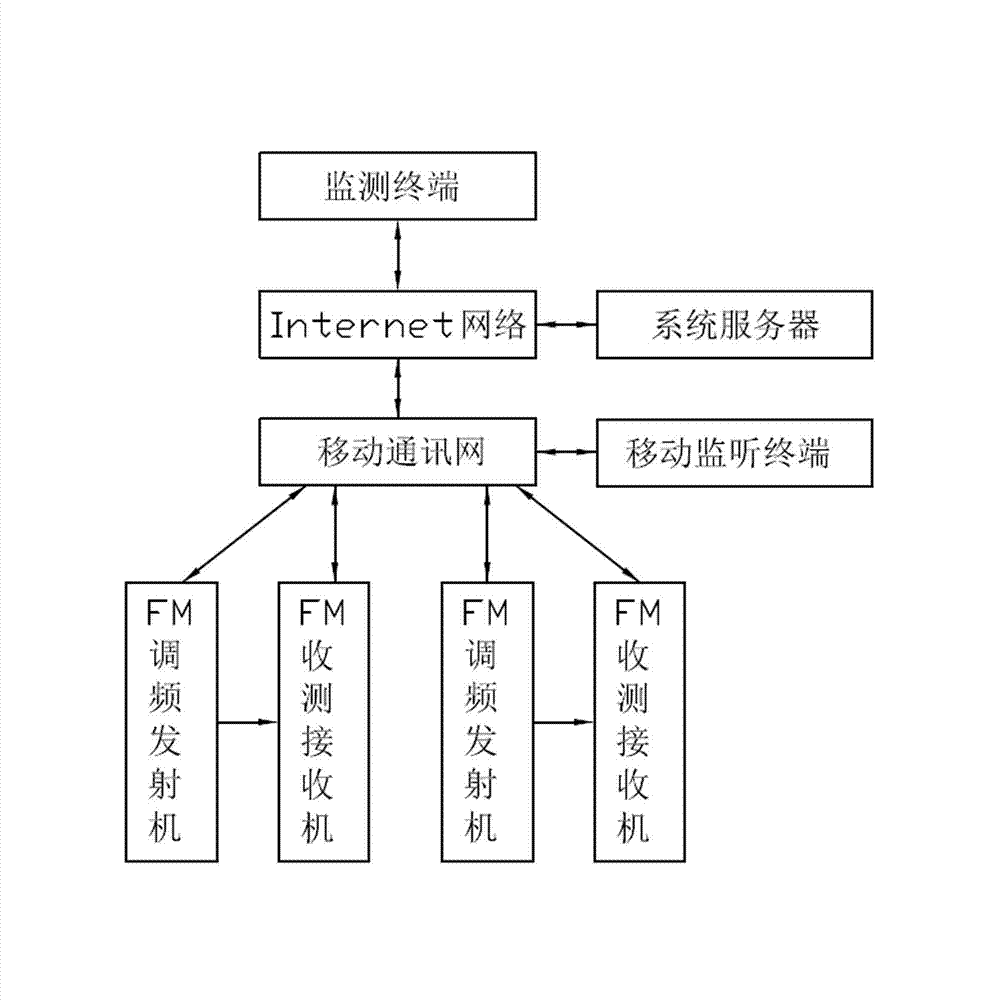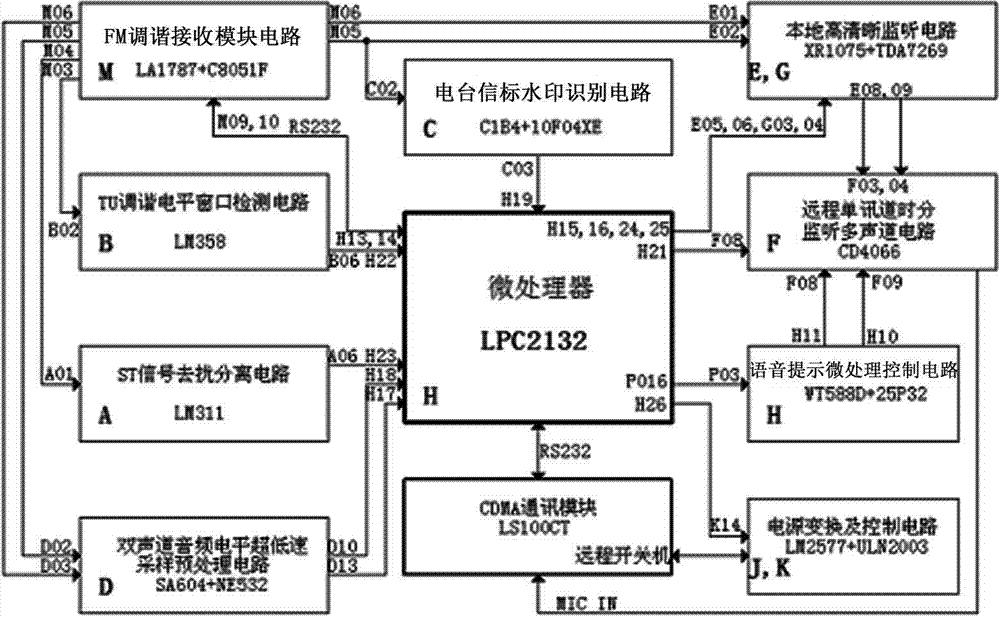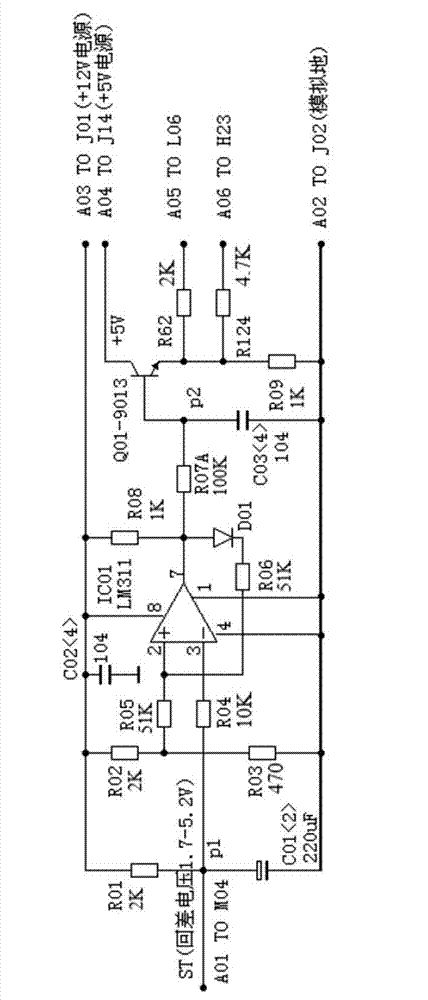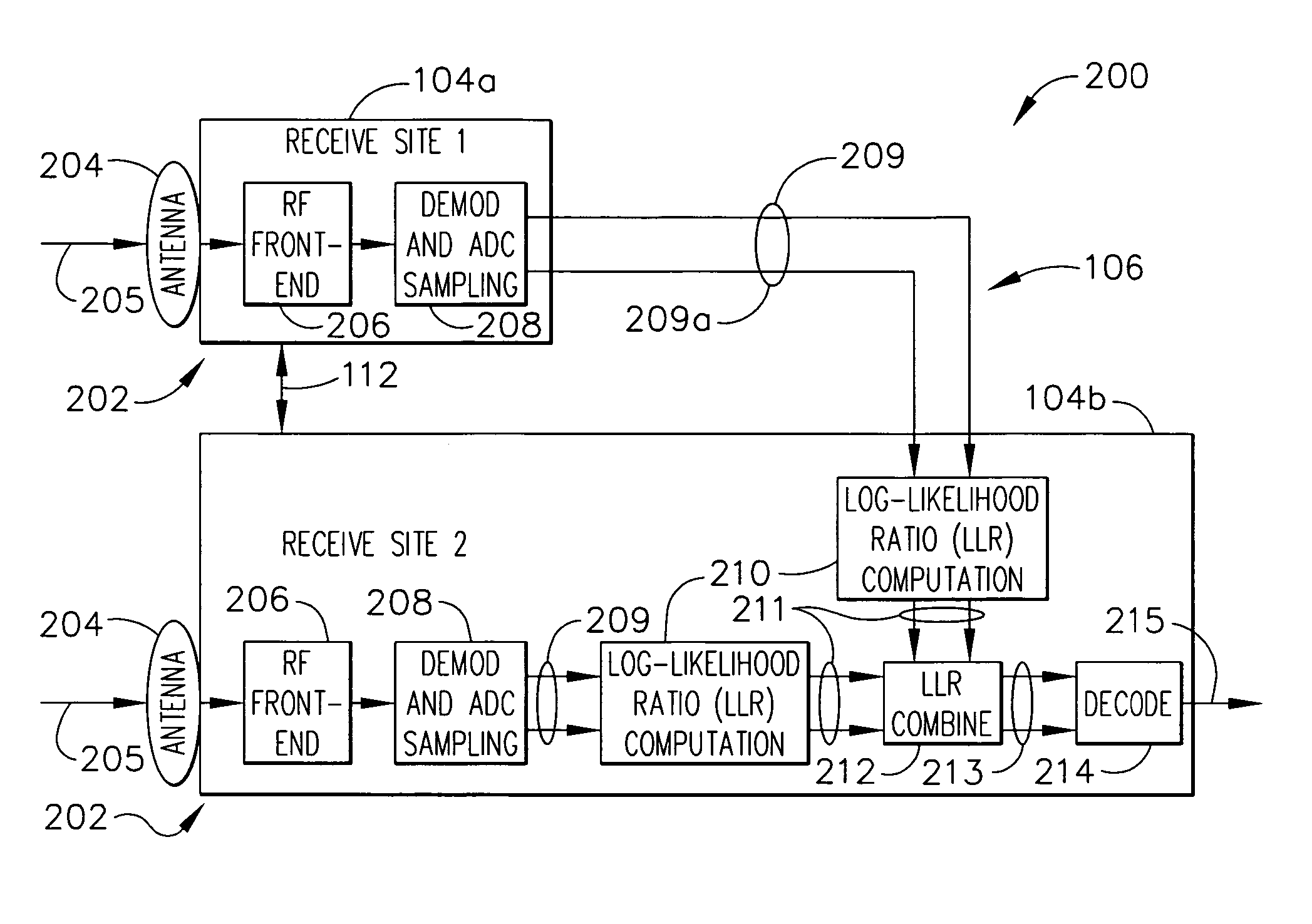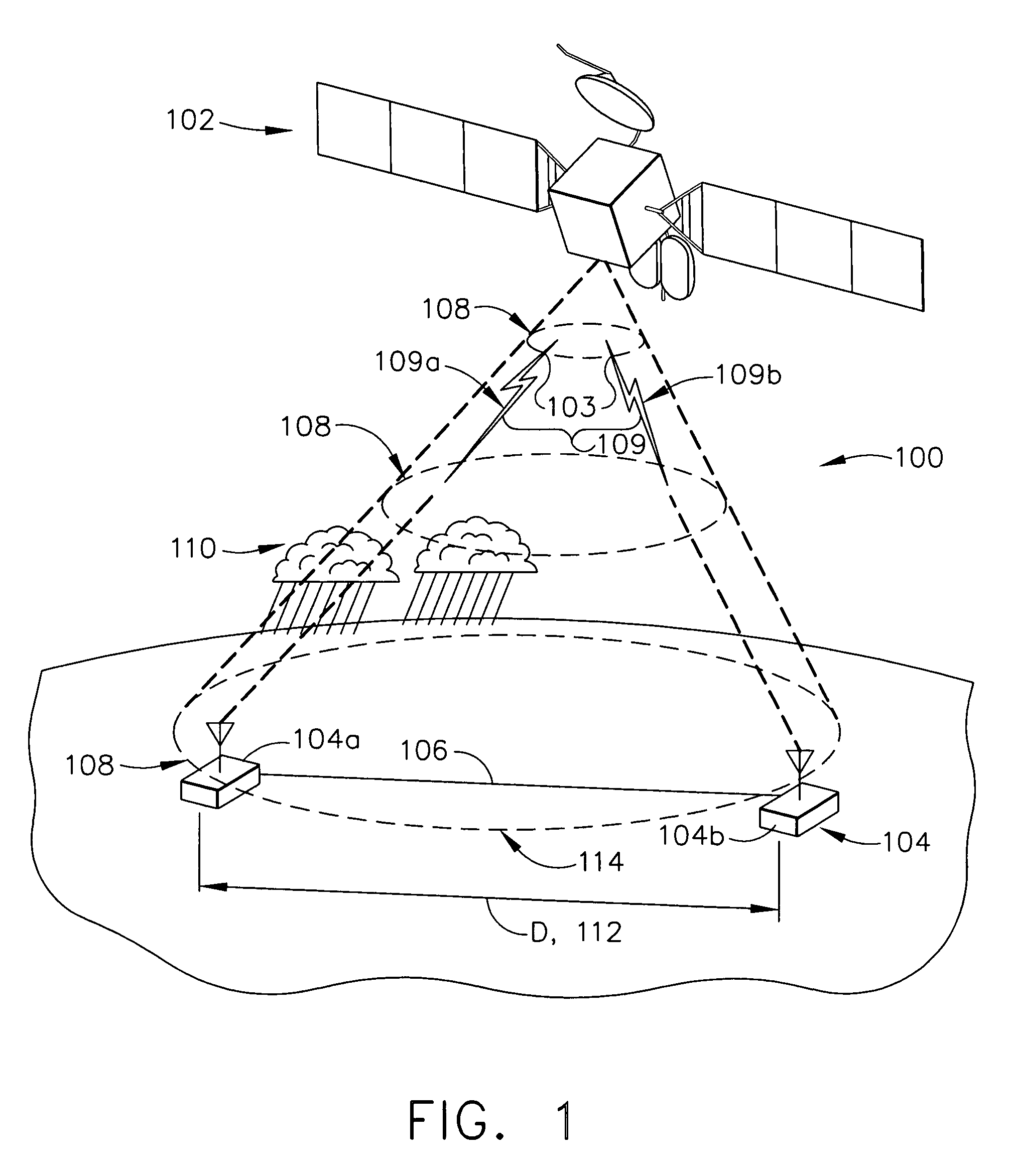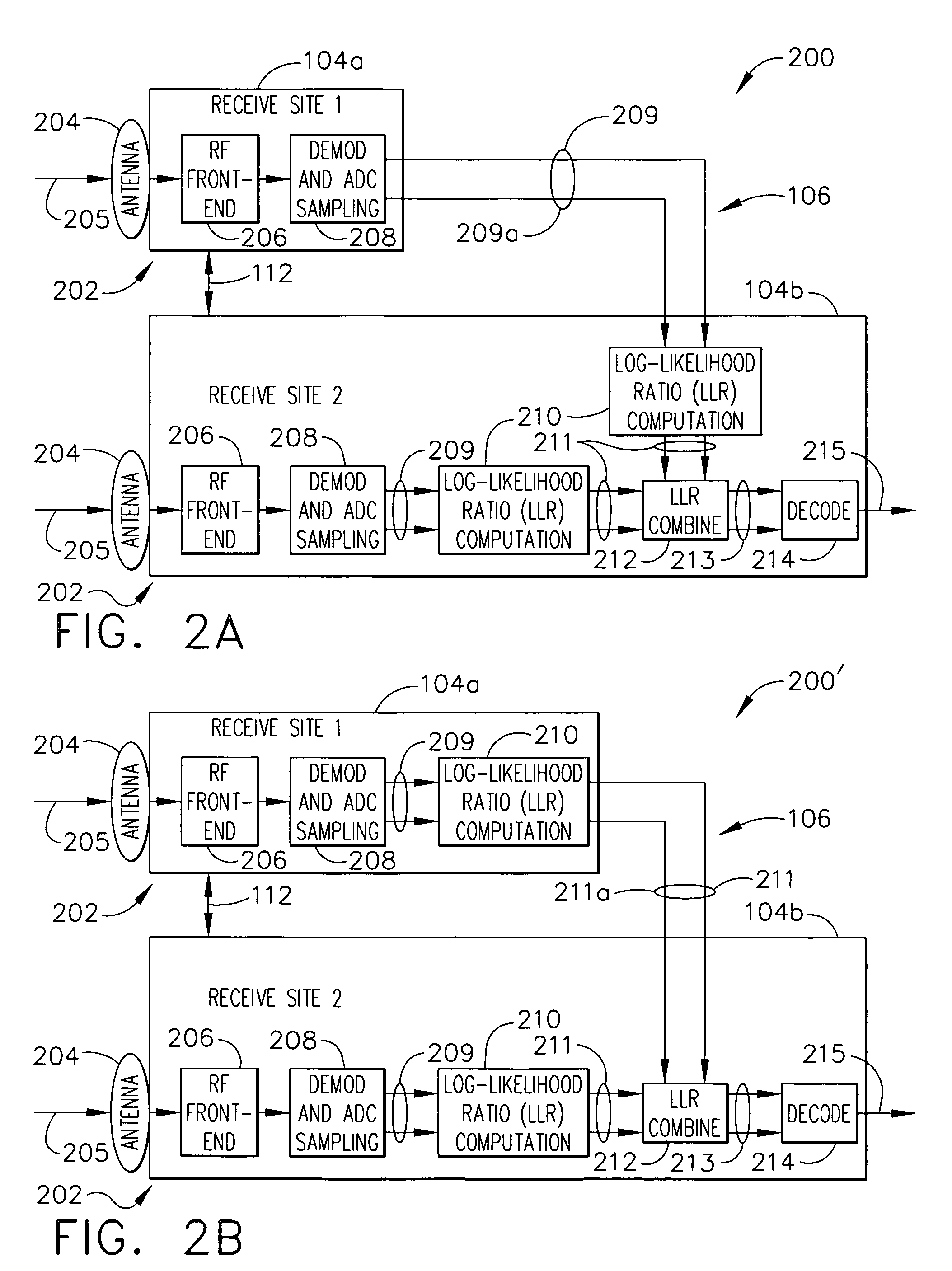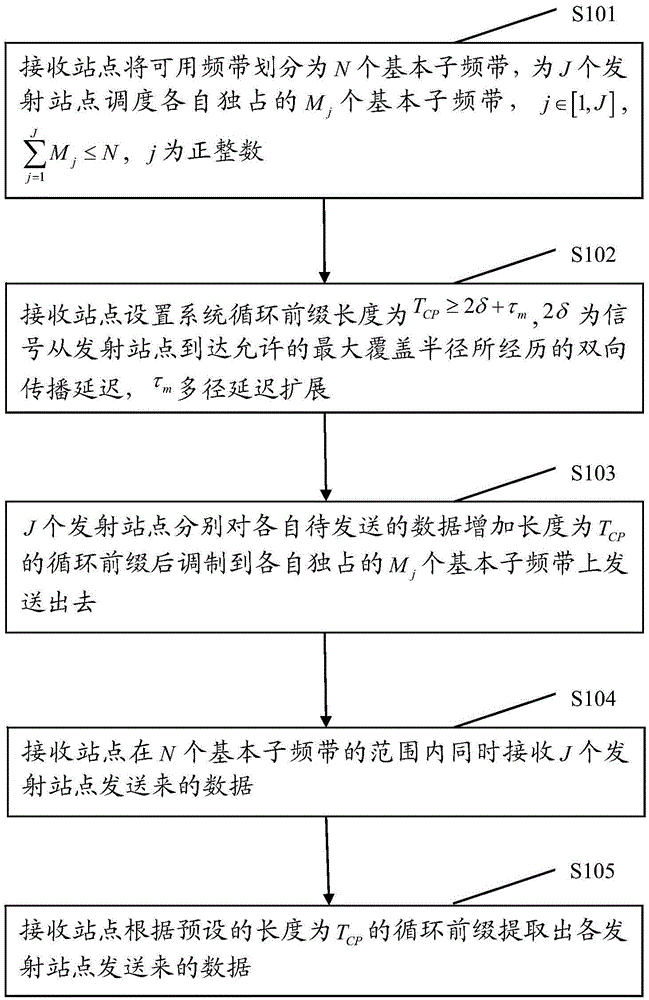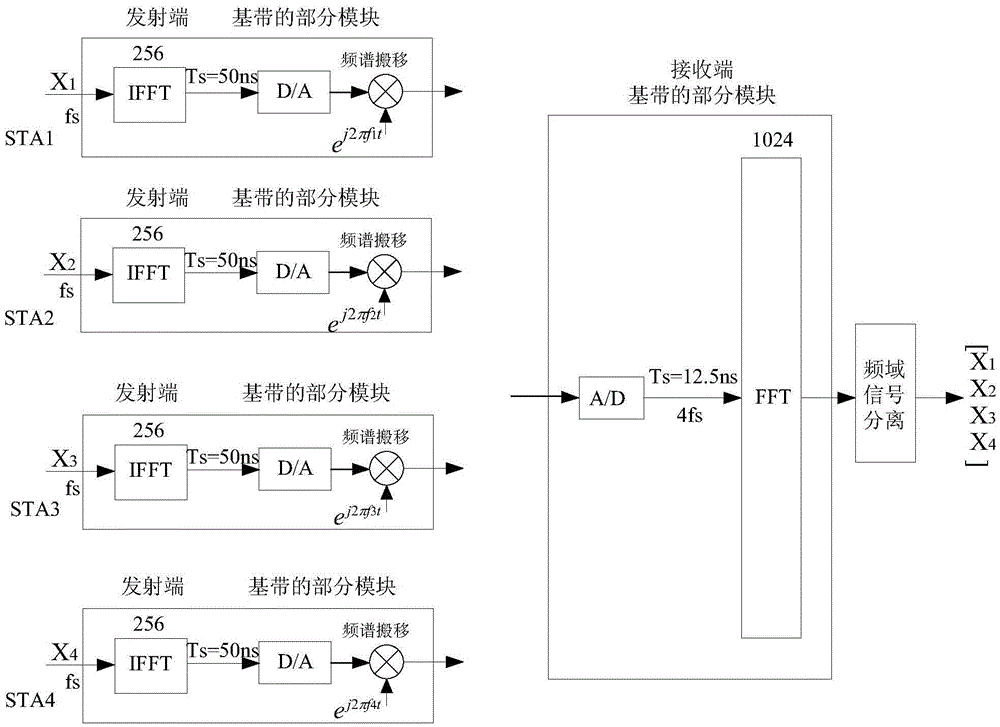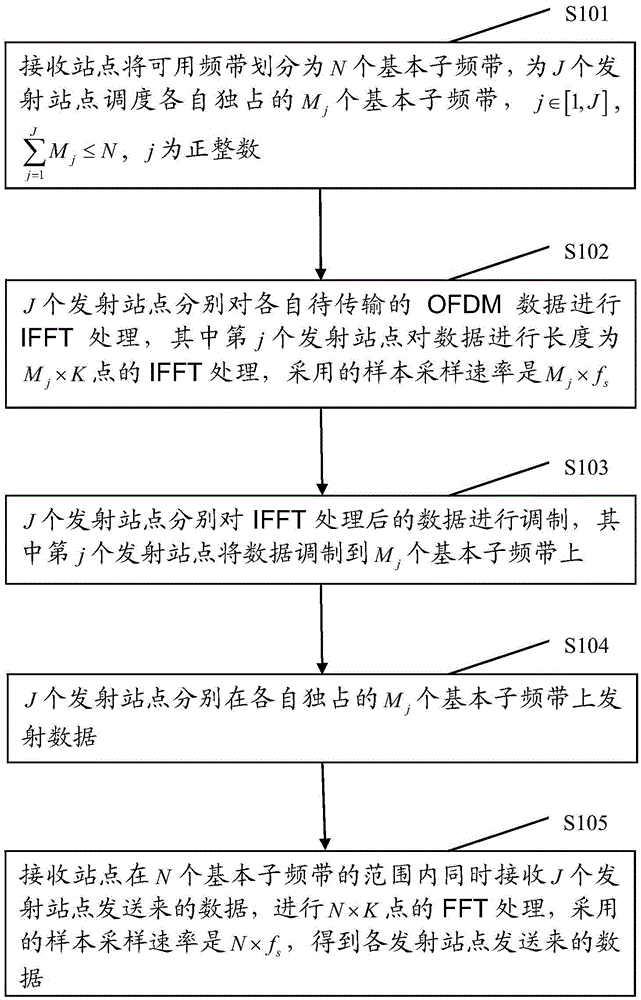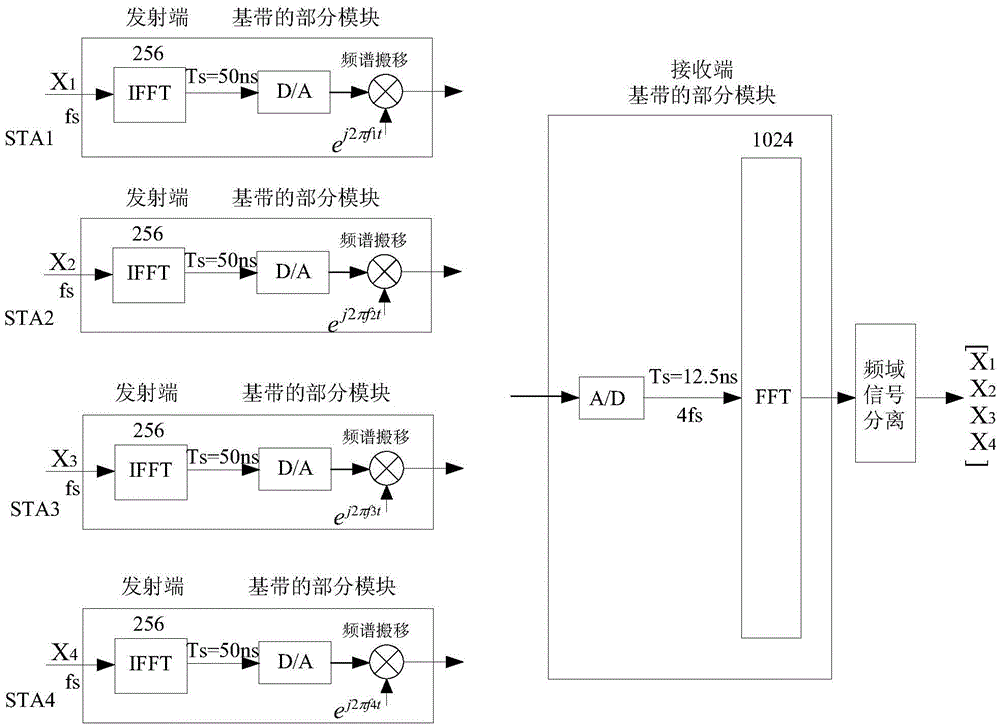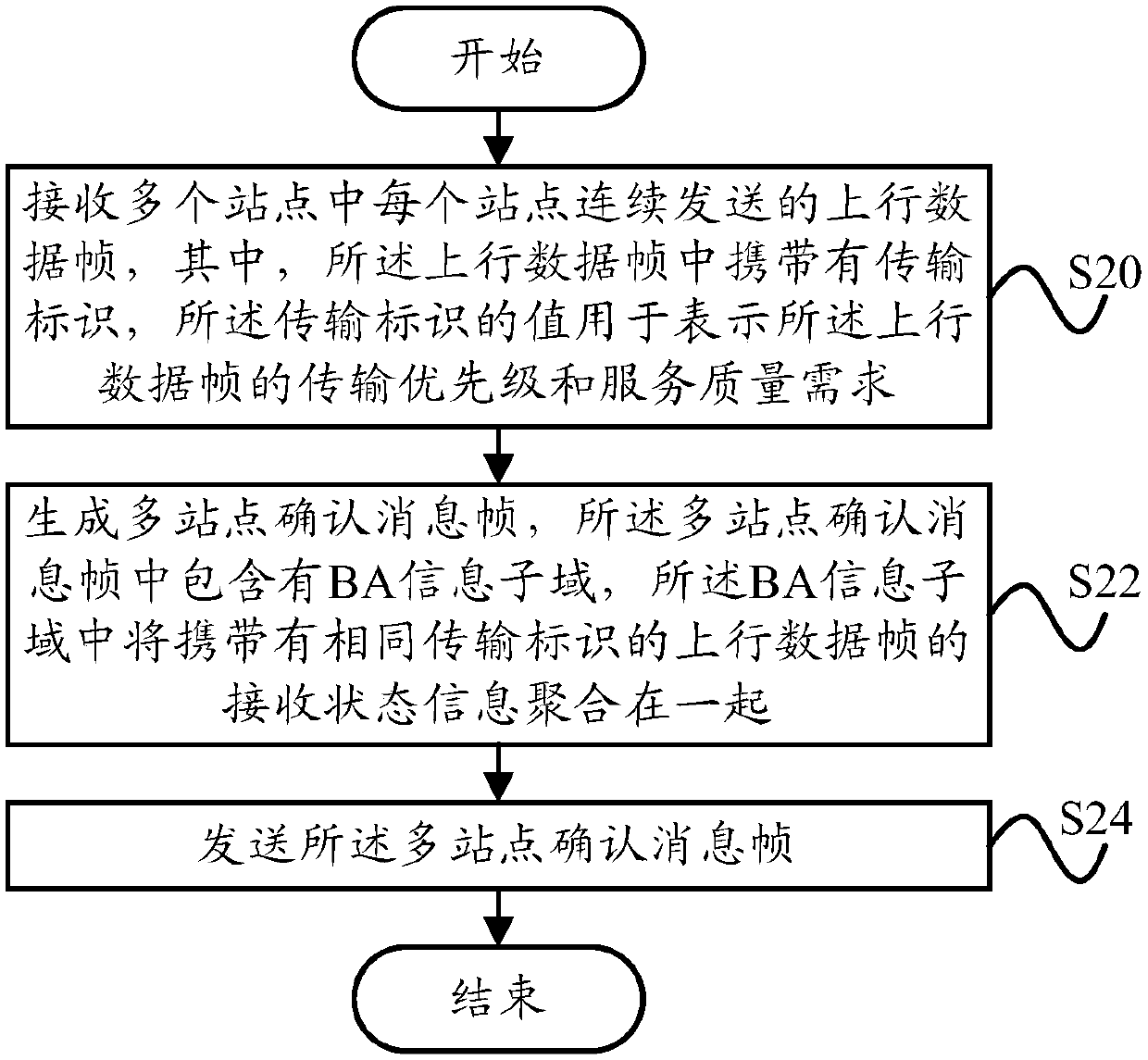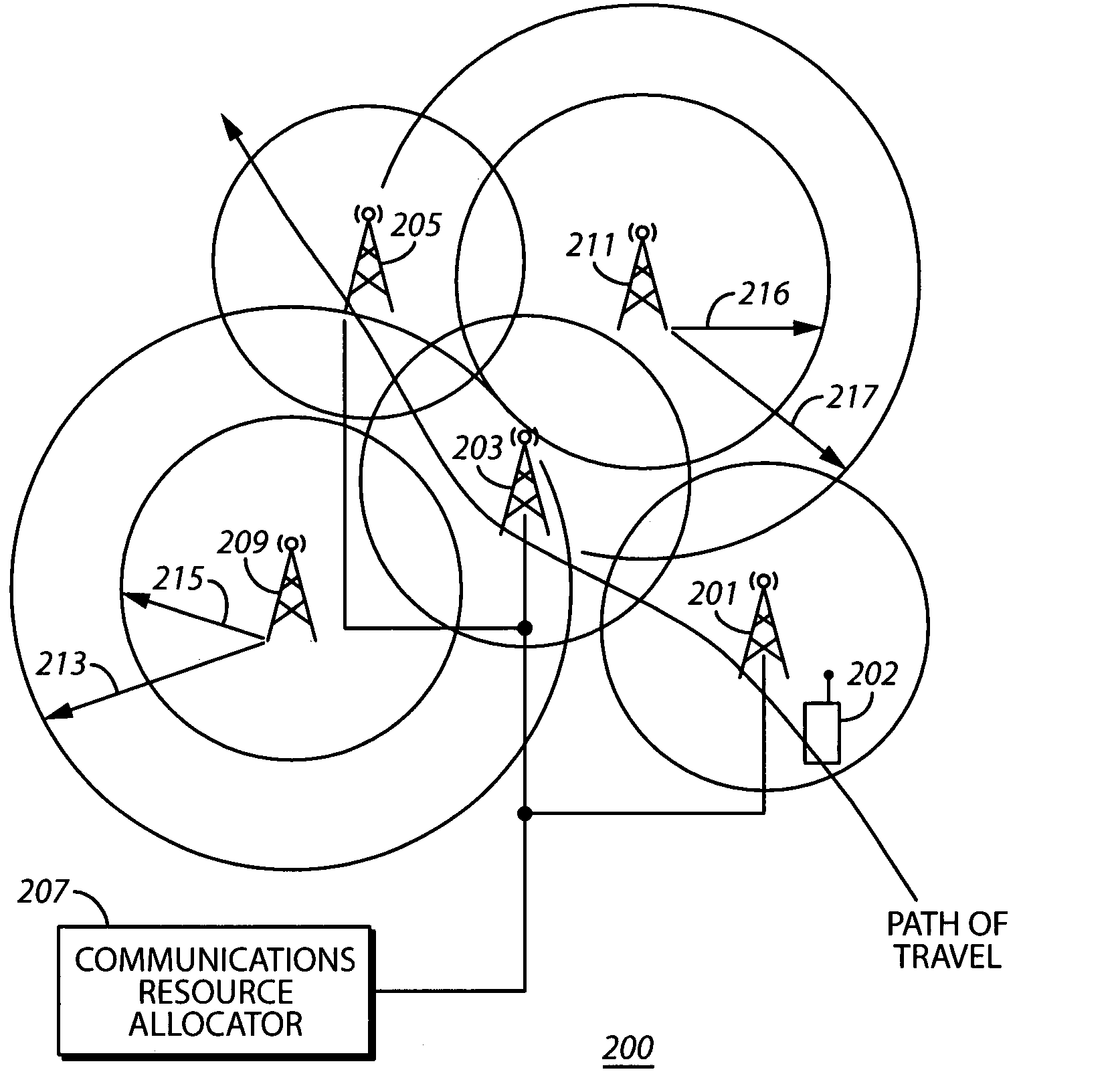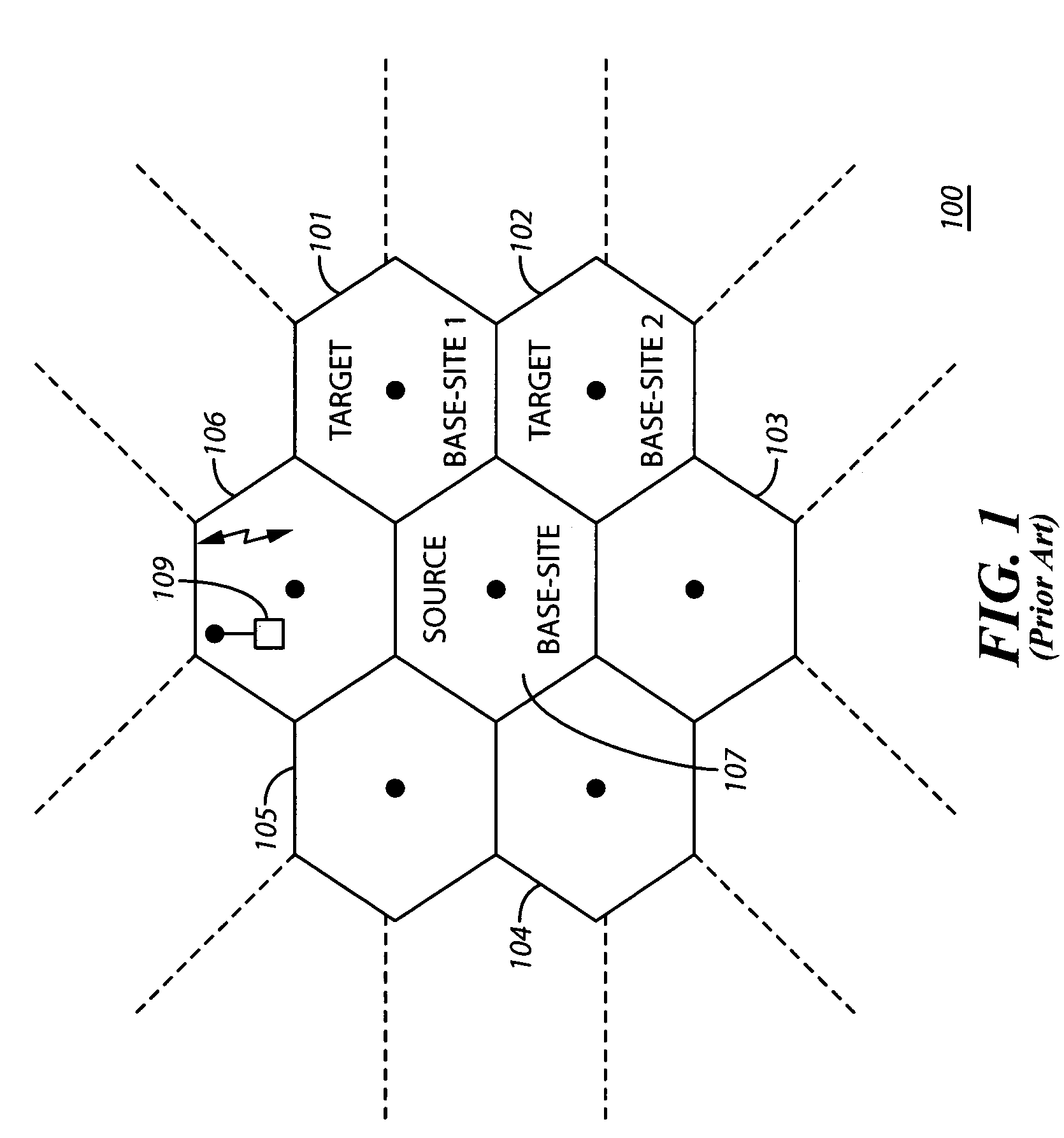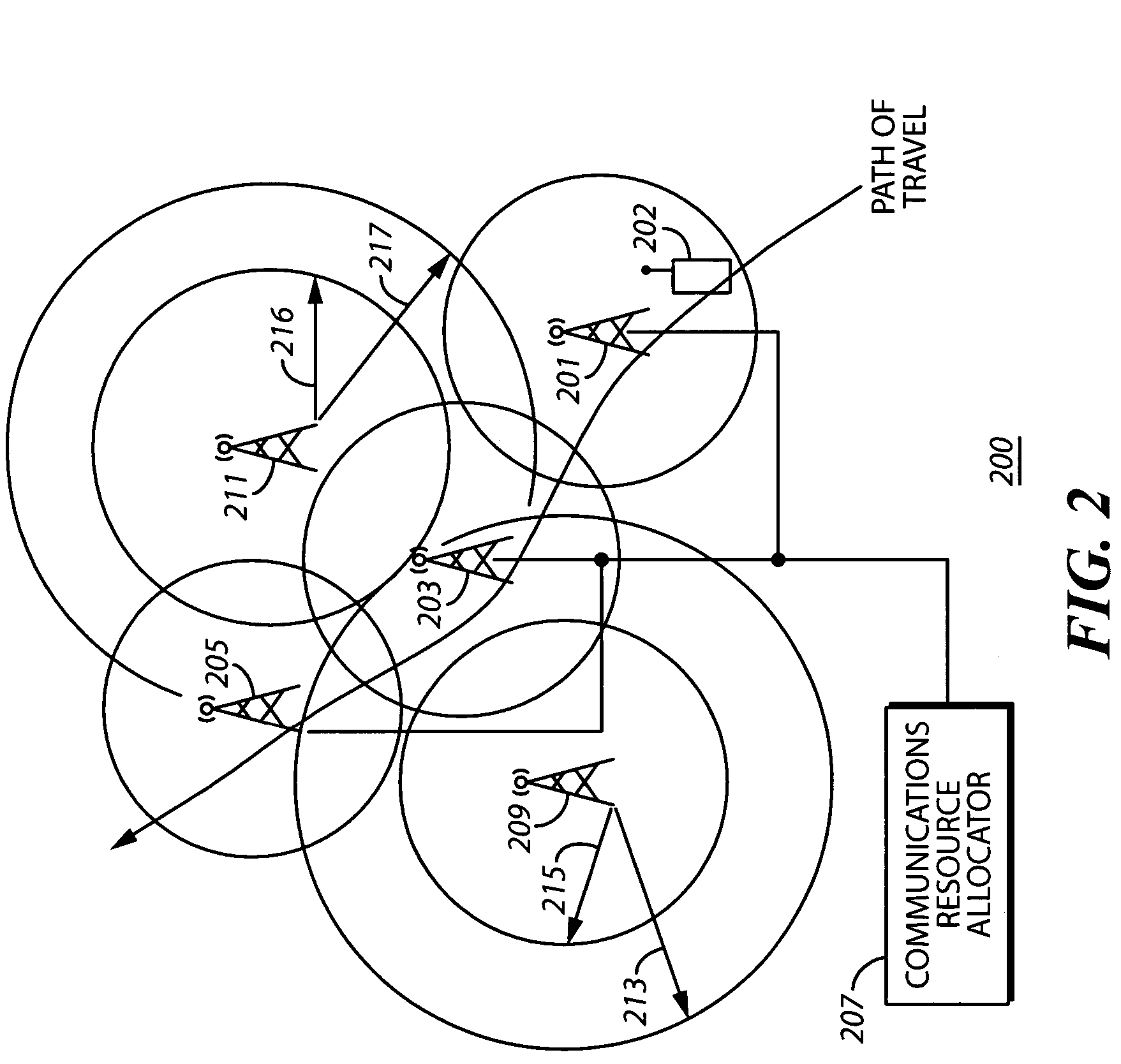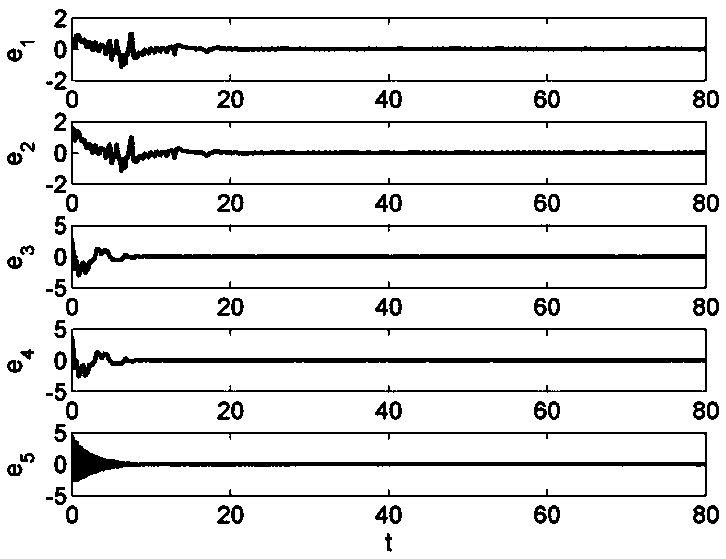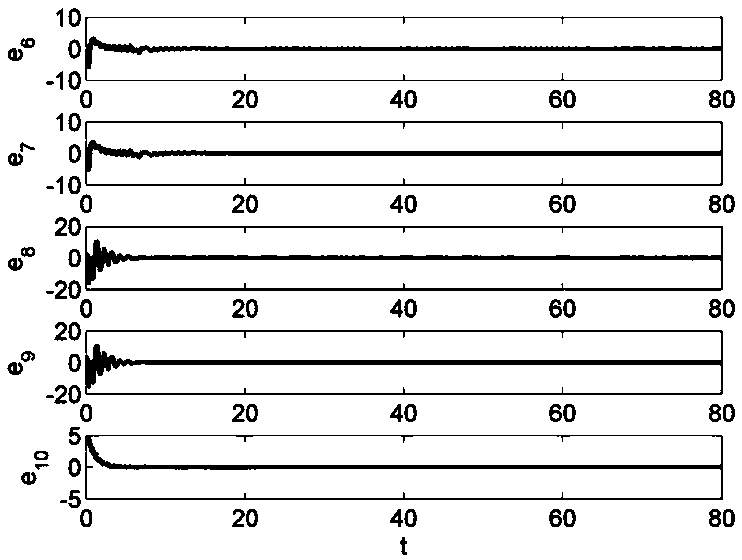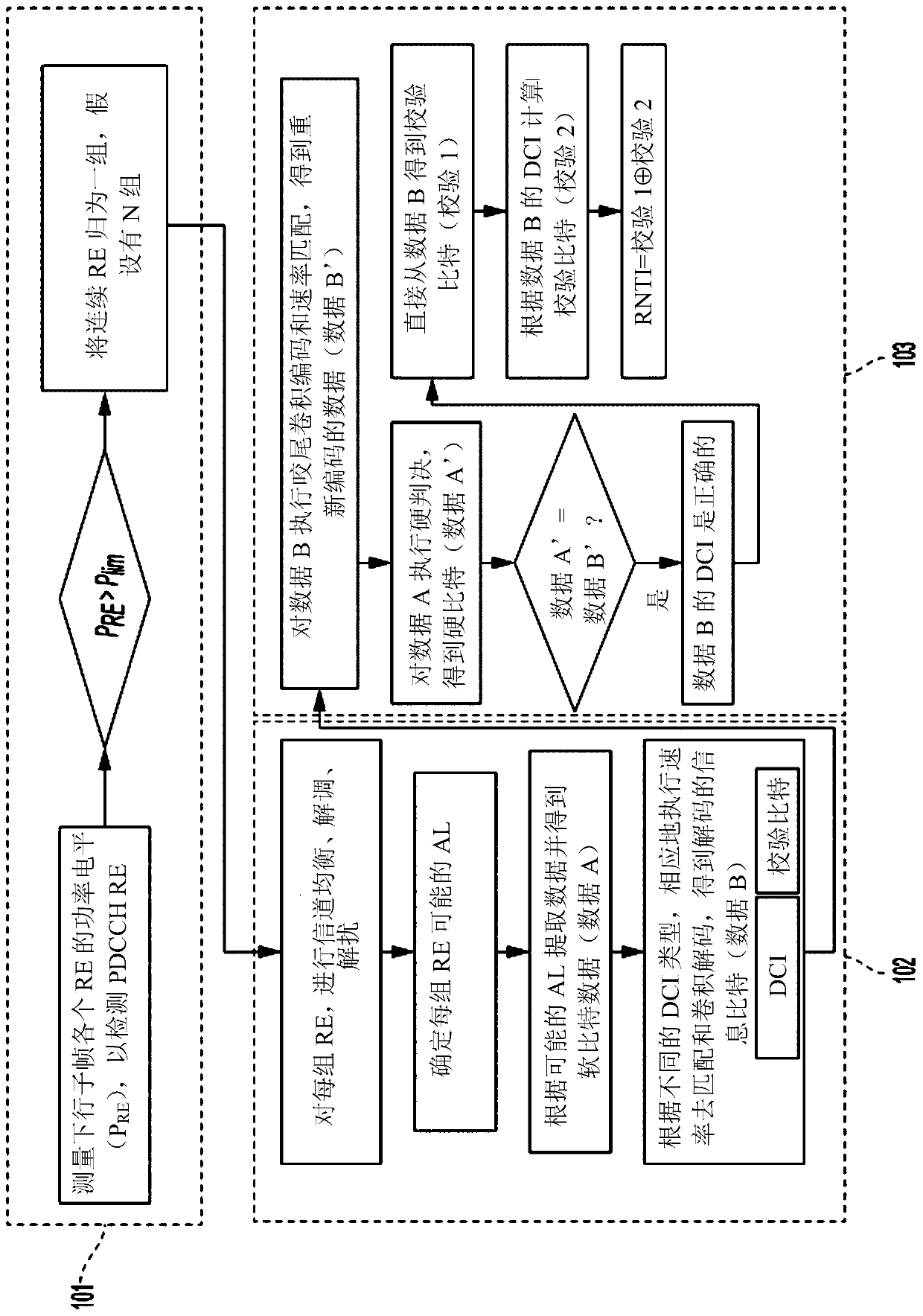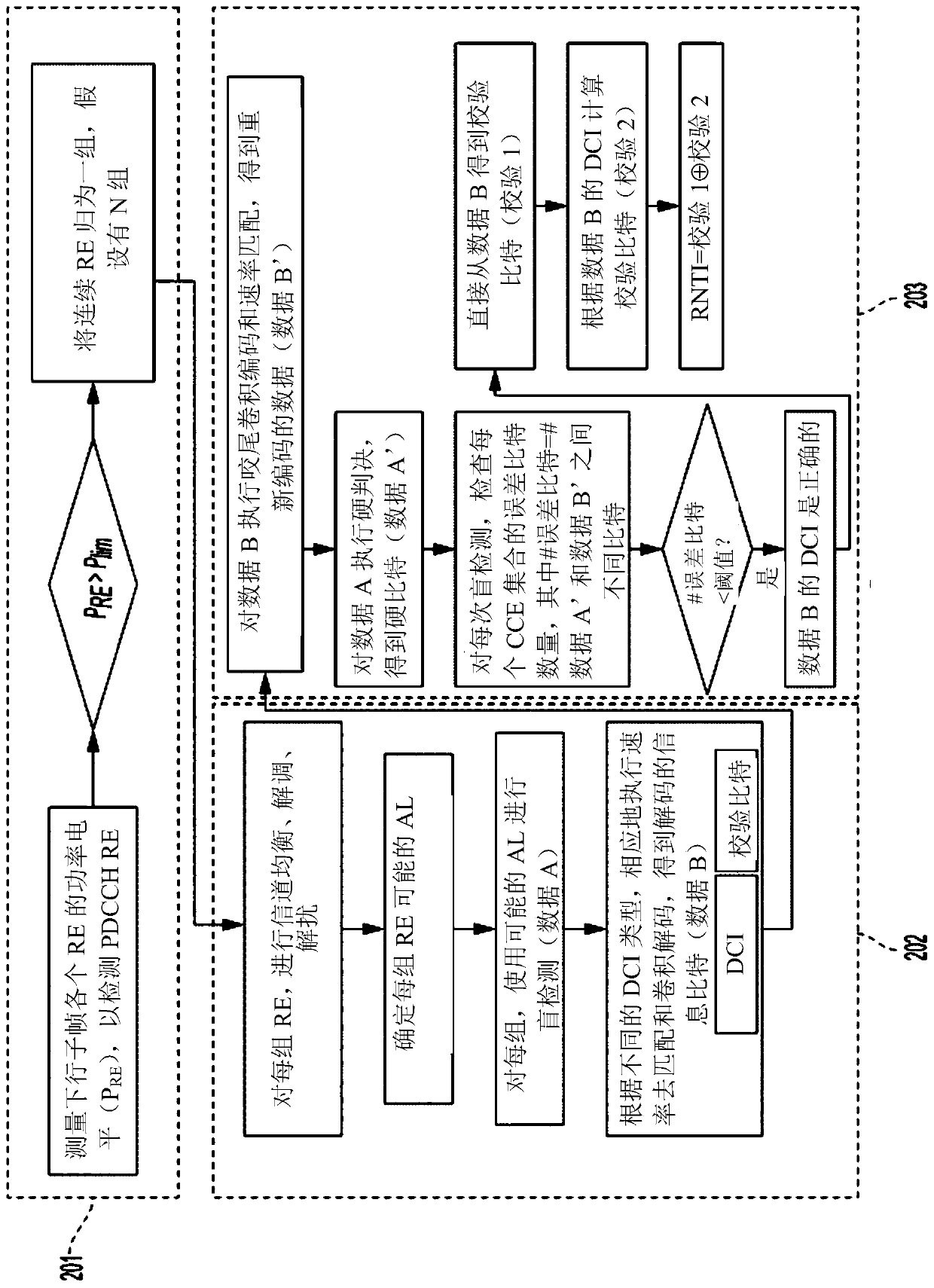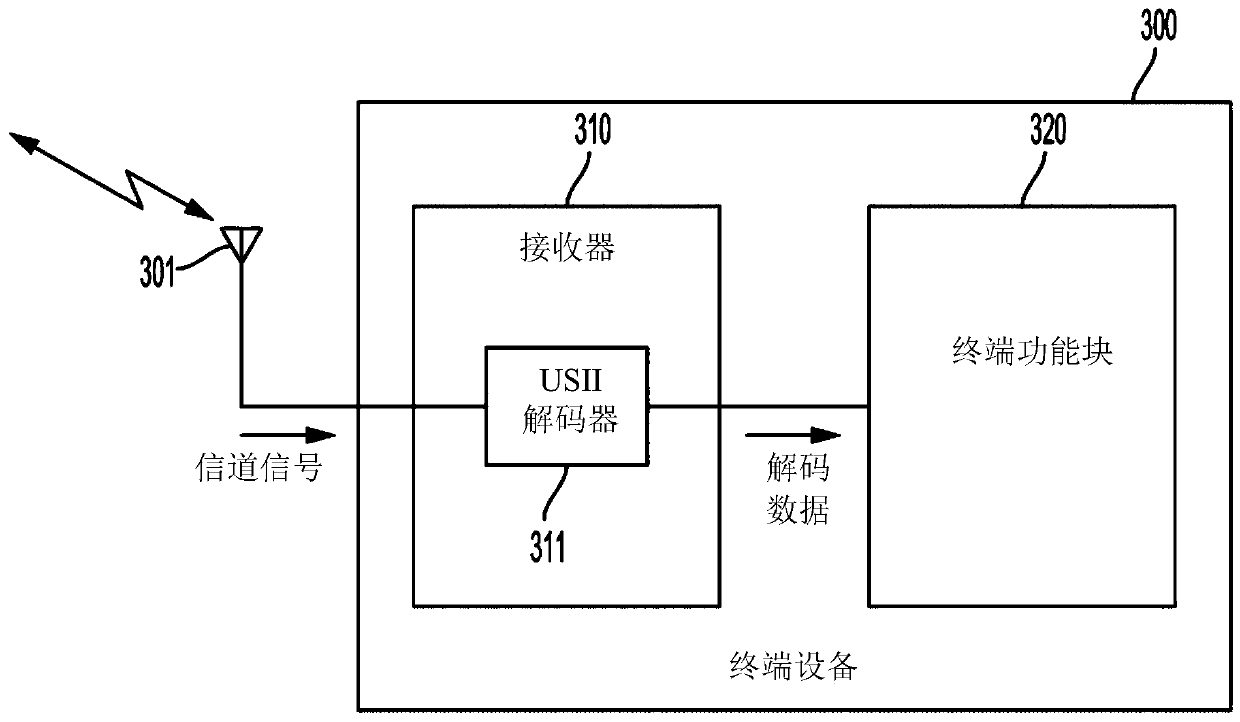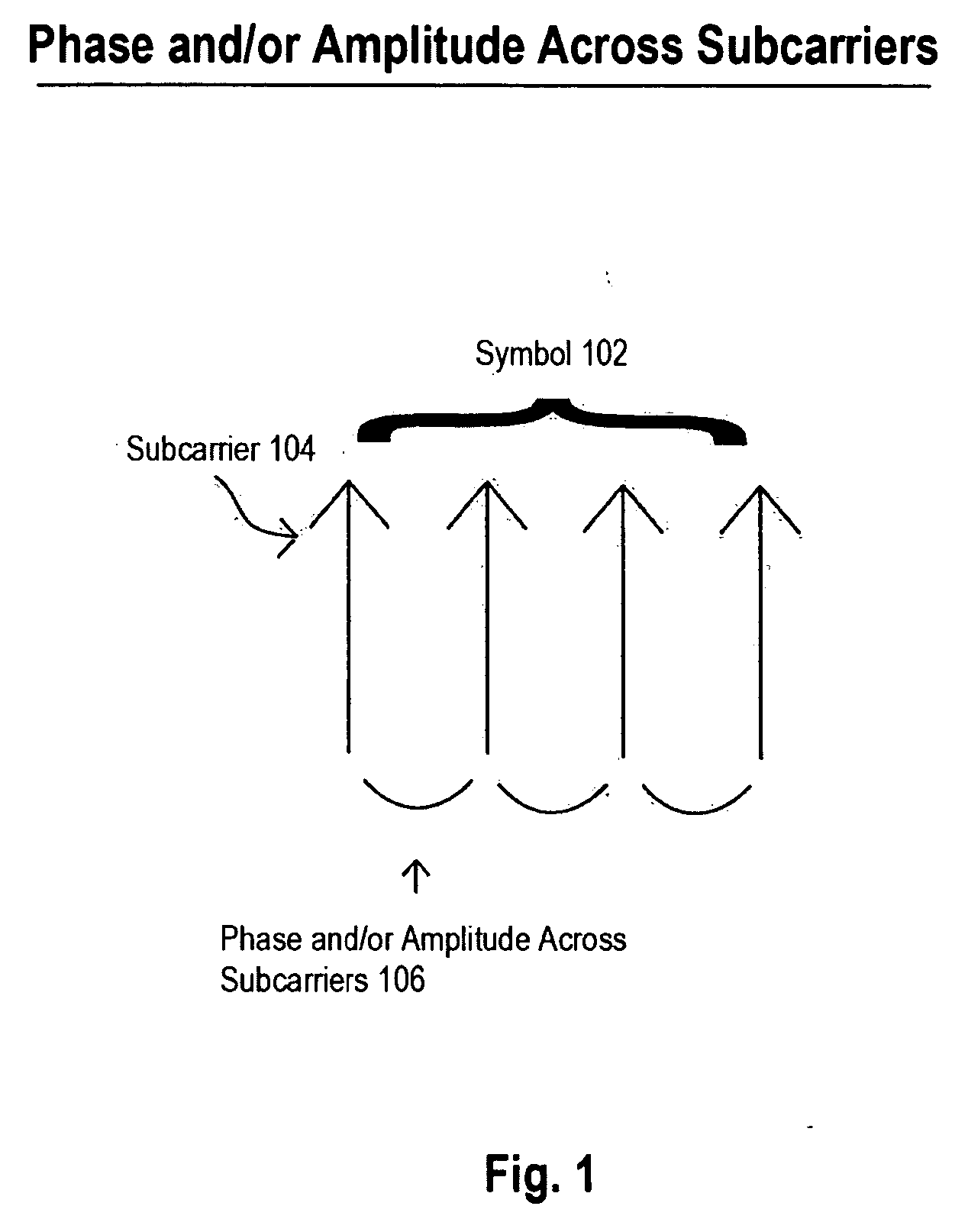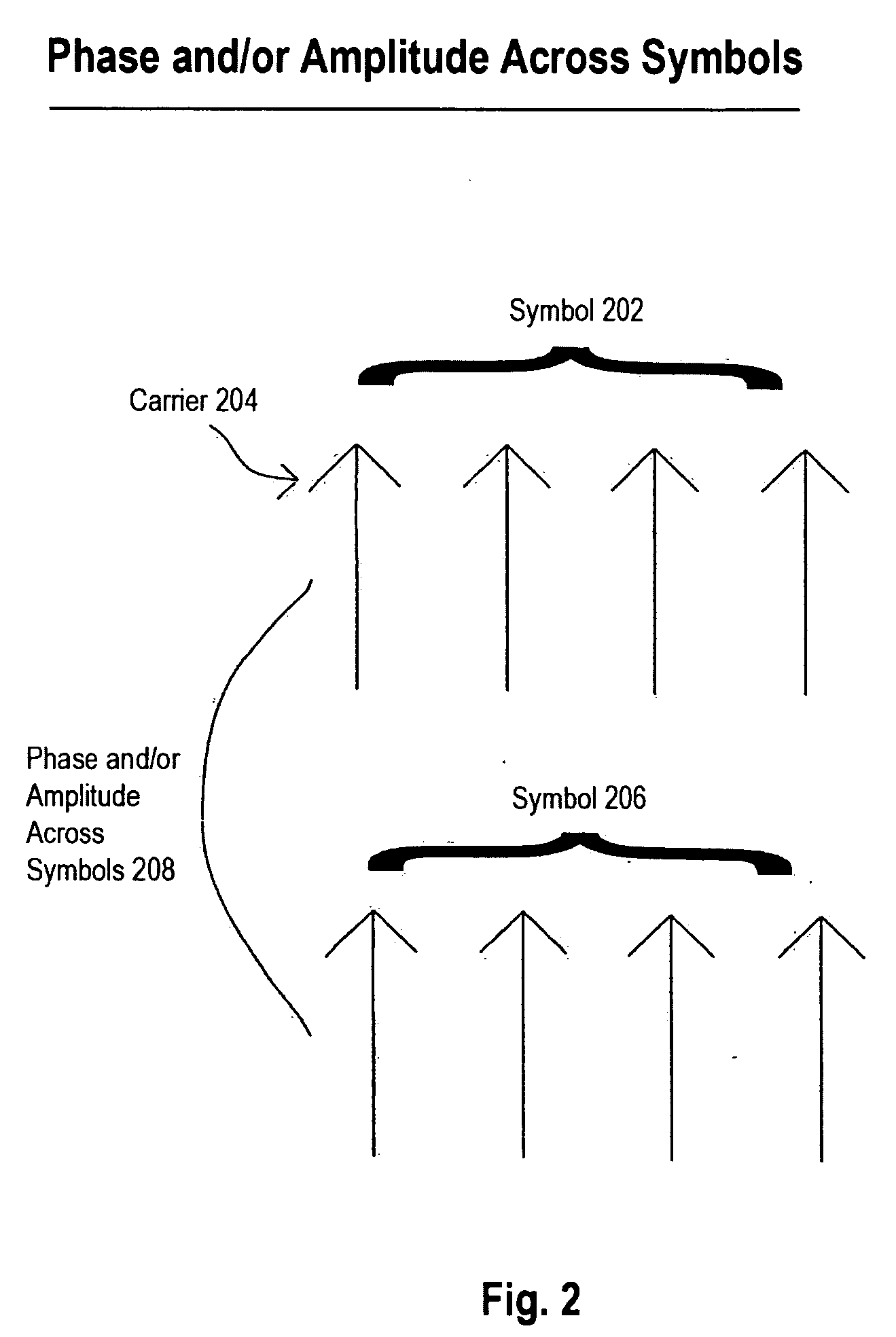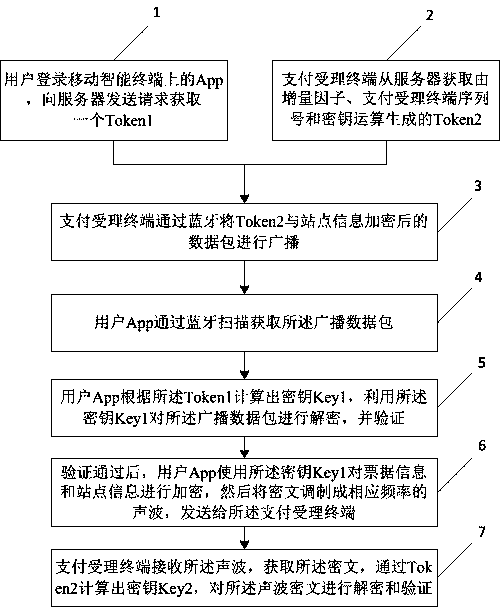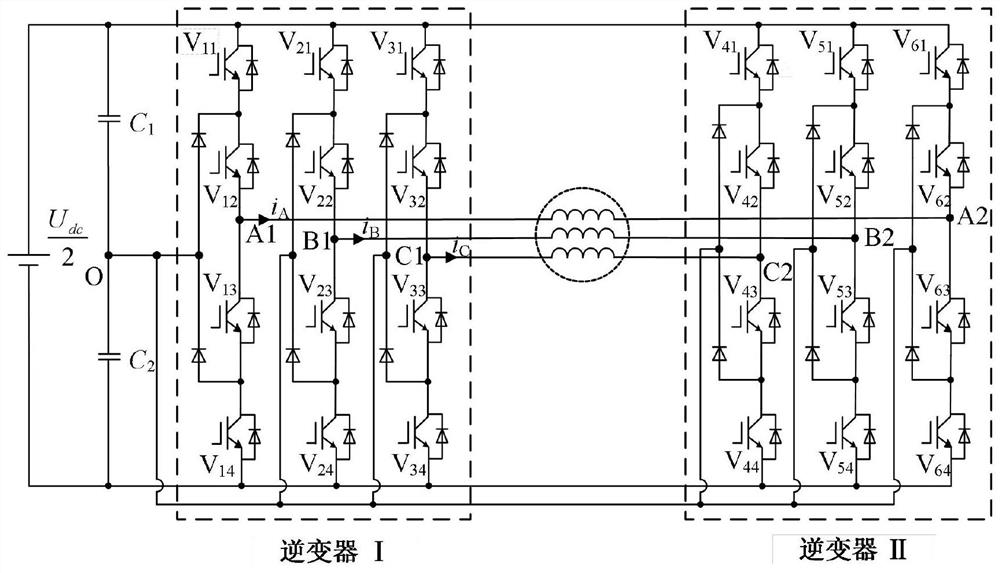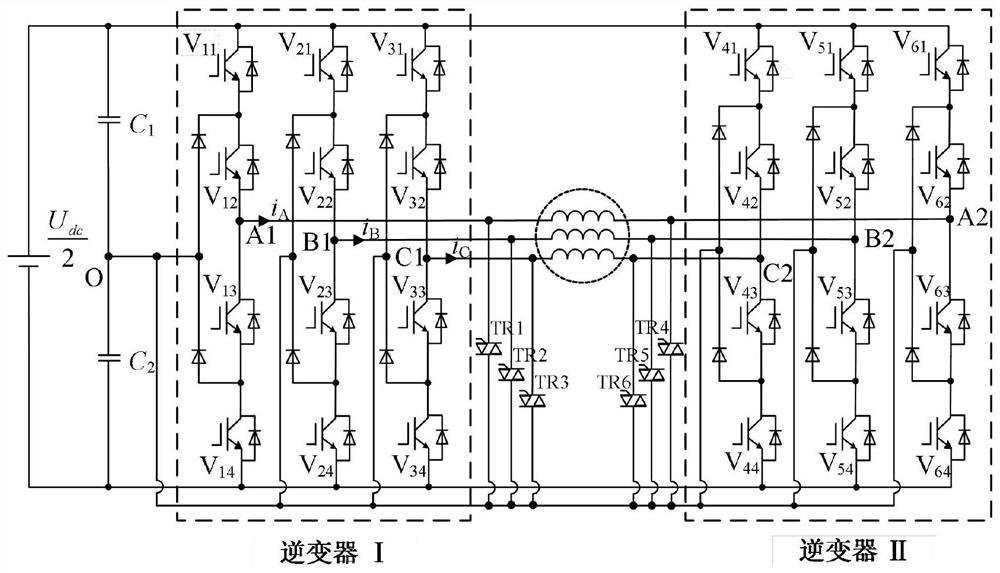Patents
Literature
Hiro is an intelligent assistant for R&D personnel, combined with Patent DNA, to facilitate innovative research.
47 results about "SITOR" patented technology
Efficacy Topic
Property
Owner
Technical Advancement
Application Domain
Technology Topic
Technology Field Word
Patent Country/Region
Patent Type
Patent Status
Application Year
Inventor
SITOR (SImplex Teletype Over Radio) is a system for transmitting text messages. Although it uses the same frequency-shift keying (FSK) modulation used by regular radioteletype (RTTY), SITOR uses error detection, redundancy, and/or retransmission to improve reliability.
Receiving method and device of MIMO (multiple-input multiple-output) communication system compatible to multiple frame formats
ActiveCN104363192AImprove reliabilityImprove compatibilityError preventionModulated-carrier systemsMultiple inputProtocol data unit
The invention discloses a receiving method and device of an MIMO (multiple-input multiple-output) communication system compatible to multiple frame formats and belongs to the technical field of wireless communication. In a millimeter-wave wireless communication system, stations working in the same basic service set are likely to receive three different types of PPDUs (physical layer protocol data units), namely a single-carrier MIMO PPDU, an OFDM (orthogonal frequency division multiplexing) MIMO PPDU and an OFDM MU-MIMO (multi-user multiple-input multiple-output) PPDU. Preambles of the three frame formats are identical to signaling fields A in format and sent in a single-carrier mode. The receiving method includes that a receiver demodulates the signaling fields A with the single-carrier mode, a receiving process is configured on the basis of the signaling fields A and signaling fields B, and the various PPDUs are demodulated. Compared with the prior art, the receiving method and device have the advantage that reliability and compatibility of the system are improved effectively.
Owner:南京易太可通信技术有限公司
Bus congestion degree analysis method based on real-time data of bus GPS (Global Position System) and IC (Integrated Circuit) cards
InactiveCN103730008AGuaranteed reliabilityGuaranteed accuracyDetection of traffic movementSpecial data processing applicationsTime informationReal-time data
The invention discloses a bus congestion degree analysis method based on real-time data of a bus GPS (Global Position System) and IC (Integrated Circuit) cards. The bus congestion degree analysis method comprises step 1, establishing a historical quality database according to data of the bus GPS and historical data of the IC cards, performing real-time data screening and recovery and mining effective data; step 2, performing data fusion and establishing a bus trip real-time information table of residents; step 3, calculating the real-time bus route passenger flow OD distribution according to a traffic model; step 4, performing partition on threshold values of the bus congestion state and performing the bus congestion degree analysis on bus stops and bus routes respectively based on the obtained real-time bus route passenger flow OD distribution. According to the bus congestion degree analysis method based on the real-time data of the bus GPS and the IC cards, the validity, reliability and accuracy of the data can be improved and the important data basis is provided for the improvement of the utilization rate of the public transport.
Owner:汪涛
Methods And Apparatus For Use In Controlling Wireless Transceiver Operation In A Mobile Communication Device
A mobile device operates for communications via a WLAN with use of a WLAN transceiver portion. During such operation, the mobile device performs one or more scanning operations with use of a WWAN transceiver portion for identifying a set of cell site identifications corresponding to a plurality of base stations of one or more WWANs available in a coverage region of the WLAN. The set of cell site identifications is stored in association with a WLAN profile of the WLAN. Subsequently, while the mobile device operates for communications in a WWAN, the. WLAN transceiver portion may be maintained in a low power state. During the WWAN operation, the mobile device performs one or more scanning operations with use of the WWAN transceiver portion for identifying a current set of cell site identifications corresponding to the currently-serving base station of the WWAN and one or more neighboring base stations. The mobile device compares cell site identifications of the current set with those in the stored set, and identifies if the number or percentage of matching cell site identifications of the current and stored sets meets or exceeds a predetermined threshold. If the predetermined threshold is met or exceeded, the mobile device enables operation of the WLAN transceiver portion for communications via the WLAN; otherwise, the mobile device refrains from enabling operation of the WLAN transceiver portion for communications via the WLAN. This technique may be performed in association with each WLAN profile stored in the mobile device.
Owner:MALIKIE INNOVATIONS LTD
Implementation method of high-speed fieldbus based on industrial Ethernet
ActiveCN101950175AData transfer speed is fastImprove data transfer efficiencyTotal factory controlProgramme total factory controlComplete dataElectricity
The invention provides an implementation method of a high-speed fieldbus based on industrial Ethernet, which comprises the following steps: (1) electrifying a fieldbus system, and carrying out initialization setting; carrying out the step (3) if the initialization setting is successful, otherwise, carrying out fault treatment of the step (2); (2) carrying out the fault treatment; (3) carrying out data communication, and returning to the step (2) for carrying out the fault treatment if a fault emerges; entering into the idle state if the cycle further has remaining time after completing data transmission of all station points, waiting for the next data sending or receiving request, returning to the step (2) for carrying out the fault treatment if the fault emerges during the waiting process, otherwise, carrying out the step (4); and (4) finishing the communication. The invention further provides the high-speed fieldbus system based on the industrial Ethernet for implementing the method, that is a GSK-Link high-speed fieldbus system. Slave stations can mutually carry out the data communication, thereby greatly improving the data transmission speed and the efficiency.
Owner:GSK CNC EQUIP
System and method for generating signal waveforms in a CDMA cellular telephone system
InactiveUS7003021B2Increase capacityImprove system reliabilityPower managementTransmission control/equalisingPhase shiftedCell site
A system and method for communicating information signals using spread spectrum communication techniques. PN sequences are constructed that provide orthogonality between the users so that mutual interference will be reduced, allowing higher capacity and better link performance. With orthogonal PN codes, the cross-correlation is zero over a predetermined time interval, resulting in no interference between the orthogonal codes, provided only that the code time frames are time aligned with each other. In an exemplary embodiment, signals are communicated between a cell-site and mobile units using direct sequence spread spectrum communication signals. In the cell-to-mobile link, pilot, sync, paging and voice channels are defined. Information communicated on the cell-to-mobile link channels are, in general, encoded, interleaved, bi-phase shift key (BPSK) modulated with orthogonal covering of each BPSK symbol along with quadrature phase shift key (QPSK) spreading of the covered symbols. In the mobile-to-cell link, access and voice channels are defined. Information communicated on the mobile-to-cell link channels are, in general, encoded, interleaved, orthogonal signaling along with QPSK spreading.
Owner:QUALCOMM INC
Inbound messaging transmission device and system for railcar asset tracking using high frequency signaling
InactiveUS6108524ASpatial transmit diversityFrequency diversityTransmission protocolDiversity scheme
An asymmetrical (inbound only) high frequency communication system for asset tracking is made up of a message preparation and transmitter subsystem, a receiving subsystem, and a system monitoring subsystem. A transmission channel is selected randomly or pseudorandomly. Prior to each transmission, the transmitter performs a radiometric measurement of a selected channel. If the measurement exceeds a predetermined threshold, transmission in the selected channel is canceled and another channel is selected. The transmission protocol achieves frequency diversity by sequentially transmitting a message on a plurality of different channels. The receiving subsystem has a plurality of spatially separated receiver sites at various geographical points, thereby providing spatial diversity. The receiver sites are linked to a common processing center. Onboard the asset and collocated with the transmitter, a system monitoring subsystem records and stores parameters related to the message preparation and transmitter subsystem. These parameters are useful in assessing efficacy of transmission frequency planning algorithms and the transmission protocol.
Owner:GENERAL ELECTRIC CO
Apparatus and method for symbol alignment in a multi-point OFDM/DMT digital communications system
InactiveUS20060034166A1Multi-frequency code systemsOrthogonal multiplexCommunications systemCyclic prefix
A multi-point communications system that is set forth herein. The communication system comprises a head end unit disposed at a primary site and a plurality of receivers disposed at remote sites. The head end unit includes a transmitter for transmitting OFDM / DMT symbols over a predetermined number of bins across a transmission medium. The OFDM / DMT symbols are transmitted in periodically occurring formatted symbol frames. The cyclic prefix includes a predetermined periodic signal superimposed thereon. The receivers receive the OFDM / DMT symbols over a subset of the predetermined number of bins from the transmission medium and use the superimposed signals to attain symbol alignment.
Owner:MARCHOK DANIEL J +3
Method and system for signal degrade (SD) information passthrough in T-Mux systems
InactiveUS6885632B1Simple methodError detection/prevention using signal quality detectorTransmission systemsHigh rateEngineering
Signal degrade (SD) propagation is provided for transparent mux / demux (T-Mux) systems to enable timely and more accurate performance monitoring and protection capabilities. A transparent node comprising two T-Muxs connected via a high-rate span between first and second sites common to a plurality of trib telecommunication systems provides continuity to all tribs and maintains the lower bit rate systems through the span. SD indicia, such as bit errors, on respective incoming trib signals at a T-Mux are accumulated over a relatively short fixed period. The SD information is encoded in a message byte and transported, alternately with a synchronization message, to the companion T-Mux in otherwise available signaling overhead. Upon receipt of the T-Mux message, for each trib signal, the downstream T-Mux generates a corresponding signal degrade condition on outgoing trib signals.
Owner:CIENA
Method for mitigating intermodulation interference using channel power estimation and attenuation in a two-way radio communications system
ActiveUS20060068800A1Improved “ functional ” immunityEnhanced site selectionRadio/inductive link selection arrangementsRadio transmissionUltrasound attenuationCommunications system
A method for maximizing intermodulation interference protection during a handoff between radio cell sites (300) includes scanning a plurality of radio channels (302) and measuring the signal power (307, 315) for at least one of the radio channels. One or more receiver attenuators (313) are then set based on the detection of intermodulation (IM) interference of the measured channel. The attenuators are then scaled (311) based on the degree of IM interference. If the attenuators cannot mitigate this interference below some predetermined level, the radio channel is changed (321) and the process begins again to ensure a high quality of communication with a cell site.
Owner:MOTOROLA SOLUTIONS INC
Radio over fiber link apparatus of time division duplex scheme
InactiveUS8041222B2Minimizing deteriorationPulse transformerWavelength-division multiplex systemsRadio equipmentRadio over fiber
Owner:SAMSUNG ELECTRONICS CO LTD
Method of transmitting calls in a cellular type telecommunications system using adjacent carrier frequency bands
InactiveUS20030096630A1Increase radiusLarge capacityFrequency-division multiplexRadio/inductive link selection arrangementsAudio power amplifierPeak value
The invention relates to a method of transmitting calls in a cellular type telecommunications system using a plurality adjacent carrier frequency bands and in which a first cell or a first site uses only a fraction of said frequency bands, the transmitted signals being subjected to peak clipping prior to application to an amplifier of a transmitter system in order to optimize the efficiency of the amplifier. Prior to being applied to the input of the amplifier, the signals (32) to be transmitted for the first cell (or first site) are subjected to filtering (28) so that the power density of the peak-clipping noise is not eliminated in adjacent frequency bands (f2, f3) that are unused by said first cell.
Owner:EVOLIUM +1
Method and apparatus for pre-compensation of an XDSL modem
InactiveUS6963603B1Minimizing frequency distortionMinimize distortionMultiple-port networksPowerline communication systemsFrequency spectrumModem device
An apparatus and method is provided for minimizing frequency distortion in the transmit path of an XDSL modem implementing digital multi-tone (DMT) line code. The current invention provides a means for both determining and correcting for distortion in the frequency domain. The apparatus may be incorporated in an existing X-DSL architecture without additional circuitry. In an embodiment of the invention the apparatus may include a calibration phase which may be implemented using the existing analog-to-digital (ADC) conversion and demodulation capabilities on the receive path of the modem. This calibration phase takes place before the training phase associated with establishing communications with a remote site. During the calibration phase a calibration sequence with known spectral characteristics in the frequency domain is injected digitally at the beginning of the transmit path into each of the tone bins of the inverse Fourier Transform engine (IFFT). The receive path is configured to receive feedback of a resultant analog output signal from the transmit path. A frequency analyzer is used to determine the spectral properties of the feedback from the analog output signal and a normalizer is used to compute a local gain table with gain factors for each tone bin which effect the required normalization.
Owner:IKANOS COMMUNICATIONS
High Efficiency Wireless File Transmission Method
InactiveUS20150074230A1Multiple digital computer combinationsProgram loading/initiatingComputer hardwareFile transmission
For transmitting a plurality of files from a personal computer to a portable electronic device via a server, a file transmission program is installed on a server and a portable electronic device in advance. The personal computer uses a web based accessing site to transmit files to the server. With the aid of the file transmission program, the files can be transmitted in an anonymous manner with the aid of an image code utilized for downloading a thumbnail to the portable electronic device indicating a path to the files on the server, or can be transmitted by using a same identity on the personal computer and the portable electronic device to link to the server.
Owner:INFOPOWER
Method and system for achieving alignment between a centralized base station controller (CBSC) and a base transceiver site (BTS) in a network
A method and system for achieving timeframe alignment between a Centralized Base Station Controller (CBSC) (106) and a Base Transceiver Site (BTS) (102) in a network is disclosed. The BTS returns a Forward Sequence Number (FSN) contained in a forward frame and a Packet Arrival Time Error (PATE) to the CBSC. The CBSC computes a Round Trip Time (RTT), using the FSN. The CBSC also computes a forward Coordinated Universal Time (UTC), using the RTT and the PATE. Thereafter, a CBSC transmission time is adjusted to align with the BTS, based on the adjusted UTC.
Owner:MOTOROLA INC
Dithering scheme using multiple antennas for OFDM systems
ActiveUS20090180564A1Minimize long periodImprove bit error rateSpecial service provision for substationMultiplex system selection arrangementsGuard intervalDiversity scheme
A ground- or roof-top-based repeater in an OFDM system uses multiple transmission antennas to transmit multiple identical OFDM signals. Dithering is performed by introducing a slight variable-frequency phase offset to all but one of the multiple identical transmitted OFDM signals. The effective overall channel is more dynamic and provides spatial diversity to minimize long periods of fading in fading subchannels of the OFDM signals when the receiver is in a slow moving or stationary situation. To overcome the additional cancellation problem that can occur when two or more of the transmitting antennas are (i) in a line-of-site position with the receiver and (ii) approximately the same distance from the receiver, a delay is deliberately introduced to make the delayed signals appear to be reflected signals. This delay will not negatively impact the OFDM receiver performance as long as the delay is within the guard interval used in the OFDM process.
Owner:AVAGO TECH INT SALES PTE LTD
Wireless transmission rate control method
InactiveCN101855873ANetwork traffic/resource managementData switching networksWireless transmissionDelayed binding
The purpose of this invention is a method to provide a specific physical rate adapted to 802.11 WMM in EDCA mode which may be integrated as well in an Access Point as in a Station. The objective of this method is to select the 802.11 phyrate (physical rate) the most adapted for each WMM AC (Access category) of traffic requirements: For each AC it guaranties an IPLR (IP packet Lost ratio) specific physical rate and adapted to nature of the transported content. For BK (Background) and BE (Best Effort) it optimizes the used CUE (Channel Usage Estimation) in order to provide maximum bandwidth, For VI (Video) and VO (Voice) AC to guaranty first the delay bound (i.e. max IP Delay transmission (IPDT) ) and when this condition is met it optimizes the used CUE.
Owner:INTERDIGITAL CE PATENT HLDG
Multi channel encoder, demodulator, modulator and digital transmission device for digital video insertion in network edge applications
InactiveUS20100239025A1Improve scalabilityEasy accessColor television with pulse code modulationColor television with bandwidth reductionDigital videoQam modulation
A DVIS designed to be installed in an MDU / commercial property environment has a wall-mounted cabinet which integrates all the necessary technology for any of its intended applications. The cabinet can be opened in order to access the front panel to remove and / or add plug-in application cards. A channel deletion filter can be used to produce an empty QAM slot into which locally produced programming can be inserted. The invention is applicable to digital video encoding (e.g., MPEG-2 or MPEG-4), reception and demodulation, multiplexing and digital transmission (e.g., QAM modulation / transmission) and more specifically to a multiple-channel encoder suitable for use in a location at the edge of a broadband network. Depending on the terminology, the edge of the network can range from the last centralized point of a broadband service provider's architecture (e.g., Hub site for MSO) or even the to the subscriber premise itself.
Owner:ADC TELECOMMUNICATIONS
Frequency modulation (FM) broadcasting signal receiving and monitoring system
InactiveCN102932075AQuality assuranceTransmission monitoringStereophonic broadcast receivingThe InternetMonitoring system
The invention discloses a frequency modulation (FM) broadcasting signal receiving and monitoring system. The FM broadcasting signal receiving and monitoring system comprises a plurality of FM receiving and monitoring receivers and a monitoring terminal, wherein the FM receiving and monitoring receivers are mounted at a plurality of check stations in an effective range covered by FM signals transmitted by an FM transmitter, and the monitoring terminal consists of a computer; the FM receiving and monitoring receivers and the FM transmitter respectively access to a mobile communication network; the mobile communication network and a system server respectively access to the Internet; data sent by the FM receiving and monitoring receivers is transmitted to the system server; and the monitoring terminal monitors information acquired by the FM receiving and monitoring receivers or carries out setting and adjustment on parameters of the FM receiving and monitoring receivers in a manner that the monitoring terminal accesses to the system server through the Internet. Thus, data such as locations, working conditions and the like of the FM receiving and monitoring receivers arranged at various places are all displayed on a satellite map on a screen of the monitoring terminal computer, the working conditions of all the stations in an FM coverage network are comprehensively and visually reflected, and finally, the aim of off-site, remote, cross-regional and real-time monitoring is achieved.
Owner:丽水市广播电视总台
Efficient diversity combining for wideband downlink
ActiveUS7512198B2Site diversityPolarisation/directional diversitySymbol of a differential operatorDiversity scheme
A communication system employing site diversity combing to increase link availability includes at least two receivers at receive sites within a single downlink beam separated by enough distance to provide decorrelation of weather phenomena—such as rain fade outages. A signal transmits digital symbols to all the receivers and may use bandwidth efficient modulation with forward error correction coding. Sampled symbol values for each codeword are produced at each receiver, which are connected by one or more ground links so that all data can be collected at one site. At least two different soft-decision computation modules translate the sampled symbol values from the different receivers into different sets of soft-decision values—which may be log-likelihood-ratio (LLR) values reflecting the probability value for each bit of the codeword—that are digitally synchronized and combined for use by a decoder. The technique thus avoids disadvantages of either coherent waveform combining or BER-based digital switching.
Owner:THE BOEING CO
OFDM (Orthogonal Frequency Division Multiplexing)-based data transmission method, transmitting sites and receiving site
ActiveCN105553631ALow costLow hardware implementation costTransmission path divisionInter user/terminal allocationPropagation delayCyclic prefix
The invention provides an OFDM (Orthogonal Frequency Division Multiplexing)-based data transmission method for enabling J transmitting sites to transmit data to one receiving site at the same time. J is a positive integer. The method comprises steps: the receiving site divides an available frequency band into N basic sub frequency bands, independently-occupied Mj basic sub frequency bands are scheduled for each of the J transmitting sites, j is a positive integer between 1 and J, and the sum of M1+M2+...+MJ is no more than N; the cyclic prefix length TCP of the system is set to be no less than 2delta+ taum, wherein the 2delta is two-way propagation delay when a signal arrives at the maximum allowable coverage radius from the transmitting sites, and the taum is multipath delay spread; each of the J transmitting sites adds a cyclic prefix with a length of TCP to each to-be-transmitted data, and the data are then modulated to the independently-occupied Mj basic sub frequency bands and then transmitted; and the receiving site receives the data transmitted by the J transmitting sites at the same time in the N basic sub frequency band range, and data transmitted by each transmitting site are extracted according to the cyclic prefix with a preset length of TCP. The method of the invention allows unequal bandwidth capacity communication, and allows multi-user simultaneous access.
Owner:GUANGDONG NUFRONT COMP SYST CHIP
Data transmission method, sending site and receiving site based on OFDM (orthogonal frequency division multiple access)
ActiveCN105471567ALow costLow hardware implementation costNetwork traffic/resource managementAssess restrictionFast Fourier transformData transmission
The invention provides a data transmission method based on OFDM for transmitting data from J sending sites to one receiving site at the same time; J is positive integer; the method comprises that: the receiving site divides usable frequency band into N basic sub frequency bands, the J sending sites dispatch respectively exclusive Mj basic sub frequency bands, j is an element of a set [1, J] and is a positive integer, and the formula indicating the relationship between Mj and N is as shown in the specification; the J sending sites respectively carry out IFFT (inverse fast fourier transform) treatment to respectively transmitted OFDM data, the Jth sending site carries out IFFT treatment with length of MjxK point to the data, the sampling rate is Mjxfs; the J sending sites respectively modulate the IFFT treated data, the jth sending site modulates the data to Mj basic sub frequency bands; the J sending sites sends the data on respectively exclusive Mj basic sub frequency bands; the receiving site receives the data sent by the J sending sites within the range of the N basic sub frequency bands at the same time, carries out FFT (fast fourier transform) treatment of NxK point, the sampling rate is Nxfs. The method allows bandwidth non-equivalence communication and allows simultaneous access of a plurality of users.
Owner:BEIJING NUFRONT MOBILE MULTIMEDIA TECH
Data buffering control system and method for a communication network
ActiveUS20180097738A1Network traffic/resource managementRadio transmissionControl systemProtocol for Carrying Authentication for Network Access
A data buffering control system and method for a communication network comprises a buffer disposed at a destination site, and a controller. The buffer is configured to buffer data received at a data receiving rate by the destination site for delivery by the destination site to a user at a delivery flow rate. The controller is configured to increase or decrease a buffering rate according to which the data is buffered in the buffer based on an amount of buffered data in the buffer without stopping the buffering of the data in the buffer. The controller is configured to perform a transmission control protocol spoofing process at the destination site to effect a communication handshaking operation, without the destination site communicating with a source providing the data, to control the data receiving rate by the destination site, to thus modify the buffering rate.
Owner:HUGHES NETWORK SYST
Wireless local area network (LAN) communication method, communication device, access point and station
ActiveCN107613526AReduce overheadImprove utilization efficiencyNetwork traffic/resource managementQuality of serviceFrequency spectrum
The invention provides a wireless local area network (LAN) communication method, a communication device, an access point and a station. The wireless LAN communication method includes the steps of receiving uplink data frames continuously sent by each station of a plurality of stations, the uplink data frames carrying transmission identifiers and the value of each transmission identifier being usedfor indicating a transmission priority and a quality of service requirement of the uplink data frame; generating a multi-station acknowledgment message frame that includes a BA information element subdomain in which receiving status information of the uplink data frames that carry the different transmission identifiers is aggregated; and sending the multi-station acknowledgment message frame. Thetechnical scheme of the invention enables the access point to aggregate the receiving status information of the uplink data frames carrying the same TID in the fed-back M-BA, so as to reduce unnecessary signaling overhead and help to improve the utilization efficiency of the frequency spectrum.
Owner:MEIZU TECH CO LTD
Method for mitigating intermodulation interference using channel power estimation and attenuation in a two-way radio communications system
ActiveUS7263363B2Improve immunityIncrease choiceRadio/inductive link selection arrangementsRadio transmissionUltrasound attenuationCommunications system
Owner:MOTOROLA SOLUTIONS INC
Tunnel direct link setup (TDLS) safety protection method based on Wireless LAN Authentication and Privacy Infrastructure (WAPI)
ActiveCN102595396APrevent illegal theftPrevent tamperingSecurity arrangementSecure communicationWireless lan
The invention provides a method for ensuring safe communication of tunnel direct link setup (TDLS) by using wireless LAN Authentication and Privacy Infrastructure (WAPI). Safe links supplied by WAPI are respectively built between stations (STA) and access points (AP); the safe authentication of each STA is ensured; when a TDLS link needs to be built between two STAs, the STA that establishes the TDLS firstly transmits a TDLS request; the TDLS request comprises the information of the STA and WAPI information elements; after receiving the TDLS request, the STA at the other side generates and saves a key according to a key kit in a negotiation, wherein the key generates two sub-keys, one is used for ensuring the safe communication of a TDLS setting frame, and the other one is used for ensuring the safe communication of the TDLS link; the STA transmits a TDLS response which contains the information of the STA; after receiving the TDLS response, the TDLS initial STA generates a key and transmits a TDLS confirmation, wherein the key also generates two sub-keys, and is same as the key generated by the response of TDLS to STA. Finally the two STA generate the same key to ensure the safety of the data on the TDLS link.
Owner:CHONGQING UNIV OF POSTS & TELECOMM
Secret communication method and device
ActiveCN111294138AIncrease the difficulty of crackingMeet uncertaintySecret communicationSecuring communication by chaotic signalsNonlinear methodsSynchronous control
The embodiment of the invention relates to the technical field of communication, in particular to a secret communication method and device, which are used for more accurately constructing a driving-response system conforming to the reality. The method comprises the steps that a response system receives a superposed signal sent by a driving system, wherein the superposed signal is obtained by modulating the driving system through a random parameter fractional order nonlinear method, and the superposed signal comprises a chaotic signal and a useful signal; and the response system demodulates thesuperposed signal by using a synchronous controller and a parameter identification rule to obtain the useful signal, wherein the synchronous controller and the parameter identification rule are determined in the process of realizing synchronous confirmation of the driving system and the response system.
Owner:中国移动通信集团陕西有限公司 +1
Channel signal decoding using power detection and unknown station identification information based on redundancy reduction-based error check
ActiveCN109952730AAccurate decodingError preventionTransmission path multiple useError checkingRadio networks
Systems and methods are provided for accurately decoding received channel signals when station identification information is unknown. Embodiments accurately decode a Physical Downlink Control Channel(PDCCH) in order to obtain Downlink Control Information (DCI) without the need to know Radio Network Temporary Identity (RNTI) information. Embodiments of Unknown Site Identification Information (USII) use error reduction based redundancy checking (data decoded from candidate control channel data blocks containing redundant data and a portion of said candidate control channel data from data including redundancy reduction) An error check is performed between the decoded data in the block), and decoding is implemented when the station identification information is unknown. Embodiments of the USII decoder may use power detection techniques to identify candidate control channel data blocks for error checking operations based on redundancy reduction.
Owner:HONG KONG APPLIED SCI & TECH RES INST
Method to enable single frequency network optimization
ActiveUS20060274855A1Reduce distractionsImprove performanceBroadcast transmission systemsFrequency/rate-modulated pulse demodulationPhase differenceCarrier signal
Additional data may be added to the current SDARS satellite signals as a phase and / or amplitude offset from the legacy quadrature phase shift keying (QPSK) modulated data and transmitted by the SDAR terrestrial repeaters. However, in the case where a legacy receiver architecture for a differential modulation system outputs angular / phase differences between carriers, the phase and / or amplitude information appears as distortion to the legacy receiver. The present invention provides a method for optimizing the SDARS infrastructure more efficiently by allowing independent adjustment of the phase and / or amplitude offset (610) at each terrestrial site. The present invention provides a method for adjusting the performance of each signal together or separately as needed.
Owner:APTIV TECH LTD
Security authentication method based on Bluetooth and sound waves
ActiveCN108900490AProtect privacy and securityProtection securityKey distribution for secure communicationUser identity/authority verificationBroadcast packetPayment
The invention provides a security authentication method based on Bluetooth and sound waves. The method comprises steps: a user App sends a request to a server, the server generates a Token1 by computing a user ID and a key Key, and the Token1 is returned to the App; a payment acceptance terminal obtains a Token2 generated by computing of an incremental factor, a payment acceptance terminal serialnumber and the key from the server, and the Token2 and a data packet after site information is encrypted are broadcasted through the Bluetooth; the user App acquires the broadcasted data packet through scanning by the Bluetooth, the key Key is calculated according to the Token1, and the key Key is used to decrypt and verify the broadcasted data packet; after passing the verification, the user Appuses the above key Key to encrypt ticket information and the site information into a ciphertext, the ciphertext is then modulated into sound waves of a corresponding frequency, and the sound waves aresent to the payment acceptance terminal; and the payment acceptance terminal receives the sound waves to acquire the ciphertext, and a key Key is calculated through the Token2 for decryption and verification. Hidden security authentication dangers for an NFC technology can be solved, the Bluetooth payment security is improved, and the privacy and the property security of the user are protected.
Owner:咪付(广西)网络技术有限公司
Fault-tolerant control method of dual three-level inverter topology based on vector clamping modulation strategy
ActiveCN113131732AReduce lossEnsure balanceElectronic commutation motor controlAC motor controlMotor driveInverter topology
The invention discloses a fault-tolerant control method of a dual three-level inverter topology based on a vector clamping modulation strategy. The fault-tolerant control method is suitable for being used by a motor driving system. A fault-tolerant circuit comprises six bidirectional thyristors TR1-TR6 which are respectively connected with a midpoint of a dual three-level inverter system. When the dual three-level inverter system has no fault, the TR1-TR6 are all in an off state, and when the dual three-level inverter system has a switch tube fault, the bidirectional thyristor of the phase where a faulty switch tube is located is turned on to realize fault-tolerant control. Meanwhile, in a PWM period, one inverter is in a clamping state, the other inverter performs vector synthesis, and the two inverters alternately operate in the clamping state and the vector synthesis state, so that the fault-tolerant control is realized, and the switching loss of the system is reduced. Particularly, the neutral-point potential balance problem needs to be considered in the three-level inverter topology, and the method can achieve neutral-point potential balance. The fault-tolerant control method is simple in structure, convenient to use and wide in practicability.
Owner:CHINA UNIV OF MINING & TECH
Features
- R&D
- Intellectual Property
- Life Sciences
- Materials
- Tech Scout
Why Patsnap Eureka
- Unparalleled Data Quality
- Higher Quality Content
- 60% Fewer Hallucinations
Social media
Patsnap Eureka Blog
Learn More Browse by: Latest US Patents, China's latest patents, Technical Efficacy Thesaurus, Application Domain, Technology Topic, Popular Technical Reports.
© 2025 PatSnap. All rights reserved.Legal|Privacy policy|Modern Slavery Act Transparency Statement|Sitemap|About US| Contact US: help@patsnap.com
